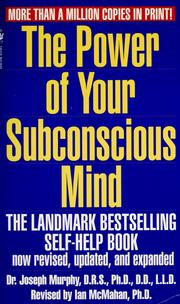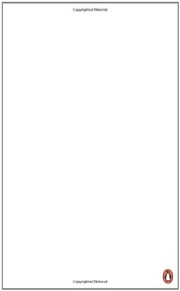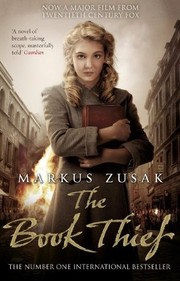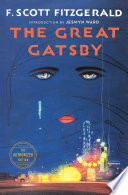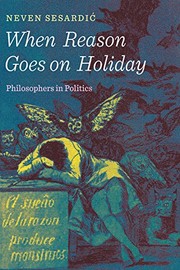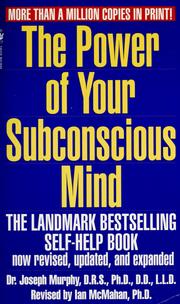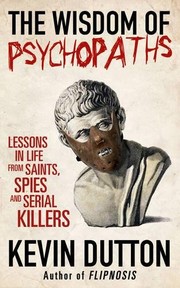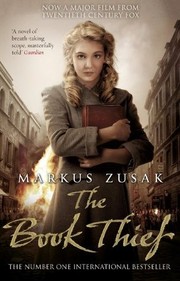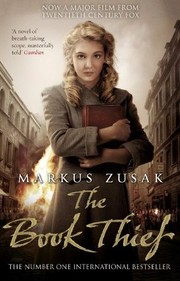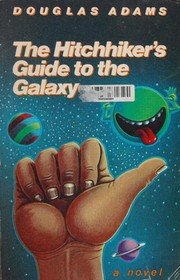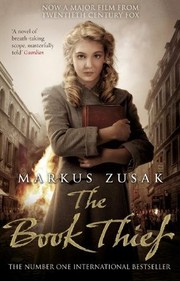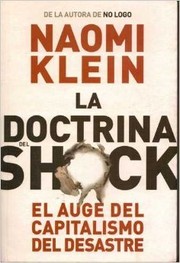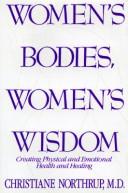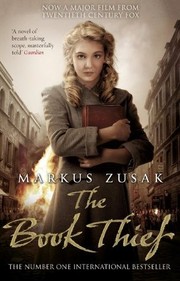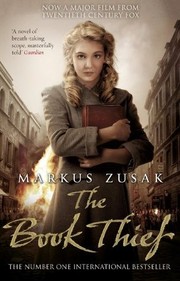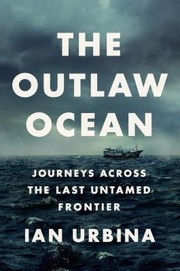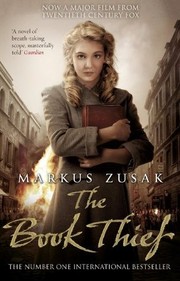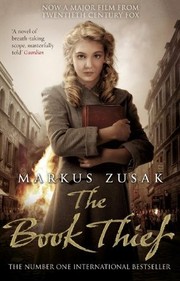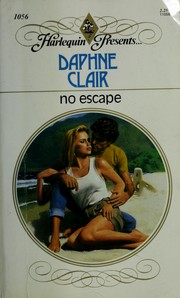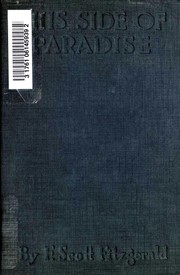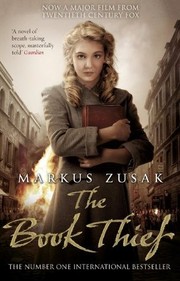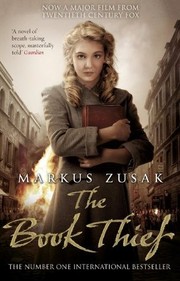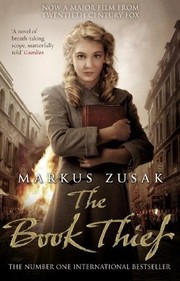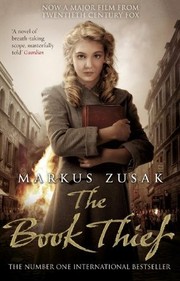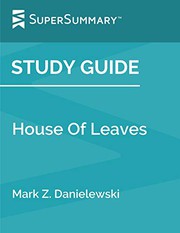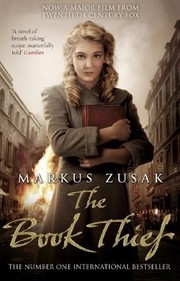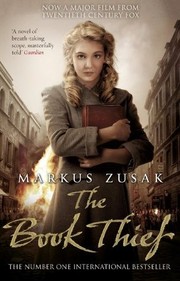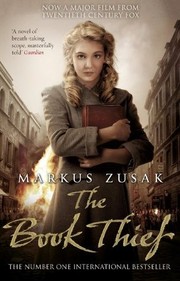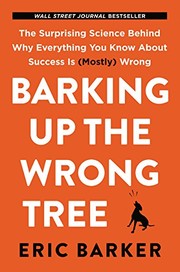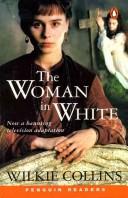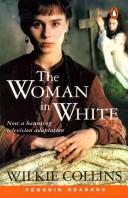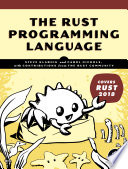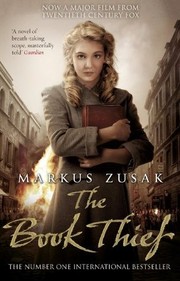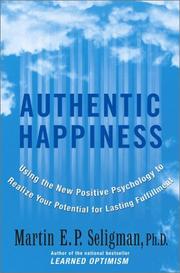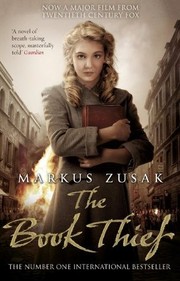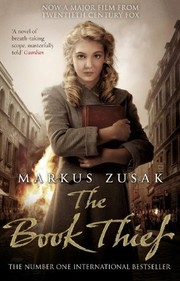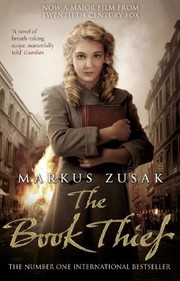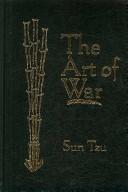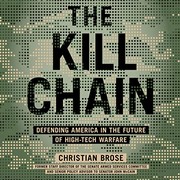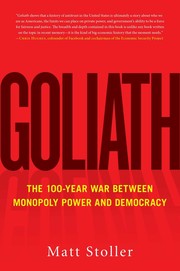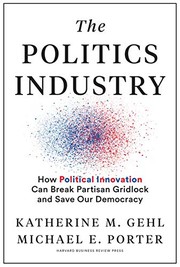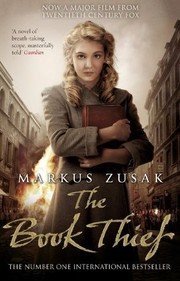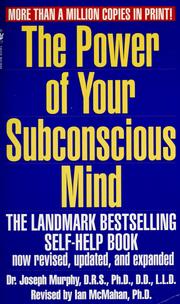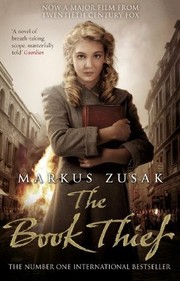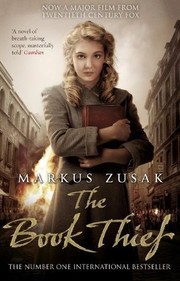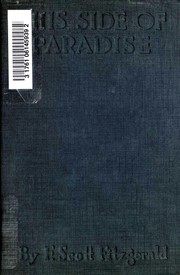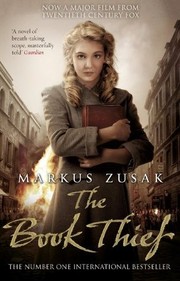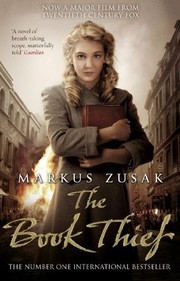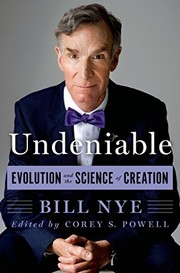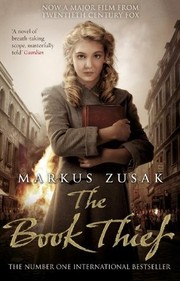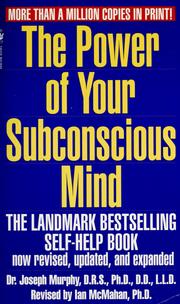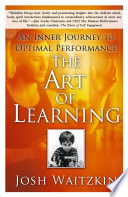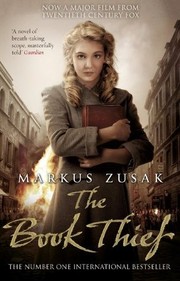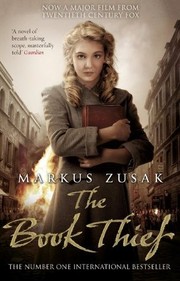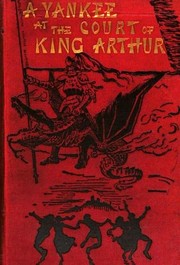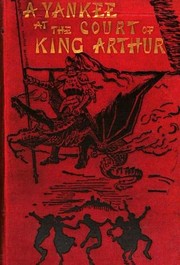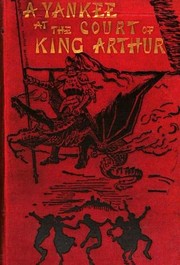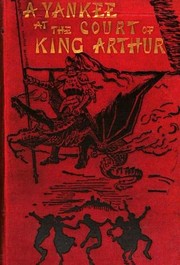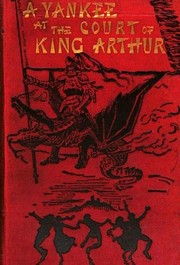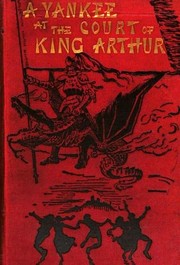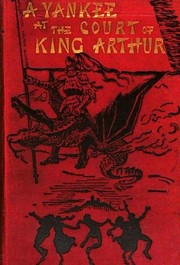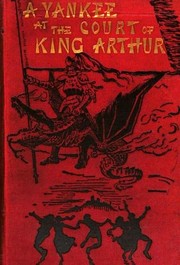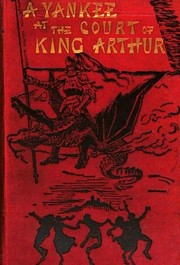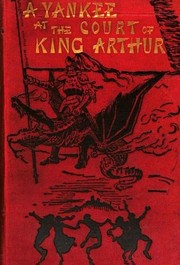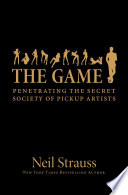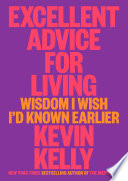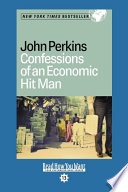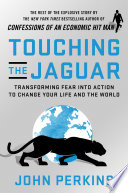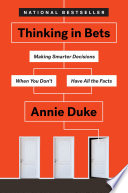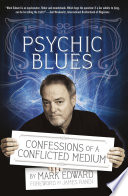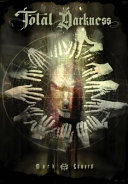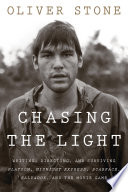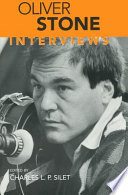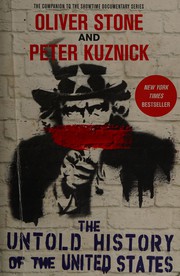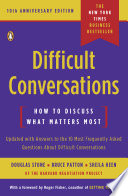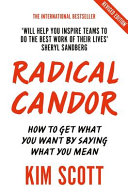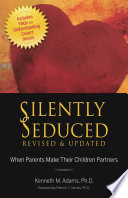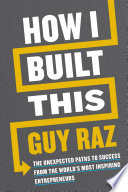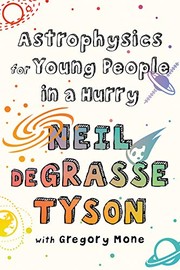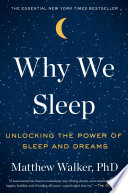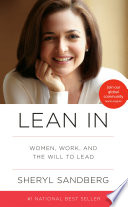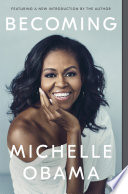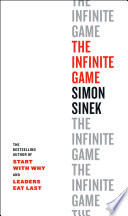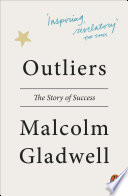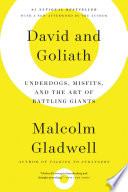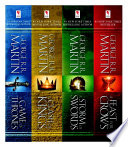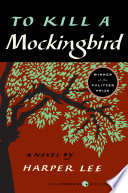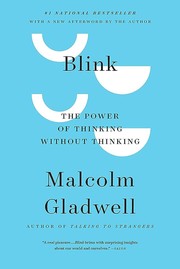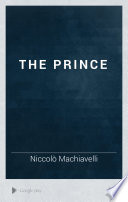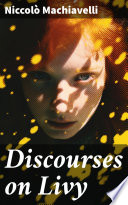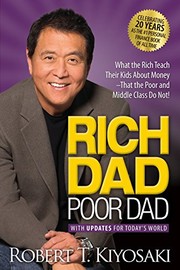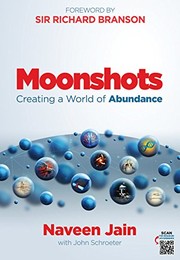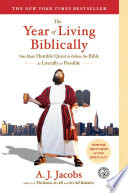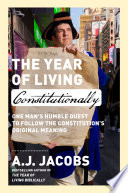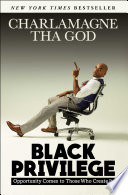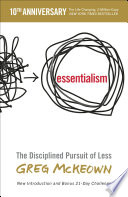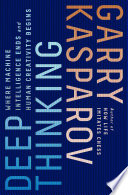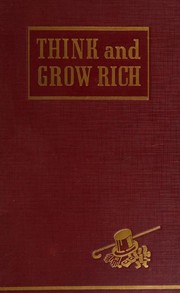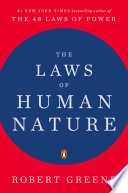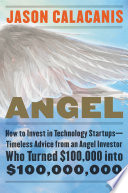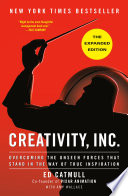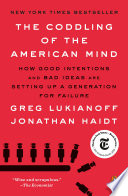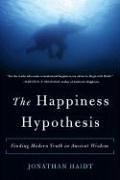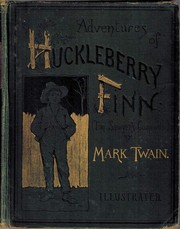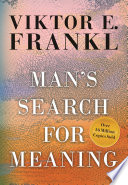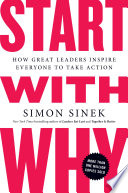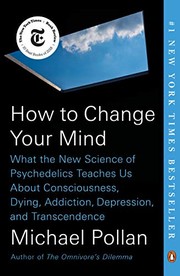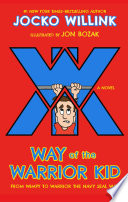Podcast: The Jordan Harbinger Show

(Apple's Best of 2018) In-depth conversations with people at the top of their game. Jordan Harbinger unpacks guests' wisdom into practical nuggets you can use to impact your work, life, and relationships. Learn from leaders (Ray Dalio, Simon Sinek, Mark Cuban), entertainers (Moby, Tip "T.I." Harris, Dennis Quaid), scientists (Neil deGrasse Tyson, Bill Nye), athletes (Kobe Bryant, Dennis Rodman, Tony Hawk) and an eclectic array of fascinating minds, from art forgers and arms traffickers to spies and psychologists.
432 episodes processed, 333 books extracted
Podcast Playlist: View on YouTube
Books Mentioned Most Often
Nuclear War
Buy Nuclear War by Annie Jacobsen on Amazon
Mentioned 34 times
The only solution is – I have to tell you – I'm way more scared of nuclear conflict than I was before reading this book.
In this segment, Jordan Harbinger expresses that his fear of nuclear conflict has increased after reading the book 'Nuclear War: A Scenario' by Annie Jacobsen, creating a foundation for a deeper discussion about the book and its implications.
And like your book was like, "Actually, we'll get into all this, but it's like actually, if one person gets really suicidal or homicidal, there's pretty much nothing anyone can do about it."
In this segment, Jordan references Annie Jacobsen's book, discussing a concerning insight from it: that a single individual's actions could potentially lead to catastrophic consequences, such as starting a nuclear war.
Then you begin to learn in the course of the book about all of the other insane situations which occur in seconds and minutes, not hours, were nuclear war to become a reality.
Jordan discusses how the book describes the extremely rapid sequence of events that could unfold in the event of a nuclear war.
Yeah, I like the way you handled that in the book.
Jordan expresses his appreciation for how Annie addressed the topic in her book.
Yeah, and that – I mean there's a reason why I began the book with what is known as a "bolt out of the blue" attack.
Annie Jacobsen discusses how she began her book with the concept of a 'bolt out of the blue' attack, highlighting the significance of this scenario in the context of her writing.
You mentioned in the book that something like two billion people would die as a result of this, and we know this because the US has been planning for this general nuclear war.
In this segment, Jordan discusses a statistic from Annie Jacobsen's book, highlighting the alarming prediction that two billion people would perish in the event of a nuclear war.
And bit by bit, I began piecing together this shocking, terrifying scenario based on all these interviews with all of these people from various generations now saying to me, "Yep, yep, that is not hyperbole. That is how it ends in your scenario in the book."
Annie Jacobsen shares insights from her interviews, explaining that many individuals affirmed the scenario depicted in her book, suggesting that it accurately portrays how a nuclear conflict might unfold.
And by the way, if people buy the book, please use the links in the show notes; it does support the show.
The host encourages listeners to support the show by purchasing the book through the provided links in the show notes.
The scenario in the book is – I'm going to overuse the word "terrifying" in this episode – but that's just the way it is, right?
Annie explores the terrifying scenario she describes in her book.
And as I make very clear in the narrative and then specifically clear in my notes, of course, there's a hundred pages of notes at the end of the book like all my books.
Annie Jacobsen explains that her book includes a hundred pages of notes at the end, providing additional information and context.
And it's the first three seconds – I mean, it's just like the...I'll, of course, leave it to folks to read the book.
Annie encourages listeners to read the book for more detailed information about the first three seconds of a nuclear explosion.
As you know from reading the book in advance – and thank you for reading it so closely – this is something that is horrifying in great detail.
Annie expresses her gratitude to Jordan for his close reading of her book, which delves into horrifying details about the topic.
But the average Joe or Jane – me, or you, doesn't know about any of this, or at least didn't; I certainly didn't in such detail until I wrote this book,and that I think is the point and the power of all of this: like understand about this, know about this, look at it face it, and then join a conversation!
Annie discusses how she gained detailed knowledge about Nuclear War while writing her book, highlighting its importance and encouraging listeners to engage with this critical topic.
I mean, those are other conversations; those are offshoot conversations that I hope would happen from people reading this book.
Annie expresses her desire for readers to engage in discussions stemming from their reading of her book.
First and foremost, when they get it from the book in this incredibly narrative form, just like tick-tock: here's what happens; here's what happens in the first second; here's what happens in the second second.
Annie explains how the book presents events in a sequential, tick-tock format, outlining what occurs at each moment.
But I always found that funny, of course until I read the book – I was like, why are you telling us you're going to launch the thing?
Jordan reflects on how his perspective shifted after reading the book, questioning the rationale behind the USA announcing their intention to launch.
But the idea that we tell each other we're going to do this, in 20/20 hindsight after reading your book, is probably a really good idea.
Jordan reflects on the importance of communication, particularly after having read Annie Jacobsen's book, suggesting it is a wise approach to take.
And as I write in the book, you know, so while the rest of us are sleeping or going about our days, that's happening.
Annie refers to her book, discussing how it addresses important topics that occur while people are preoccupied with their daily lives.
And then, as I show in the book, oh my God, what would happen were the nuclear command and control structure in the United States to figure out one of those ICBM tests isn't a test; it's actually headed for the United States?
Annie Jacobsen referenced her book to illustrate a shocking scenario regarding the nuclear command and control structure in the United States.
So big takeaway from the early part of the book is there's no way to win a nuclear war because it just happens too darn fast.
Annie discusses a key insight from her book, emphasizing that a nuclear war cannot be won since it occurs too quickly.
And okay, it's six or so minutes, but like, for example, and again, just sharing with listeners about how I reported this book based on facts in President Reagan's memoirs, he talks about the six-minute window; he describes it as irrational.
Annie Jacobsen discusses how she reported on the information from her book, drawing on facts from former President Reagan's memoirs to illustrate the concept of a six-minute window during a critical moment.
And that's where even more chaos is likely to ensue as I write in the book because you have these competing interests.
Annie references her book to provide insights on the chaos that may arise from competing interests.
And he really encouraged me in this, in my process here, writing this book, 'Nuclear War: A Scenario,' because he said, 'Annie, the people should know.'
Leon Panetta encouraged Annie to write her book, 'Nuclear War: A Scenario,' emphasizing the importance of making information about nuclear war accessible to the public.
And then you also can read analysts like Bruce Blair, a former ICBM miser himself for the Air Force when he was younger, and then he became a powerful spokesman all about nuclear weapons, and he wrote lots of really interesting papers, and his theory was, 'If North Korea were to launch a nuclear weapon at the United States,' which I use in the scenario, 'the response would be 82 nuclear weapons from the United States.'
Annie refers to a theory proposed by Bruce Blair about nuclear weapons which she used in the scenario presented in her book.
And that’s what I write in the scenario because, you know, Secretary Panetta and others told me about some of these very serious flaws that could result in a full-scale nuclear war, and we’ll get to some of those in a second because I’m of course curious.
Annie Jacobsen explains the reasoning behind writing the scenario in her book, highlighting insights she gained from officials like Secretary Panetta about serious flaws that could lead to a full-scale nuclear war.
Now, I mean, not to mention the fact that if you really start to nerd out about warheads, as I do a little bit in the book, but again, read my notes.
Annie highlights that she discusses warheads in her book and encourages listeners to check her notes for further insights.
And so you can have misreadings, and that is a disaster because as a number of experts describe to me in the scenario, and I relay, you can have, let’s—okay, so going back to the scenario whereby a bolt-out-of-the-blue attack from North Korea which is what I propose in the book, and then the 80 nuclear warhead response, okay?
Annie Jacobsen discusses a scenario detailed in her book, highlighting the potential for misinterpretations that could lead to disastrous consequences, particularly in the context of a surprise attack from North Korea.
So from coast to coast would be effective, and I describe in length in the book what this would mean, you know, what a nuclear weapon exploded in space would happen.
Annie details concepts related to a nuclear weapon in space, which she elaborates on in her book.
And this is why I use this narrative in 'Nuclear War: A Scenario' because it’s a very real fear for some in the United States government, and again, others will say that’s fear-mongering.
Annie Jacobsen discusses how she employs the narrative in her book 'Nuclear War: A Scenario' to highlight a genuine concern among some members of the US government.
The destruction from nukes, from EMP; it’s just so horrific, and I want to say you do a really good job in the book describing it without being crass.
Jordan praises Annie Jacobsen for her skillful and sensitive portrayal of the catastrophic events of nuclear war in her book.
Um, and well, I’m interrupting for a second because what I also tried to do is not try to do what I did, do is pull any scene I was writing from a factual text.
Annie explains that the book avoids being crass by relying on factual accounts.
You mentioned in the book that a lot of people would die of things like radiation poisoning and disease, and the description of that is quite gross as well, like your blood won’t coagulate, your intestines rupture, and you’re essentially poisoned by the gut contents that you have.
Jordan discusses alarming details from the book about the gruesome effects of a nuclear weapon, describing how individuals may suffer from radiation poisoning and the horrific symptoms that accompany such a fate.
I hope people read the book and join this conversation while we can still have it.
Annie Jacobsen urges listeners to read her book, 'Nuclear War: A Scenario', to raise awareness about the perils of nuclear conflict and to foster important discussions.
I have to say before we go, I was reading the acknowledgment section of your book and found it funny; the stuff that's buried in there.
Jordan mentioned that he was reading the acknowledgements section of Annie Jacobsen's book and found it to be amusing.
Jurassic Park
Buy Jurassic Park by Michael Crichton on Amazon
Mentioned 7 times
What's interesting is that George Church's original work, which I forgot the specifics of, was on yeast or something. But his research shows up in Michael Crichton's book.
The guest highlights that George Church's research is referenced in Michael Crichton's book, most likely referring to 'Jurassic Park', suggesting a connection between Church's scientific work and the themes explored in the novel.
This is kind of the idea behind Jurassic Park, right? You've had to have been influenced by that movie.
The guest draws a parallel between their company's work on de-extinction and the themes presented in the book Jurassic Park.
What's interesting about Jurassic Park is that it did a great job of showcasing and educating the world about genetic engineering. Now, we're not doing exactly what they did in Jurassic Park.
The guest discusses how the book Jurassic Park played a significant role in educating the public about genetic engineering.
Now, we're not doing exactly what they did in Jurassic Park. They were taking ancient DNA from amber to fill in the gaps of dinosaur DNA with frog DNA.
The guest explains how their current work diverges from the methods portrayed in Jurassic Park, particularly in the areas of DNA extraction and genetic engineering.
I like to think of it as being slightly smarter than Jurassic Park. What's interesting is that George Church's original work, which I forgot the specifics of, was on yeast or something.
The guest humorously claims that their company's methods are more sophisticated than those depicted in 'Jurassic Park.'
If you want to be technical, I would argue that Jurassic Park was inspired by George. In a way, I think it's completely the other way around; he should be getting royalties on it.
During the discussion, the guest argues that the concept of Jurassic Park was inspired by the work of George Church, suggesting that Church deserves royalties for this influence.
We didn't copy Jurassic Park; they copied my co-founder George Church, who, for those listening, is kind of the OG. He's like the Mick Jagger of genetic engineering and DNA.
During the discussion, the guest highlights that they did not draw inspiration from 'Jurassic Park' but rather points out that the book has taken concepts from his co-founder, George Church, who is regarded as a pioneering figure in genetic engineering.
Atomic Habits
Buy Atomic Habits by James Clear on Amazon
Mentioned 6 times
He's not doing that, but I think a lot of people are kind of like, 'Oh, I bought Atomic Habits and now I'm going to get out of this basement and not be depressed anymore.'
During the conversation, the guest references 'Atomic Habits', discussing how some individuals may mistakenly believe that simply purchasing this book will lead to a transformation in their mental health. The commentary highlights a common misconception about habit change, emphasizing that the book alone doesn't guarantee a remedy for deeper issues.
This is like some James Clear philosophy, right? If you want to watch less TV, move the TV out of the living room.
The podcast guest, James Sexton, references James Clear's philosophy, likely based on his book 'Atomic Habits', when discussing the importance of controlling one's environment to make better choices.
And this is, I mean this is how James Clear did Atomic Habits; it was a series of tweets and blog posts that became a book. Man!
In this segment, Jordan Harbinger talks about how James Clear developed his book 'Atomic Habits' by turning his tweets and blog posts into a book. He implies that this method is a great strategy for authors.
If you read James Clear's 'Atomic Habits', you learn habits that are relevant to investing, relationships, exercise, and health.
In this segment, host Jordan Harbinger references the book 'Atomic Habits' by James Clear, highlighting how its lessons can be applied not only to habit-building but also to important areas such as investing, relationships, exercise, and health.
I think these are things that are very useful tactics that people have repackaged in a way that makes sense to whoever they're speaking; in one of the best-selling books of the decade. James Clear?
Jordan inquires whether Jennifer is referring to the book 'Atomic Habits' by James Clear.
this is one of the best-selling books on habits in a decade and we've got a great in-depth interview with him right here right now on the Jordan Harbinger show
The host highlights Atomic Habits as a best-selling book on habits.
Scarcity Brain
Buy Scarcity Brain by Michael Easter on Amazon
Mentioned 6 times
My book is called 'Scarcity Brain', which explores why individuals struggle with moderation despite knowing everything is fine in moderation.
The guest, Michael Easter, discusses his book titled 'Scarcity Brain' and sheds light on its central theme, which delves into the reasons why people find it difficult to practice moderation even when they understand that moderation is beneficial.
Information consumption has skyrocketed as well; an astounding statistic I found while researching my book reveals that the average person today encounters more information in a day than someone 700 years ago would have in their lifetime.
Michael Easter refers to a statistic he discovered during his research for 'Scarcity Brain.' He notes that the average person today is exposed to more information in a single day than what an individual 700 years ago would have encountered in their entire lifetime, highlighting the potential downsides of excessive information consumption.
The book group had to find the book, open it to the right page, read it, and then report back.
During the discussion, Michael Easter mentions a 'book group,' which involves researchers finding a book, opening it to the correct page, reading it, and reporting their findings. He contrasts this method with modern consumption habits that prioritize speed but result in lower understanding and retention. It can be inferred that the book in question is his own, titled 'Scarcity Brain.'
In the book, one of the lessons I give is that putting in a little more work for your information can lead to better outcomes.
Michael Easter references his book, noting that he provides a lesson that working harder for information can result in better outcomes. He contrasts this idea with the current tendency for quick access to information and rapid consumption.
Thus, the crux of my book's message is whether addiction is a choice; perhaps this question isn't the most critical.
Michael Easter discusses the central theme of his book, emphasizing the importance of questioning whether addiction is a choice.
The information overload you write about in the book is the tipping point where more information doesn't do us any good and actually leads to worse, not better, decisions.
In this segment, podcast host Jordan Harbinger discusses a key concept from Michael Easter's book, 'Scarcity Brain.' He highlights how the book addresses the idea of information overload and how it can negatively impact decision making, specifically when an excess of information actually leads to worse outcomes.
Dopamine Nation
Buy Dopamine Nation by Dr. Anna Lembke on Amazon
Mentioned 4 times
In the book, there’s a rats and cocaine example, and calling this a bummer is kind of an understatement because it's really scary.
In this segment, Jordan Harbinger discusses a frightening example from Dr. Anna Lembke's book "Dopamine Nation," where she explores the troubling relationship between rats and cocaine.
In the book, you write that we're cacti in the rainforest and we're drowning in dopamine.
In this episode, Jordan Harbinger discusses an analogy from Dr. Anna Lembke's book, 'Dopamine Nation', emphasizing how humans are overwhelmed by dopamine in today's society.
This book helped me grasp the workings of addiction in a new light, particularly around dopamine's role in our behaviors, which feels increasingly relevant in discussions today.
In this segment, Jordan discusses how Dr. Anna Lembke's book, 'Dopamine Nation', provided him with insights into addiction, especially the significance of dopamine in shaping our behavior.
Addiction distorts our perception of time, which was another interesting aspect of the book.
Jordan discusses a key point from Dr. Anna Lembke's book, Dopamine Nation, highlighting how addiction affects our perception of time.
Thinking, Fast and Slow
Buy Thinking, Fast and Slow by Daniel Kahneman on Amazon
Mentioned 4 times
And um, yeah, I wasn't ready to go talk about it, or I didn't understand why I did what I did until I spoke at the FBI and they're like, "Go read this!" You know, Daniel Kahneman! He... he got a Nobel Prize about this stuff!
The guest references the work of Daniel Kahneman, specifically his book 'Thinking, Fast and Slow', which examines cognitive biases and helped him understand the psychology behind his actions.
That stuff tends to make for good sound bites and go further, and this is sort of Daniel Kahneman’s system one thinking.
In this segment, host Jordan Harbinger discusses Daniel Kahneman's concept of 'system one thinking,' which is likely a reference to his well-known book 'Thinking, Fast and Slow.'
and you know it has made its way into loads of really popular books including by really reliable and respected people like daniel kahneman there's loads of stuff in thinking fast and slow
The guest mentions this book as an example of a popular book that included information about priming studies, which have since been questioned.
my father was in therapy for his whole life and read deeply about the philosophy I'm thinking it talked about that
The host mentions the topic of introspection and connects it to something 'it talked about', strongly implying the book 'Thinking, Fast and Slow' in the context of psychology/philosophy discussions.
The Secret
Buy The Secret by Rhonda Byrne on Amazon
Mentioned 3 times
So if you believe in the laws of attraction, like in the book The Secret, and you believe in any of these things, I did believe in it at that time.
The guest references 'The Secret' by Rhonda Byrne while discussing his beliefs about the laws of attraction and expressing how he had faith in these concepts during a challenging time in his life.
and and also the on to me the main drawback of positive thinking is when you believe that just by positive thinking you can make something happen like the secret you know that if you think positively then your cancer will go away
AJ Jacobs mentions 'The Secret' as an example of the potential drawback of positive thinking, specifically the idea that positive thoughts alone can cure illness.
I truly believe that your brain is that powerful and we talked about the law of attraction when we talk about the secret by Rhonda Byrne like your thoughts truly can become things
Charlamagne mentions the book and author again, relating it to the power of thoughts and the law of attraction.
War at the top of the world
Buy War at the top of the world by Eric S. Margolis on Amazon
Mentioned 3 times
But, you know, as I write in the book, what they accomplish is something other companies can do. And now there are public face search engines.
In this segment, Kashmir Hill refers to 'the book' she authored, where she discusses advancements in facial recognition technology. During the interview, host Jordan Harbinger engages with her on this topic.
I talked to the founder many times for the book and he's run these searches on me. It brings up sometimes what you would expect: headshots of me on the web that I know about.
The guest, Kashmir Hill, refers to 'the book' she authored, explaining that she has had numerous discussions with the founder of ClearView AI regarding facial recognition searches conducted on her as part of her work.
Hotels could greet guests by name; I think that's something you wrote about in the book—that's great! Or even, maybe I don't need a hotel key; maybe when I get to my hotel room door, it just opens because it sees me.
In this segment, Jordan Harbinger discusses ideas presented in Kashmir Hill's book, specifically how hotels could use facial recognition technology to enhance guest experience.
The Great Gatsby
Buy The Great Gatsby by F. Scott Fitzgerald on Amazon
Mentioned 3 times
No, every time I saw her, she basically threatened to die before the book came out, knowing that that would make me feel awful because if she's like, 'All I want is for this book to be done' and she was like, 'I just want to hold this book.'
Tim shares a heartfelt moment regarding his grandmother's wish to see his book published, humorously recounting how she dramatically mentioned her fear of not being able to hold it.
In the book, you talk about how Americans seem to think we're in a Disney movie, with a lot of black and white and binary thinking.
Jordan discusses a concept from Tim Urban's book, highlighting how Americans perceive their society through a simplistic, black-and-white lens.
Yeah to Manhattan, but what I like about the book, I'll help you plug it, here is that it skewers both the liberal left social justice side of things and the conservative ideology.
In this segment, Jordan emphasizes his appreciation for Tim Urban's book, highlighting how it critiques both the liberal left and conservative ideologies.
The Hitch Hiker's Guide to the Galaxy
Buy The Hitch Hiker's Guide to the Galaxy by Douglas Adams on Amazon
Mentioned 2 times
It's easy to disparage these individuals in finance, akin to characters from Douglas Adams' 'The Hitchhiker's Guide to the Galaxy,' suggesting they possess plans to abandon all financial advisors; however, such roles are pivotal to maintaining trust within large-scale societies.
Jordan references the book The Hitchhiker's Guide to the Galaxy by Douglas Adams to illustrate the idea that although people may have negative feelings about finance, the role of bankers or investors is vital to large scale societal trust.
Douglas Adams had a great, you know, who wrote Hitchhiker's Guide to the Galaxy had a great framing on this.
Jordan references 'The Hitchhiker's Guide to the Galaxy' by Douglas Adams to introduce a framework about how new technologies are received based on age.
The Art of War
Buy The Art of War by Sun Tzu on Amazon
Mentioned 2 times
A lot of studying those principles during high school; in fact, my high school thesis was on 'The Art of War.'
The guest, Tu Lam, recounts that he wrote his high school thesis on 'The Art of War', highlighting his deep engagement with the text and its underlying principles.
Okay, so there was a book called The Art of War, right? Yeah, and so I do have a few chapters that I'll write someday, right?
In this segment, Todd McFarlane references the book 'The Art of War' by Sun Tzu, discussing its influence on his strategic thinking and mentioning his intention to write chapters inspired by it.
Lying
Buy Lying by Sam Harris on Amazon
Mentioned 2 times
There’s a Sam Harris book called 'Lying' I really love; he's done a show on this subject.
In this segment, the podcast host talks about the book 'Lying' by Sam Harris, expressing their admiration for it and noting that Harris has also covered the topic in a show.
But Sam in 'Lying' in that book doesn't actually give any of those examples, and then he goes on to say at the end, 'Of course, in reality, only a psychopath could endorse that behavior!'
In this segment, the guest discusses Sam Harris's book 'Lying', noting that the author doesn't provide specific examples in the text, and highlights a significant statement made by Harris at the conclusion.
Thank You for Smoking
Buy Thank You for Smoking by Christopher Buckley on Amazon
Mentioned 2 times
Actually, one of the great thrills of my life was corresponding with Christopher Buckley during writing this book; he wrote 'Thank You for Smoking,' which this book definitely reminds me of.
The guest shares that one of the highlights of their life was corresponding with Christopher Buckley while writing their own book, which they feel has similarities to Buckley's book 'Thank You for Smoking.'
That's right, the way you spun this Iraq War documentary, that's what reminded me of 'Thank You for Smoking.'
During the discussion, the host mentions that the guest's storytelling style in a previous segment brought to mind the book 'Thank You for Smoking,' which is later confirmed to be by Christopher Buckley.
Faerie queene
Buy Faerie queene by Edmund Spenser on Amazon
Mentioned 2 times
In the book, you describe validating the criminal or validating the target's model of the world. What does that mean exactly?
In this segment, the podcast host, Jordan Harbinger, brings up a specific concept from the guest's book, likely authored by Scott Walker. The discussion revolves around validating the perspectives of criminals or understanding the model of the world from the targets' viewpoints. The host prompts the guest to elaborate on this intriguing concept.
Absolutely, yeah. And I always say that in the book; I write about that.
Scott Walker, the guest, highlights a principle he discusses in his book, emphasizing the idea of seeking to understand before being understood. This suggests that his book addresses important concepts related to negotiation and communication.
The Man in the Brown Suit
Buy The Man in the Brown Suit by Agatha Christie on Amazon
Mentioned 2 times
And it also sort of shows, since it's so fragile, how fragile our economies really are because I've heard the expression 'data is the new oil,' but I think you say in the book, 'The pumps and pipes are all powered by semiconductors.'
Jordan discusses a book authored by Chris Miller, highlighting a line that emphasizes the critical role of semiconductors in our economy: 'The pumps and pipes are all powered by semiconductors.' This underscores the fragility of our economic systems.
I think you mentioned in the book some, there's one of these—is this the etching laser?
Jordan refers to something he read 'in the book' (the guest's book) about an etching laser.
The Righteous Mind
Buy The Righteous Mind by Jonathan Haidt on Amazon
Mentioned 2 times
Moral emotions, so this is a frame from Jonathan Haidt, who is my collaborator at NYU; he read the foreword of the book and has been researching moral emotions for a long time.
In this segment, Tobias Rose-Stockwell discusses Jonathan Haidt, his collaborator at NYU, who has extensively researched moral emotions. He likely references Haidt's book 'The Righteous Mind,' which explores these themes.
so my second book the righteous mind the subtitle is why good people are divided by politics and religion
The guest mentions his second book, 'The Righteous Mind', and its subtitle, relating it to the event being discussed.
La Poetica
Buy La Poetica by Aristotle on Amazon
Mentioned 2 times
Now, I've adjusted the book to have sections titled 'hopefully helpful,' but the reality is that the solutions will be multifaceted and complex.
Dan Ariely discusses making adjustments to a book he has authored, specifying that it now includes sections titled 'hopefully helpful.' He emphasizes that the solutions presented in the book are complex and multifaceted, highlighting the depth of the material.
Um, I think you mentioned that in the book; was it Dan Ariely who did a study on that? And we eventually adapt!
In this segment, the podcast host recalls a specific point about lying and stress from the guest's book, attributing the information to Dan Ariely.
Remaking Planning
Buy Remaking Planning by Tim Brindley, Yvonne Rydin, Gerry Stoker on Amazon
Mentioned 2 times
No, every time I saw her, she basically threatened to die before the book came out, knowing that that would make me feel awful because if she's like, 'All I want is for this book to be done' and she was like, 'I just want to hold this book.'
In this segment, Tim talks about his grandmother's intense anticipation for him to complete his book. He shares a humorous anecdote about how she had jokingly threatened to die if the book wasn't finished soon, emphasizing her eagerness to hold it.
So, and then by the way, so I got her this book that I had done, and she listens to all her books on audio.
Tim explains how he gifted his grandmother a book he worked on, mentioning that she enjoys listening to her books in audio format.
The city gardener's handbook
Buy The city gardener's handbook by Linda Yang on Amazon
Mentioned 2 times
Or the various factors that work in destroying our country according to your book.
Jordan refers to Tim Urban's book, discussing how it addresses various factors contributing to the decline of the country.
And he, that’s exactly what he was talking about and you mentioned in your book that academic journal articles are being retracted with real science are being retracted because they conflict with ideas that they make people uncomfortable, I guess is for lack of a better word.
Jordan discusses the guest's book, which highlights how academic journal articles are being retracted when they contradict widely accepted ideas, often due to discomfort with the implications of the scientific findings.
1984
Buy 1984 by George Orwell on Amazon
Mentioned 2 times
If I may paraphrase a line from George Orwell's 1984, to wear an improper expression on your face was itself a punishable offense.
Jordan quotes George Orwell's book *1984*, discussing how showing an inappropriate facial expression can be considered a punishable offense in the story. He uses this analogy to highlight how society often judges individuals based on their body language.
I mean, like I went back and read 1984, um, recently, and I was like, oh wow, like, yeah, we have this.
The speaker recalls recently re-reading the book '1984,' a renowned dystopian novel by George Orwell. They reflect on its themes, connecting them to the contemporary topics discussed.
The wisdom of psychopaths
Buy The wisdom of psychopaths by Kevin Dutton on Amazon
Mentioned 2 times
What I did in The Wisdom of Psychopaths was acknowledge that, yes, some psychopaths are people like Ted Bundy and Jeffrey Dahmer.
In this mention, the book 'The Wisdom of Psychopaths' is referenced to emphasize that while some psychopaths, like Ted Bundy and Jeffrey Dahmer, are violent offenders, there are others who do not fit this stereotype. This discussion highlights the book's pivotal role in exploring the complexities of psychopathy.
I made a decision; in fact, I wrote a book with an ex-SAS guy called Andy McNab, who's very famous over here. It was a follow-up to Wisdom of Psychopaths.
The guest references his book 'Wisdom of Psychopaths', mentioning its connection to psychopathic traits and describing it as a follow-up to his collaboration with the well-known ex-SAS figure, Andy McNab.
The Outlaw Ocean
Buy The Outlaw Ocean by Ian Urbina on Amazon
Mentioned 2 times
But your book really opened my eyes to some of, frankly, some of the worst of humanity. It's just running roughshod over human rights out there.
Jordan Harbinger discusses how Ian Urbina's book, The Outlaw Ocean, opened his eyes to severe human rights violations occurring at sea.
Fishing is such a weird industry; for example, there's an island in Greece called Khios, which is mentioned in the book. It's a very obscure island, yet 40 to 50 percent of the major shipping magnates are from there.
In this segment, Jordan Harbinger discusses the fishing industry and mentions the Greek island of Khios, which is noted in Ian Urbina's book 'The Outlaw Ocean'. This book highlights the island's significance as home to a substantial number of major shipping magnates.
One River
Buy One River by Wade Davis on Amazon
Mentioned 2 times
But what I find interesting is, like ethnobotanists have talked about it—like Wade Davis wrote about it in 'One River.' Mark Plotkin's really into it.
In this segment, Jordan Harbinger references the book 'One River' by Wade Davis while exploring the topic of Ayahuasca and the insights provided by ethnobotanists. This discussion fits within a broader examination of the Amazon rainforest's exceptional attributes and the wisdom of indigenous cultures.
Yeah, back to—there's this book called 'One River,' and it's about this ethnobotanist, Richard Evans Schultes, who was in the Amazon. It's by Wade Davis, it's an amazing book, but he was supposed to go with us on our trip, but something happened, and he couldn't make it.
Paul Rosolie discusses the book 'One River,' which details the life of ethnobotanist Richard Evans Schultes in the Amazon. He expresses his admiration for the book, noting its significance, and shares that they had hoped to have the author, Wade Davis, accompany them on their trip, but unfortunately, he was unable to join.
Ἰλιάς
Mentioned 2 times
Tell me about Carla; the book starts with that and it's just one of many horrifying nightmares.
In this segment, Jordan Harbinger discusses a book by Paul Holes, which begins with the case of Carla Walker and describes various chilling nightmares related to the subject.
And there you mentioned in the book that the mother would wake up every morning and touch the picture of her daughter.
In this segment, Jordan Harbinger discusses a poignant moment described in a book by guest Paul Holes, focusing on a mother's daily ritual of touching her daughter's picture.
1984
Buy 1984 by George Orwell on Amazon
Mentioned 2 times
so this is very 1984 if you've read that book every house has a speaker inside it that you can't turn off and it plays quote unquote the news
The speaker compares the mandatory, inescapable propaganda played through speakers in every house in North Korea to the themes in the book '1984'.
I was educated books like Animal Farm in 1984 before I was in the cult
The guest mentions reading this book before joining the cult.
The 48 Laws of Power (Special Power Edition)
Buy The 48 Laws of Power (Special Power Edition) by Robert Greene on Amazon
Mentioned 2 times
and then in time if they take the time to read we talked about 48 laws of power or Manson's book
The speaker mentions this book as reading material that inmates might use to understand motivations.
I think the 48 laws of power might have branded you a little bit as like wow if he's using all these he lives in a cave with like nuclear missiles
The host suggests that the book 'The 48 Laws of Power' has created a certain image of the author.
Then It Fell Apart
Buy Then It Fell Apart by Moby on Amazon
Mentioned 2 times
and I'm always pardon me I'm always a little surprised when I have somebody like like Moby wrote a book and I read it and I went there's no way he wrote this there's words in here I'm googling what they mean DJ didn't write this book
The host mentions reading a book by Moby and being surprised by the writing style, initially doubting Moby wrote it himself.
and this is the second memoir
The host refers to the book being discussed as Moby's second memoir.
The ONE Thing
Buy The ONE Thing by Gary Keller, Jay Papasan on Amazon
Mentioned 2 times
but that that domino that lead Domino is they talked on the one thing right
Hal Elrod refers to the concept of a 'lead domino' as discussed in the book 'The One Thing'.
like you've had some other people on essentialism gary with the one thing the books will sell for decades this won't
Nathan mentions 'The One Thing', associating it with 'gary' (Keller), as an example of a 'timeless' book that will sell for decades.
The Seven Habits of Highly Effective People
Buy The Seven Habits of Highly Effective People by Stephen R. Covey on Amazon
Mentioned 2 times
like Robert Kiyosaki's got the cash flow quadrant and Stephen Covey's got the seven Habits of Highly Effective People
Hal Elrod uses Stephen Covey's 'The Seven Habits of Highly Effective People' as an example of an author having a memorable framework for their ideas.
and I really hope that people realize that even the books have been written about seven habits of successful people and I really believe that is a misnomer You never want to follow the habits of successful people You want to follow their thought process
Naveen Jain mentions this book to argue that one should follow the thought process of successful people, not just their habits.
Digital Minimalism
Buy Digital Minimalism by Cal Newport on Amazon
Mentioned 2 times
I just read this great book called digital minimalism
Charlamagne mentions reading this book and finding it helpful for dealing with social media.
in fact my friend Cal Newport he's a prof. of computer science at Georgetown smart guy author of digital minimalism
The host introduces the guest, Cal Newport, and mentions he is the author of 'digital minimalism'.
Fear and Loathing in Las Vegas
Buy Fear and Loathing in Las Vegas by Hunter S. Thompson on Amazon
Mentioned 1 time
Well, Gonzo journalism, if you look at the official definition, was pioneered by Hunter S. Thompson and it included elements of um reality and fiction and it was always retrospective fiction. So, like Fear and Loathing in Las Vegas is supposed to be half true and half featuring um fictional elements.
The speaker explains Gonzo journalism, pioneered by Hunter S. Thompson, and uses 'Fear and Loathing in Las Vegas' as an example, describing its mix of reality and fiction.
Moneyland
Buy Moneyland by Oliver Bullough on Amazon
Mentioned 1 time
It's hard to understand. Um Oliver Bulock actually who you who you've interviewed has a his book is called Moneyland and it's one of the best and easiest to understand versions that explains it if you if you want to know more about it. Um um but the the problem is not just that that complicated world of finance.
The speaker recommends Oliver Bullough's book Moneyland as a resource for understanding the complex world of offshore finance and anonymous money.
Iron Curtain
Buy Iron Curtain by Anne Applebaum on Amazon
Mentioned 1 time
Um you know it was a it was a process that took you know several decades to to achieve. um it was the destruction of all as I said there was no no independent business no independent economy of any kind in addition to that there were no non-state organizations of any kind either so um when and I wrote a book about this so when the Soviet Union for example occupied Eastern Europe when they came into Eastern Germany and they came into Poland and they came into Hungary at the end of the second world war um one of the first things they did was take over like youth groups and clubs, you know, so the chess club or the um you know or the soccer club or the hiking club um those were not allowed to be independent. So anything that we would call you know what we would call an NGO or a charity or a civil society organization all of those things were taken over by the state.
The speaker (Anne Applebaum) mentions writing a book about the Soviet occupation of Eastern Europe and the state's takeover of all independent organizations.
Twilight of Democracy
Buy Twilight of Democracy by Anne Applebaum on Amazon
Mentioned 1 time
It's actually now out of power, but we did have it for several years. Um I saw it happen in Hungary, which is a country that I spent a lot of time in at one point. One of my books is partly about Hungary. I saw a version of it in Russia um 20 years uh earlier as well.
The speaker (Anne Applebaum) mentions that one of her books is partly about Hungary, in the context of discussing the rise of illiberal governments in Poland, Hungary, and Russia.
No Angel
Buy No Angel by Jay Dobyns, Nils Johnson-Shelton on Amazon
Mentioned 1 time
it look I mean the book starts with you getting shot so this stuff is dangerous and I'd love to start with that story because it frankly it sounds like a good reason not to join the ATF in the first place unless you're the right kind of person it actually enforced my reason to join to be honest with you I I got hired on a Monday um I didn't have any law enforcement experience
The host refers to the guest's book and how it begins with him getting shot, using it as a starting point for the interview.
Donnie Brasco
Buy Donnie Brasco by Joseph Pistone on Amazon
Mentioned 1 time
um you know uh I I think Joel pastone I think Donnie Brasco like at least touched on that uh to some extent you know and that's a guy who's on the Mount Rushmore of of undercover work um you know he's so legendary but he still overlapped with his family at times too
The guest mentions Donnie Brasco (Joe Pistone) as a legendary figure in undercover work and notes that his story touched on the overlap with family life.
The 48 Laws of Power
Buy The 48 Laws of Power by Robert Greene, Joost Elffers on Amazon
Mentioned 1 time
If you enjoyed this conversation, you will love our discussion with the author of The 48 Laws of Power, Robert Greene.
The podcast host, Jordan Harbinger, highlights an upcoming interview with Robert Greene, the author of 'The 48 Laws of Power', suggesting it for listeners who appreciated the current episode.
The Book Thief
Buy The Book Thief by Markus Zusak on Amazon
Mentioned 1 time
You mentioned in the book that populism sees information as a weapon.
In his discussion with Yuval Noah Harari, Jordan refers to a concept from Harari's book, where it is stated that populism perceives information as a weapon. This topic arises during their conversation about the implications of populism and the challenges it poses to democracy and truth in the age of misinformation.
Het Achterhuis
Buy Het Achterhuis by Anne Frank on Amazon
Mentioned 1 time
You start the book, you start Nexus with something you call, I think, I'm paraphrasing here, the naive view or naive theory of information.
Jordan refers to the introduction of Yuval Noah Harari's book, Nexus, where he discusses the concept of the 'naive view or naive theory of information.' This mention occurs in the broader context of a conversation about information, truth, and fiction.
The Book Thief
Buy The Book Thief by Markus Zusak on Amazon
Mentioned 1 time
I've got some great notes from the book, but like you, you're like a ninth-degree black belt at creating impactful content.
Jordan discusses having notes from a book while talking about creating impactful content with his guest, emphasizing their expertise in this area.
The Dead Zone
Buy The Dead Zone by Stephen King on Amazon
Mentioned 1 time
Yeah, maybe I’ve got to read Chase Jarvis’s book. There’s a book I’ve got to read; I can’t go to this thing.
Jordan expresses his intention to read Chase Jarvis's book, indicating it as a reason for his inability to attend an event, reflecting his desire to prioritize reading.
Bible
Mentioned 1 time
I thought my book, titled "Girl Mom," would only be read by women, but surprisingly, a lot of men reached out, sharing that they felt seen by it, wanting additional connection in their lives.
Ruth discusses her book, 'Girl Mom', sharing that she initially believed it would resonate only with women, yet she was surprised to receive feedback from many men who felt a connection to its themes.
Good Inside
Buy Good Inside by Dr. Becky Kennedy on Amazon
Mentioned 1 time
And you know, I'm reading like, what's the book you recommend constantly? Good Inside. Yeah, that's like the current play on my phone. She's...
In a conversation, Jordan Harbinger asks Ryan Holiday about a book he frequently recommends, to which Ryan mentions 'Good Inside'. This directly references the book.
On Bullshit
Buy On Bullshit by Harry G. Frankfurt on Amazon
Mentioned 1 time
There is actually now an academic book called ‘On Bullshit!’ and it frames it as information without regard for the truth, right?
Guest Renee DiResta discusses the academic book 'On Bullshit!', which uses its definition to illustrate how some individuals generate and disseminate information without regard for its truthfulness.
Invisible Rulers
Buy Invisible Rulers by Renee DiResta on Amazon
Mentioned 1 time
What I liked about invisible rulers—the reason I picked that for the title of the book is, as you note, it's a reference to the 1920s.
In this segment, Renee DiResta, the guest, discusses the title of her book, *Invisible Rulers*. She shares her reasoning behind choosing this title, referencing its connection to the 1920s.
Rich dad's guide to investing
Buy Rich dad's guide to investing by Robert T. Kiyosaki, Sharon L. Lechter on Amazon
Mentioned 1 time
Jordan, I want to say this: after I wrote my book, I was reunited with that side of the family, which just happened recently.
In the podcast, Tu Lam talks about how writing his book allowed him to reconnect with a side of his family, highlighting the personal significance of his work.
Les Trois Mousquetaires
Buy Les Trois Mousquetaires by Alexandre Dumas, Auguste Maquet on Amazon
Mentioned 1 time
In the book, you mentioned that you have this internal monster voice that inflicts doubt and self-worth issues into your mind; can you tell me more about it?
Jordan Harbinger discusses a book authored by Tu Lam, focusing on the themes of internal struggles and self-doubt addressed in the book.
10% Happier
Buy 10% Happier by Dan Harris on Amazon
Mentioned 1 time
I created a reason to go on TV again because it was the 10th anniversary of the first book I wrote, which was called '10% Happier.' I got my publisher to put out a fancy new 10th anniversary edition.
Dan discusses the release of a 10th-anniversary edition of his book, '10% Happier,' highlighting his reasons for going on television to promote it.
And Then There Were None
Buy And Then There Were None by Agatha Christie on Amazon
Mentioned 1 time
But then I looked at your recent finds from the book, and I'm like, that doesn't make sense at all.
The host refers to a book written by the guest, an astrophysicist, discussing their recent discoveries that challenge the host's previous understanding of life in the universe.
The Book Thief
Buy The Book Thief by Markus Zusak on Amazon
Mentioned 1 time
This is the part that blew my mind initially, and it was a good hook for the book, by the way!
The host expresses how a particular piece of information was an impressive hook for the book, complimenting the guest on its impact.
The Andromeda Strain
Buy The Andromeda Strain by Michael Crichton on Amazon
Mentioned 1 time
You know, I read the very scientific book by Michael Crichton called 'The Andromeda Strain'.
In this segment, the host refers to having read 'The Andromeda Strain' by Michael Crichton, using the book as a foundation for discussing the potential of silicon-based life forms.
The Book Thief
Buy The Book Thief by Markus Zusak on Amazon
Mentioned 1 time
I mean, it is just like people might say it's unlikely there's other life out there, but from reading the book, it seems like there's just a near certainty that there is because there's so many things in the Goldilocks zone on so many different stars—the habitable zone.
The host explains that, based on their reading of a book by the guest, it appears more probable that life exists elsewhere in the universe, due to numerous planets being located in the habitable zone.
The Book Thief
Buy The Book Thief by Markus Zusak on Amazon
Mentioned 1 time
And I got to dive into science fiction in the book too, where it was like planets maybe even better than science fiction worlds.
The guest discusses their exploration of science fiction themes in their book, noting that they encountered planets that appeared even more fascinating than those depicted in traditional science fiction.
Who Killed Epstein? Prince Andrew or Bill Clinton
Buy Who Killed Epstein? Prince Andrew or Bill Clinton by Shaun Attwood, Lee Williams on Amazon
Mentioned 1 time
I did write a book called, 'Who Killed Epstein?' So, yeah, he soured the island image. Yeah, he ruined private islands for the rest of us, unfortunately.
During the podcast, guest Shaun Attwood discusses his book 'Who Killed Epstein?' while reflecting on the negative impact that Epstein had on the reputation of private islands.
Hard time
Buy Hard time by Shaun Attwood on Amazon
Mentioned 1 time
And then I put those in my books; Hard Time is the jail one if people are interested. Wow, yeah, wow, and man, you wanted to read a thousand books in prison, right?
In this segment, the guest, Shaun Attwood, refers to his book 'Hard Time,' which details his experiences in jail and is part of a series about his life.
Один день Ивана Денисовича
Buy Один день Ивана Денисовича by Александр Исаевич Солженицын on Amazon
Mentioned 1 time
One thing that Two-Tony taught me was about the book 'A Day in the Life of Ivan Denisovich.' In that book, they were fighting over fish eyeballs in the soup to try and stay alive in the gulag, where if you refuse to work, you're hung from a tree, dragged to death by a horse, or thrown off a cliff.
In this segment, Shaun Attwood references Aleksandr Solzhenitsyn's book 'One Day in the Life of Ivan Denisovich' while discussing lessons learned from Two-Tony. He compares the grim reality depicted in the book, where prisoners struggle for basic sustenance, to the harsh conditions he faced during his own time in prison.
The Book Thief
Buy The Book Thief by Markus Zusak on Amazon
Mentioned 1 time
You note in the book that how often our mind wanders to a secret is one of the gauges of how unhealthy it is.
In this episode, the podcast host brings up the guest's book on the psychology of secrets, highlighting an important point made by the guest about how frequently our minds drift to a hidden secret, which serves as an indicator of its impact on our well-being.
Bible
Mentioned 1 time
Now, do secrets even show up in the Bible?
The podcast host inquires whether secrets are discussed in the Bible.
Bible
Mentioned 1 time
For example, you couldn't translate the Bible into English; it was either in Greek or Latin.
This portion discusses the historical context of translating the Bible, highlighting that it was originally in Greek or Latin, making translations into English challenging.
Bible
Mentioned 1 time
You couldn't go home and read the Bible; you had to go to church, which kept church attendance up.
The discussion reflects on a historical period when individuals were not allowed to read the Bible at home, emphasizing the importance of church attendance during that time.
The Book Thief
Buy The Book Thief by Markus Zusak on Amazon
Mentioned 1 time
So you got this—I hate saying this: In the book, it was slightly incorrect according to what he told me on the podcast!
The podcast guest points out that there is an inaccuracy in 'the book', which refers to his own work, based on a previous conversation.
My Ántonia
Buy My Ántonia by Willa Cather on Amazon
Mentioned 1 time
Yeah, but I wonder if he’s coming across my book because he’s quoted a lot in it!
The guest expresses curiosity about whether the research expert Michael Slean is familiar with his book, as Slean has been frequently quoted in it.
A book about birth control
Buy A book about birth control by Donna Cherniak on Amazon
Mentioned 1 time
As a guy, I really didn't think that I would do a show on or love a book about birth control, but here we are.
In this episode, Jordan Harbinger expresses his surprise at enjoying a book about birth control, highlighting the unexpected nature of the topic.
This Side of Paradise
Buy This Side of Paradise by F. Scott Fitzgerald on Amazon
Mentioned 1 time
Once you think about it, once you read this book and consider it, it permeates society in a way that I hadn't thought of before.
The podcast host discusses how reading this book has given him a new perspective on birth control, influencing his understanding of its impact on society.
The Book Thief
Buy The Book Thief by Markus Zusak on Amazon
Mentioned 1 time
I'm sure this was a few years ago, especially because the book was written quite a while ago.
The guest refers to 'the book', indicating it was authored years earlier, which implies a specific book in the conversation.
This Side of Paradise
Buy This Side of Paradise by F. Scott Fitzgerald on Amazon
Mentioned 1 time
I read this book quite a while ago and reread it more recently.
The guest refers to having read 'this book' some time ago and having re-read it recently, highlighting its significance and ongoing relevance.
The Book Thief
Buy The Book Thief by Markus Zusak on Amazon
Mentioned 1 time
But it was really interesting for me because it felt like, and I describe it this way in the book, that I went from my life as a grayscale, one-dimensional drawing to, all of a sudden, crawling off the page into a three-dimensional, color-filled reality.
The guest reflects on how they depict a personal experience in their book, illustrating a transformation from a flat existence to a vibrant, fuller life.
Bible
Mentioned 1 time
You see some women—the guest wrote something in the book about this—you see women whose team wins in sports or they win an election.
In this segment, the host brings up a point made by the guest regarding women's responses to their teams winning, suggesting that the guest has written about this in a book.
Alice's Adventures in Wonderland
Buy Alice's Adventures in Wonderland by Lewis Carroll on Amazon
Mentioned 1 time
We have the ability to–yeah, that's a cat from Alice in Wonderland with the giant grin.
In this segment, Blake Eastman mentions the 'Cheshire' system, an internal tool at his company, named after the Cheshire cat, a character from the book Alice in Wonderland.
The Woman in White
Buy The Woman in White by Wilkie Collins on Amazon
Mentioned 1 time
It's there's a really good book I think called 'The Way of Deception' or something like that.
Andrew Bustamante mentions a book, likely titled 'The Way of Deception,' while discussing various training exercises used by Israeli intelligence and police units. The reference helps illustrate how these agencies may learn from each other's strategies, although the specific author of the book is not identified.
Eyewitness
Buy Eyewitness by DK Publishing on Amazon
Mentioned 1 time
And I think that, you know, the way I put it in the book is I deserve whatever the opposite of a Pulitzer is.
The guest mentions something from his book, humorously contrasting his work with the prestigious Pulitzer Prize by suggesting he deserves the opposite recognition.
Eyewitness
Buy Eyewitness by DK Publishing on Amazon
Mentioned 1 time
Yeah, those are the people that send me your book and say, 'This guy would be interesting for your show,' and they write a really generic two paragraphs or whatever, some bullet points.
During the episode, the host mentions receiving a book from a publicist, suggesting that the publicist proposed the guest as a potential interviewee for the show.
Eyewitness
Buy Eyewitness by DK Publishing on Amazon
Mentioned 1 time
There's an African proverb in your book that I love: "99 lies will help you; it's the 100th lie that hurts you."
During the conversation, the host references an African proverb that appears in the guest's book, stating that while many lies may be beneficial, it's the final lie that causes real harm.
Eyewitness
Buy Eyewitness by DK Publishing on Amazon
Mentioned 1 time
It’s terrible; the things you know, there are these tips in the book that give insight into your life.
The host discusses tips found in a book that offer valuable insights for understanding life better.
Eyewitness
Buy Eyewitness by DK Publishing on Amazon
Mentioned 1 time
Tell me you in the book, you do a good job of describing the Libyan embassy.
The host is referring to the guest's book, highlighting a commendable description of the Libyan embassy.
Eyewitness
Buy Eyewitness by DK Publishing on Amazon
Mentioned 1 time
She makes a cameo in your book, right?
The host asks the guest whether a previously discussed person appears in his book.
Hacking Darwin
Buy Hacking Darwin by Jamie Metzl on Amazon
Mentioned 1 time
So in my last book, Hacking Darwin, I had a chapter called The End of Sex, which is exactly about this.
The guest discusses a chapter from their previous book, 'Hacking Darwin,' which focuses on the implications of genetic engineering.
The Book Thief
Buy The Book Thief by Markus Zusak on Amazon
Mentioned 1 time
It sure seems that way from the reading of the book; aside from your foray into basketball, you were kind of on a straight path.
During the episode, Jordan Harbinger discusses the guest Dr. Anthony Fauci's book, highlighting how it reflects his career choices and consistent dedication, with little deviation, except for a brief interest in basketball.
The Book Thief
Buy The Book Thief by Markus Zusak on Amazon
Mentioned 1 time
The point you’re making about the activists is significant; it’s a major part of the book that contrasts and compares the attacks on me during the AIDS years with the attacks on me now.
Dr. Fauci highlights that his memoir addresses the significant differences between the criticisms he faced during the AIDS crisis and those directed at him today, revealing this theme as a major focus of the book.
Mémoires
Buy Mémoires by Giacomo Casanova on Amazon
Mentioned 1 time
As I describe in the memoir, one of the best things I ever did in my half-century career was to set aside the theatrics of the demonstrations and listen to what the activists had to say; they were making perfect sense.
Dr. Fauci discusses an important moment in his memoir, highlighting how listening to AIDS activists shifted his perspective and was a pivotal point in his career.
Mémoires
Buy Mémoires by Giacomo Casanova on Amazon
Mentioned 1 time
What we did with the help of the activists was establish the parallel track program I described in my memoir, where it was the first foundation for compassionate use.
Dr. Fauci discusses his memoir, specifically relating it to a program that was established with the help of activists, highlighting its significance as the first foundation for compassionate use.
The Book Thief
Buy The Book Thief by Markus Zusak on Amazon
Mentioned 1 time
Fortunately, I had a partner, Dr. Christine Grady, whom I describe in the book; she’s an amazing person who supported me and made sure the family unit functioned well.
Dr. Anthony Fauci discusses his wife, Dr. Christine Grady, in the context of his memoir, highlighting her vital support throughout his career in public service.
The Book Thief
Buy The Book Thief by Markus Zusak on Amazon
Mentioned 1 time
I recall in the book how we decided to run a marathon together, and I thought we could hold hands across the finish line, but she responded, 'Actually, I love you dearly,' before smoking me and finishing several seconds ahead, which encapsulates her personality wonderfully in that tiny anecdote.
Dr. Fauci recounts a story from his memoir about running a marathon with a friend. He humorously reflects on the moment they decided to hold hands across the finish line, only for her to finish ahead of him, perfectly capturing her spirited personality.
The Power of Your Subconscious Mind
Buy The Power of Your Subconscious Mind by Joseph Murphy on Amazon
Mentioned 1 time
I think it's even better that you chose to share that anecdote in your book instead of being embarrassed or hiding it.
In this segment, the host expresses appreciation to Dr. Fauci for sharing a personal anecdote in his book, highlighting the courage it takes to include such stories.
The Book Thief
Buy The Book Thief by Markus Zusak on Amazon
Mentioned 1 time
Interestingly, as I discuss in the book, he didn’t take as much offense as one might think; he maintained our good rapport.
Dr. Fauci refers to discussing a specific topic within his book, illustrating how the President reacted to his responses during the COVID pandemic. This mention offers context for the anecdote being shared.
Mémoires
Buy Mémoires by Giacomo Casanova on Amazon
Mentioned 1 time
I describe in the memoir the first time I was preparing to advise a president; I had a close friend who had worked in the Nixon White House and offered me advice.
Dr. Fauci discusses a significant moment from his memoir, recalling his early experiences while preparing to advise a president and the advice he received from a close friend who had worked in the Nixon White House.
The Book Thief
Buy The Book Thief by Markus Zusak on Amazon
Mentioned 1 time
I know during COVID, people thought you were the one making the policies, and I admit I was probably one of those people, but you're more just a communicator of those policies; is that correct? Yes, I did mention that in the book.
In the podcast, Dr. Fauci discusses his memoir, clarifying that he was not the originator of the policies during COVID but instead served as a communicator of those policies.
The Book Thief
Buy The Book Thief by Markus Zusak on Amazon
Mentioned 1 time
As I describe in the book, I probably accumulated post-traumatic stress from trying to do a good job caring for my patients while feeling as if I were only putting a Band-Aid over a hemorrhage.
Dr. Fauci discusses a self-diagnosis he made regarding his career during the HIV/AIDS crisis, which he elaborates on in his book.
The Power of Your Subconscious Mind
Buy The Power of Your Subconscious Mind by Joseph Murphy on Amazon
Mentioned 1 time
You shared an interesting leadership principle in your book, stating that when you joined NIAID, you refused to make sweeping changes until you fully understood the organization.
In this segment, the host discusses a leadership principle from Dr. Fauci's book, emphasizing the importance of taking time to understand an organization before implementing significant changes.
The Book Thief
Buy The Book Thief by Markus Zusak on Amazon
Mentioned 1 time
You wrote some other scary, interesting things in the book too.
In this episode, Jordan Harbinger discusses Dr. Ramani Durvasula's book, highlighting some intriguing and frightening concepts that she has explored in her writing.
The Book Thief
Buy The Book Thief by Markus Zusak on Amazon
Mentioned 1 time
Right, it's not practical, and there's no judgment in the book about not being able to leave.
In this segment, Jordan refers to the book, emphasizing that it does not judge individuals who find themselves unable to escape negative relationships.
The Silmarillion
Buy The Silmarillion by J.R.R. Tolkien on Amazon
Mentioned 1 time
There's lots in the book about healing from narcissistic relationships while you are still in them or when you're just trying to separate from them a little bit.
Jordan discusses the book, highlighting its guidance on healing from narcissistic relationships, whether people are still in them or are attempting to create some distance.
This Side of Paradise
Buy This Side of Paradise by F. Scott Fitzgerald on Amazon
Mentioned 1 time
There's so much in this book that's practical, and I really—that's one of the other things that I really liked about it.
Jordan discusses a book mentioned by the guest, highlighting its practical advice and expressing his appreciation for its content.
Bible
Mentioned 1 time
That was one of my favorite books to write, 'The Year of Living Biblically,' and I had always thought, 'Well, I could do a very similar book about the Constitution.'
A.J. Jacobs, the guest, refers to his book 'The Year of Living Biblically,' sharing how it inspired him to consider writing a similar book that explores the Constitution through lived experiences.
The Anxious Generation
Buy The Anxious Generation by Jonathan Haidt on Amazon
Mentioned 1 time
I think what I'm arguing in the book, 'The Anxious Generation', is that now we know; we didn't know in 2012 when we were letting our kids, but now we know we've overprotected our kids in the real world, and we've under-rot them online, and we have to reverse both of those mistakes.
In his discussion, Jonathan Haidt highlights points from his book 'The Anxious Generation', arguing that society has overprotected children in the real world while failing to protect them adequately in online spaces. He emphasizes the need to correct these mistakes.
Voices in the ocean
Buy Voices in the ocean by Susan Casey on Amazon
Mentioned 1 time
Uh and it appears, uh I looked into this because I was you know my book before the underworld was called voices in the ocean, it's about dolphins, uh and orcas are of course the biggest and wiliest dolphins!
In this segment, Susan Casey talks about her prior book titled 'Voices in the Ocean,' which explores dolphins and their characteristics, while also highlighting orcas as a notable species among dolphins.
A World Without Email
Buy A World Without Email by Cal Newport on Amazon
Mentioned 1 time
The worst-performing book of my last three or four was 'A World Without Email' because I was focusing on the negative.
Cal Newport discusses his book 'A World Without Email', explaining that it was one of his least successful works because it concentrated on negative aspects.
Deep Work
Buy Deep Work by Cal Newport on Amazon
Mentioned 1 time
Meanwhile, the title 'Deep Work' reflects the positive action, and 'Digital Minimalism' emphasizes the positive aspect you want to achieve.
In this segment, Cal Newport mentions his book 'Deep Work' to illustrate a title that embodies a constructive approach towards focused, intentional effort.
Eyewitness
Buy Eyewitness by DK Publishing on Amazon
Mentioned 1 time
Yes, there is a little bit of a security risk because I’ve continued, especially now that there’s a second book and we’re working on a second movie. A lot of it feels like taking a scab off of an old wound.
In this segment, guest Robert Mazur discusses the security risks associated with his work, mentioning that he has a second book in addition to the first one. He suggests that both the books and the accompanying movie projects contribute to the tension he feels during his appearance on the show.
Betrayal
Buy Betrayal by Robert Mazur on Amazon
Mentioned 1 time
If you read "Betrayal," the second book, in Houston, the money was actually – we went there for the purposes of picking it up; the DEA agent who was there was supposed to have gotten in touch with the clearing house, where law enforcement tells each other on the day of or a day before what they’re going to be doing because we don’t want to have cops arresting cops.
Robert Mazur refers to his second book, 'The Betrayal', while recounting an undercover operation in Houston, highlighting an incident where a DEA agent failed to properly communicate through the clearing house, potentially jeopardizing the safety of his team.
Containment Is Not Possible
Buy Containment Is Not Possible by Mustafa Suleyman, Michael Bhaskar on Amazon
Mentioned 1 time
And in the book, you say something along the lines of humans are reacting like waves are everywhere in human life; this is just the latest wave.
In this segment, Jordan Harbinger refers to Mustafa Suleyman's book, discussing how humans often respond to change, using the analogy of waves to illustrate the impact of technological advancements on human life.
Ἀπολογία Σωκράτους
Buy Ἀπολογία Σωκράτους by Πλάτων on Amazon
Mentioned 1 time
I always get these guys confused with this particular statement; they said books are going to be bad because nobody's going to memorize information anymore, and that was the basis for being a learned person back then.
In this segment, Jordan Harbinger discusses a historical perspective on the impact of books on learning, quoting thinkers like Aristotle and Socrates who argued that the advent of books might lead to laziness in memorization and reduce the depth of learning.
Study Guide
Buy Study Guide by SuperSummary on Amazon
Mentioned 1 time
He wrote a brilliant book called The Dead Hand.
Annie talks about a brilliant book titled 'The Dead Hand' written by David Hoffman.
The Night Before Christmas
Buy The Night Before Christmas by Clement Clarke Moore on Amazon
Mentioned 1 time
Because you're being kidnapped in Syria, but that's not as surprising as some of the stuff that I was reading in your book where it's somebody in London getting kidnapped.
In this segment, Jordan Harbinger discusses a book authored by the guest, Scott Walker, which features astonishing kidnapping stories, including one from London. The mention serves to emphasize the unexpected nature of the cases covered in Walker's work.
The Book Thief
Buy The Book Thief by Markus Zusak on Amazon
Mentioned 1 time
So I read the book, and I was thinking, 'All right, this guy is going to some crazy place in the mountains. What's this all about?'
In this part of the conversation, Jordan Harbinger mentions reading a book, prompting him to think about a person's journey to a mysterious location in the mountains.
The Book Thief
Buy The Book Thief by Markus Zusak on Amazon
Mentioned 1 time
But then, of course, after I read the book, I was like, 'No, there's no misunderstanding here. These people are potentially very dangerous.'
Jordan Harbinger mentions a book that he read, which made him realize the significant dangers associated with the guest's travels.
The Power of Your Subconscious Mind
Buy The Power of Your Subconscious Mind by Joseph Murphy on Amazon
Mentioned 1 time
In fact, in your book you said, 'I flew to Burma,' but the guide asked you something, and you hesitated before saying Myanmar or Burma in a conversation with the guide because it was politically charged either way.
Jordan discusses a point made in the guest's book, highlighting a situation where the author navigated the politically sensitive naming of Burma versus Myanmar during a conversation.
The Book Thief
Buy The Book Thief by Markus Zusak on Amazon
Mentioned 1 time
As I say in the book, it's easy to start denigrating from there. Right?
The guest refers to a concept he discussed in his book, highlighting the ease with which one might start to criticize once a certain point is reached.
The Book Thief
Buy The Book Thief by Markus Zusak on Amazon
Mentioned 1 time
But as I say in the book, French revolutionaries also severed heads, and samurai did, and Scottish clans did, and they all had a reason. I mean it wasn't just that they were called savages.
The guest discusses a concept elaborated in his book regarding historical figures who were involved in revolutionary acts, highlighting that their actions were driven by specific motivations rather than mere savagery.
My Ántonia
Buy My Ántonia by Willa Cather on Amazon
Mentioned 1 time
So this is much of what my book is about. There was a clash within W State that got really hot in the '90s, where you had one figure with one leader trying to pull it in the opposite direction, saying, 'Hey, let's actually make friends with America and wind down the drug trade.
The guest discusses the content of his book, which centers around a significant clash in W State during the 1990s, highlighting the tension between leadership and the relationship with America regarding the drug trade.
The Book Thief
Buy The Book Thief by Markus Zusak on Amazon
Mentioned 1 time
Yeah, the book goes into a lot of detail on that. How armed are these guys?
The guest mentions that his book provides extensive details on the topic being discussed in the podcast.
My Ántonia
Buy My Ántonia by Willa Cather on Amazon
Mentioned 1 time
I mean, it's recognizable to Asian drug users as the Nike Swoosh, as I say in my book. I don't know exactly what the 'WY' is all about, but I do know this: Originally, in the middle of the last century, aetam tablets were sold here, and they were sold by Burroughs Welcome, a huge pharmaceutical company.
In this segment, the guest mentions a striking comparison made in his book, highlighting the recognition of a certain symbol among Asian drug users.
My Ántonia
Buy My Ántonia by Willa Cather on Amazon
Mentioned 1 time
It's not going to work out, but it did work out, and that's kind of what I want to put across in my book. This is a serious nation-state; you might want to take it seriously.
In this segment, the guest discusses ideas he aims to convey in his book, emphasizing their significance regarding serious global issues.
The Book Thief
Buy The Book Thief by Markus Zusak on Amazon
Mentioned 1 time
In the book, you kind of talk about it briefly; you say it has everything Rangoon has, but what does that mean? That's kind of like saying, 'Oh, this place is everything Pyongyang has in North Korea.'
Jordan references a description from Patrick's book, discussing the similarities between different locations.
This Side of Paradise
Buy This Side of Paradise by F. Scott Fitzgerald on Amazon
Mentioned 1 time
More the latter, so I mean I talked to many DEA agents, former DEA agents for this book, as well as a lot of Wa figures and a lot of anti-narcotics folks, and so I got the story from them.
The guest explains that he consulted various individuals, including former DEA agents and anti-narcotics experts, while working on his book.
The Book Thief
Buy The Book Thief by Markus Zusak on Amazon
Mentioned 1 time
I will just add that, um, you know, I'm pretty critical of the drug war in the book; however, I did meet some DEA agents along the way who I respected greatly, who I found to be, you know, moral driven people.
The guest discusses his critical perspective on the drug war as expressed in his book, while also acknowledging the moral character of some DEA agents he encountered.
Paradise Lost
Buy Paradise Lost by John Milton on Amazon
Mentioned 1 time
So there's a lot we can talk about in the book, which we'll link in the show notes.
In this segment, Jordan Harbinger discusses the guest Miles Johnson's book, indicating that there is much to explore within it and promising to include a link to it in the show notes.
Study Guide
Buy Study Guide by Supersummary on Amazon
Mentioned 1 time
Yada yada, the book focuses initially on how the DEA got its jurisdiction expanded to terrorism and financing, which I know sounds super in the weeds, but I was quite interested.
Jordan Harbinger discusses a book that explores how the DEA expanded its jurisdiction to include terrorism and financial crimes, particularly intrigued by this complex topic.
The Power of Your Subconscious Mind
Buy The Power of Your Subconscious Mind by Joseph Murphy on Amazon
Mentioned 1 time
I wasn't even sure if your book was focused on romantic attachment or parenting, but I want to clarify that we're focusing on romantic relationships here; the parenting concept is a whole different topic that you may have already written about.
During the conversation, Jordan expressed uncertainty about whether the guest's book was centered on romantic attachment or parenting. He took a moment to clarify that their discussion was specifically about romantic relationships, indicating that parenting was a separate matter that might be covered in other writings by the guest.
Carmilla
Buy Carmilla by Joseph Sheridan Le Fanu on Amazon
Mentioned 1 time
I think it was one of the most highlighted lines in 'Attached.'
The host references a line from the book 'Attached', noting that it is among the most highlighted lines.
The Power of Your Subconscious Mind
Buy The Power of Your Subconscious Mind by Joseph Murphy on Amazon
Mentioned 1 time
I want to say over a century ago, in your book, there was an instance where they took children away from parents because the idea was to raise them by sending them off to boarding school or something, where they just wouldn't see their parents for ten years.
During the episode, the host discusses a situation described in the guest's book, where children were taken away from their parents to be raised in boarding schools, isolating them from their families for extended periods.
Alice's Adventures in Wonderland
Buy Alice's Adventures in Wonderland by Lewis Carroll on Amazon
Mentioned 1 time
Thankfully, though, we're not sick with any of the pathogens that leak from laboratories, and I was quite shocked when I read your book about how often lab accidents happen.
In this part of the conversation, Jordan Harbinger expresses his surprise after reading a book written by Alison Young, which discusses the frequency of lab accidents.
The Power of Your Subconscious Mind
Buy The Power of Your Subconscious Mind by Joseph Murphy on Amazon
Mentioned 1 time
The examples from your book encompass all of the above; it's somehow all at the same time for some of those poor folks.
In this segment, the host discusses examples from the guest's book, relating it to the conversation about narcissists and how it connects to the experiences of certain individuals.
Bible
Mentioned 1 time
But above all else, I want to always remind people, as hard as this all sounds, it's not—you is really a book that tells you anyone can heal, and you can heal, and what's on the other side is actually really good.
In this segment, the host emphasizes the message of a book that conveys the idea that healing is achievable and that positive outcomes can follow the healing journey.
The Book Thief
Buy The Book Thief by Markus Zusak on Amazon
Mentioned 1 time
Yeah, so I get into it a lot in the book.
Dr. Ramani refers to her book where she discusses trauma bonding in depth, emphasizing the relevance of her work.
The Big Sort
Buy The Big Sort by Bill Bishop on Amazon
Mentioned 1 time
I’m trying to think of the book called 'The Big Sort' that came out a few years ago; I’m trying to think of the author now.
In this segment, Jordan Harbinger reflects on a book titled 'The Big Sort' that discusses societal polarization, attempting to recall its author while explaining the book's relevance to today's context.
The Book Thief
Buy The Book Thief by Markus Zusak on Amazon
Mentioned 1 time
Speaking of the office, you mentioned this shocking statistic in the book, which is that 40% of our professional time is spent trying to convince other people or get buy-in on decisions.
During the episode, Jordan Harbinger refers to a shocking statistic from a book, highlighting that 40% of our professional time is dedicated to persuading others and gaining approval for decisions.
This Side of Paradise
Buy This Side of Paradise by F. Scott Fitzgerald on Amazon
Mentioned 1 time
Essentially, that was the genesis moment of this book; it was an attempt to answer that question of how do you, in those situations, whether you're trying to influence your leadership team to change or influencing your team or just the people around you to see the world differently; what actually works?
In this segment, Michael McQueen discusses the inspiration behind his book, describing it as a response to a persistent question about effectively persuading others and instigating change, particularly in leadership scenarios.
The Book Thief
Buy The Book Thief by Markus Zusak on Amazon
Mentioned 1 time
Although interestingly in the book, I found some fascinating research about how most of what we do to try and speak to people's emotions about, you know, say giving to charities or feeling compelled to change with sustainability, it doesn't work in ways that surprised me; like we actually empathy doesn't scale well.
In this segment, Michael McQueen discusses compelling research from his book that reveals how traditional methods of emotionally engaging individuals—such as encouraging charitable giving or promoting sustainability—often fail to achieve the desired impact, as empathy does not scale effectively.
Vingt mille lieues sous les mers
Buy Vingt mille lieues sous les mers by Jules Verne on Amazon
Mentioned 1 time
The closest analog, sometimes uses submarines and we actually did we read some submarine books and we found a case of a guy who at least claimed he tuned the oxygen up or down to like adjust mood in the submarine.
The guest, Zach, shares how he and his wife, Kelly, read various submarine-related books. They discovered an intriguing story about an individual who claimed to modify the oxygen levels to influence the mood of the crew. This example serves as an analogy for the potential governance issues in space settlements, suggesting that controlling oxygen might lead to autocratic rule.
Eyewitness
Buy Eyewitness by DK Publishing on Amazon
Mentioned 1 time
In fact, one of the lucky breaks I had with this book was that when I was researching it, I contacted the grandson of one of the American prisoners in Cits, a man who went by the wonderful name of Orand Duke III—who was a kind of East Coast Wasp—who had ended up in Cits.
The guest describes a fortunate incident during his research for the book he wrote about Cits, mentioning that he contacted the grandson of one of the American prisoners.
Eyewitness
Buy Eyewitness by DK Publishing on Amazon
Mentioned 1 time
Many of those photographs appear in the book, and it was an amazing historical artifact.
The guest shares that the photographs they were discussing can be found in the book, which they describe as an incredible historical artifact.
Eyewitness
Buy Eyewitness by DK Publishing on Amazon
Mentioned 1 time
There are increasing numbers of German visitors, and this book is actually going to be translated into German and published in Germany.
The guest discusses that his book on Citz is set to be translated into German and published in Germany.
The Book of Dragons
Buy The Book of Dragons by Edith Nesbit on Amazon
Mentioned 1 time
It's not my typical type of show that I do, but it was a really fun episode, and the book includes many more escape stories, including the prisoners putting on plays and using those as cover to escape, and just all kinds of wacky guys jumping on moving trains or whatever and trying to hide until they get to Switzerland.
In this episode, Jordan discusses a book that details various escape stories, including unique methods prisoners employed, such as staging plays as a cover for their escapes, and other adventurous tales of individuals attempting to hide and flee to Switzerland.
The Great Depression: A Diary
Buy The Great Depression: A Diary by Benjamin Roth on Amazon
Mentioned 1 time
Then two things really solidified this for me, one being reading a book that I think is the greatest economic book ever written, called 'The Great Depression: A Diary', written by an Ohio lawyer named Benjamin Roth. During the Great Depression in the 1930s, he kept a large diary and wrote about what he saw during the Depression.
Morgan Housel mentions reading 'The Great Depression: A Diary' by Benjamin Roth, which he considers the greatest economic book he's ever encountered. He elaborates on the contents of Roth's diary, highlighting its insights from the Great Depression era and its ongoing relevance today.
Steve Jobs
Buy Steve Jobs by Walter Isaacson on Amazon
Mentioned 1 time
I definitely think just based on Isaacson's biography, which is all I know of the man, that that's what happened. And I don't know, it'd be interesting to ask Walter Isaacson what he thinks, although he'd just say read the book, because my opinion is basically in there.
The speakers are discussing the traits of Steve Jobs and referencing the biography titled 'Steve Jobs' written by Walter Isaacson.
Popular
Buy Popular by Mitch Prinstein on Amazon
Mentioned 1 time
I read the book and thought, wait a minute, did I get a prioritized answer because of popularity?
In this segment, Jordan Harbinger refers to a book he read, humorously reflecting on whether his email was prioritized because of popularity, indicating that the book may relate to the guest, Mitch Prinstein.
The Power of Your Subconscious Mind
Buy The Power of Your Subconscious Mind by Joseph Murphy on Amazon
Mentioned 1 time
After reading your book, spoiler alert: we're all still stuck in this trap.
Jordan mentions that after reading the guest's book, he discovered that everyone remains trapped in a cycle of popularity.
The Book Thief
Buy The Book Thief by Markus Zusak on Amazon
Mentioned 1 time
In the book, you even remark about the school and military performance of popular versus non-popular kids.
Jordan discusses a book where the guest analyzes the school and military performance of popular versus non-popular kids, highlighting its thematic focus.
The Book Thief
Buy The Book Thief by Markus Zusak on Amazon
Mentioned 1 time
That's why I wrote the book.
During the conversation, Mitch Prinstein mentions that he wrote the book they are discussing, highlighting its relevance to the topic.
This Side of Paradise
Buy This Side of Paradise by F. Scott Fitzgerald on Amazon
Mentioned 1 time
Until talking about this through this book and all the talks I’ve done across the country, many people didn’t realize—wait a minute, these are two different ways of scratching the itch we all have to be well-regarded, and they both can lead to happiness!
The host discusses how the book and conversations surrounding it helped clarify different paths to social acceptance, which are likability and popularity.
The Power of Your Subconscious Mind
Buy The Power of Your Subconscious Mind by Joseph Murphy on Amazon
Mentioned 1 time
When I read about it in your book, it struck a chord because I've experienced similar dynamics.
In this segment, Jordan shares how he relates to the dynamics discussed in the book he mentions, illustrating a personal connection to the content.
The Power of Your Subconscious Mind
Buy The Power of Your Subconscious Mind by Joseph Murphy on Amazon
Mentioned 1 time
You observed in your book that we act more impulsively around admired individuals, which sheds light on the nature of peer pressure during high school.
The host points out that their book includes observations about how people act more impulsively around those they admire, providing insight into the role of peer pressure during high school.
My Ántonia
Buy My Ántonia by Willa Cather on Amazon
Mentioned 1 time
However, step by step, I began to see things differently, which I describe in my book. There's a chapter called 'The Red Beret'; every kid wants one because it symbolizes prestige.
The speaker discusses his own book, where he reflects on his evolving perspective regarding his military service. This autobiographical narrative ties closely to the experiences shared in this episode, in which the speaker recounts moments from his time in the military.
Livewired
Buy Livewired by David Eagleman on Amazon
Mentioned 1 time
So this was my last book called Livewired, and I'm using this term livewired to indicate that this is the—it’s—you can't think of it like hardware or software; it's liveware!
Dr. Eagleman refers to his previous book titled *Livewired*, explaining how it reflects the dynamic nature of the brain and its neural networks, emphasizing that it should not be viewed simply as hardware or software, but rather as 'liveware'.
The general's son
Buy The general's son by Miko Peled on Amazon
Mentioned 1 time
There was a story that I mentioned in my book, 'The General's Son,' that my mother told me many times.
The guest, Miko Peled, refers to his own book, 'The General's Son,' while sharing a story that his mother recounted multiple times. This mention provides insight into his personal history and his evolving perspectives on the Israeli-Palestinian conflict, indicating that the book includes a detailed account of this story.
Injustice
Buy Injustice by Miko Peled on Amazon
Mentioned 1 time
And as a matter of fact, in my other book, Injustice, I mentioned this.
The guest, Miko Peled, references his book 'Injustice' while discussing the conflict and the double standards faced by the Palestinian people compared to Israel. He highlights how he has previously documented these arguments in his other work.
Conversations on Love
Buy Conversations on Love by Natasha Lunn on Amazon
Mentioned 1 time
Perel takes half a decade to get something in a book, and what have you gotten from me, Jordan? Maybe we could start with that.
Jordan humorously comments on how Esther Perel takes a long time to write a book, comparing it to the instant insights she is sharing during their conversation on the podcast.
The Book Thief
Buy The Book Thief by Markus Zusak on Amazon
Mentioned 1 time
I love the book; I wish I’d written it now that I’m qualified to do that, although that doesn’t stop people these days, now that I think about it.
During the discussion, Jordan Harbinger expresses his admiration for the book and shares a personal sentiment about wishing he had authored it himself. He also hints at the book being associated with his guest, Dan Ariely, which provides additional context.
This Side of Paradise
Buy This Side of Paradise by F. Scott Fitzgerald on Amazon
Mentioned 1 time
This book, in many ways, is more pessimistic than I thought when I started because I thought I’d have solutions, and the deeper I got into it, the more I realized how difficult this process is.
Dan Ariely reflects on his book, discussing its pessimistic tone after extensive research into the subject, noting that he initially thought he would have solutions, but ultimately realized how difficult the situation is. This is a reflection on his experience writing about the theme of misbelief.
La Poetica
Buy La Poetica by Aristotle on Amazon
Mentioned 1 time
So, the more depressing part of this book is that I think the problem is bigger, more complex, and more painful than I realized when I started.
Dan Ariely discusses 'the more depressing part of this book', reflecting on how the complexities and pains of the subject matter exceeded his initial expectations during the writing process, which highlights the overarching theme of his book.
Eyewitness
Buy Eyewitness by DK Publishing on Amazon
Mentioned 1 time
I wasn't expecting this because I thought you'd just be a researcher or a science guy who sat around and analyzed studies, but here you are, starting your book by investigating Captagon in Iraq.
In this segment, podcast host Jordan Harbinger expresses surprise that his guest, who he initially thought was just a researcher, is actively involved in investigating Captagon in Iraq as the starting point for his book.
The Book Thief
Buy The Book Thief by Markus Zusak on Amazon
Mentioned 1 time
And you kind of—it was just like that one line, sort of throwaway, whatever, in the book.
In this segment, the host refers to an intriguing line from the guest's book, emphasizing its significance in the conversation.
The Power of Your Subconscious Mind
Buy The Power of Your Subconscious Mind by Joseph Murphy on Amazon
Mentioned 1 time
Ego is a potent drug, and you mentioned in your book how a CEO said those who can change their minds easily are the best hires, while the worst people are those who can't change their minds.
During the discussion, the host reflects on a concept from the guest's book, emphasizing the idea that flexibility in thought is essential, as those who can adapt their opinions are often the most valuable employees.
The Book Thief
Buy The Book Thief by Markus Zusak on Amazon
Mentioned 1 time
I think we talk about sticky notes in sort of the book where you compare sticky notes and like you can only hold one at a time.
In this segment, the host discusses a concept where sticky notes are used to compare ideas, referencing the guest's book.
The Book Thief
Buy The Book Thief by Markus Zusak on Amazon
Mentioned 1 time
In the book, we talk about ASAP, or AAP, and you make the decision as soon as possible if it's a two-way door or as late as possible if it's a one-way door.
The host discusses decision-making principles mentioned in 'the book', referring to a collective perspective when talking about how to approach different types of decisions.
The Book Thief
Buy The Book Thief by Markus Zusak on Amazon
Mentioned 1 time
One thing that you'd said in the book that I am so guilty of—confidence increases faster than accuracy.
In this segment, the podcast host discusses a point made in the guest's book, highlighting the idea that 'confidence increases faster than accuracy,' which he admits to experiencing personally.
Casino Royale [James Bond (Original Series) #1]
Buy Casino Royale [James Bond (Original Series) #1] by Ian Fleming on Amazon
Mentioned 1 time
I think that could have been the case where they saw the intelligence, and they're like, 'Nah, too much. It sounds like a James Bond novel.'
In this part of the conversation, the speakers reflect on how the nature of the Hamas attack might have appeared exaggerated or implausible to Israeli intelligence analysts, comparing it to events from a fictional 'James Bond novel'.
The Power of Your Subconscious Mind
Buy The Power of Your Subconscious Mind by Joseph Murphy on Amazon
Mentioned 1 time
I only use that stuff as an inbox for show fans to write to me, and I didn't realize it, but I was really glad to read in your book that this seems to be the way to go because there's a lot of validation you can get from complete strangers by posting things and doing, taking on a part-time job that's essentially unpaid.
In this segment, Jordan Harbinger reflects on insights gained from reading a book by Dr. Waldinger. He connects the book's data to his own experiences, highlighting the value of validation from others in one’s endeavors.
Meditations
Buy Meditations by Marcus Aurelius, Gregory Hays, Ryan Holiday on Amazon
Mentioned 1 time
Yeah, it's a little sad because you read about—and the only reason I even know about these folks like Emperor Nero or whatever is because of Ryan Holiday writing books about stoicism, you know and in that having a resurgence.
In this segment, Jordan Harbinger discusses how Ryan Holiday's books on stoicism have made historical figures like Emperor Nero more relatable and relevant, emphasizing the lessons learned from their lives and flaws.
The Book Thief
Buy The Book Thief by Markus Zusak on Amazon
Mentioned 1 time
One thing that really stuck out for me in the book was the comparison thing, right?
In this segment, Jordan Harbinger highlights a significant point from Dr. Waldinger's book, discussing how the topic of comparison is addressed.
The Great Gatsby
Buy The Great Gatsby by F. Scott Fitzgerald on Amazon
Mentioned 1 time
In the end of the book, which I read and liked, you mention that your 97-year-old grandmother said that she was sticking around so she could see your book.
Jordan mentions that he read the guest's book and references something poignant the author shares about his 97-year-old grandmother, who expressed a desire to live long enough to see the book completed.
When Reason Goes on Holiday
Buy When Reason Goes on Holiday by Neven Sesardic on Amazon
Mentioned 1 time
So like the stakes are super high, and to your point, it's very easy; there's a great book I recommend called 'When Reason Goes on Holiday.'
In this segment, the podcast guest recommends the book 'When Reason Goes on Holiday,' suggesting that it offers insights into how highly intelligent individuals can develop seemingly irrational political opinions that contradict their expertise.
The Power of Your Subconscious Mind
Buy The Power of Your Subconscious Mind by Joseph Murphy on Amazon
Mentioned 1 time
In my opinion, before reading your book, I thought I was making precise calculations at all times about the actual reality around me.
Jordan, the host, refers to the guest's book, discussing how it influenced his perception of reality and calculations.
The wisdom of psychopaths
Buy The wisdom of psychopaths by Kevin Dutton on Amazon
Mentioned 1 time
When looking into this topic and reading books like The Wisdom of Psychopaths, I used to think that being a psychopath meant being a serial killer, a serial rapist, or a violent criminal, like Tuko Salamanca from Breaking Bad.
In this episode, the speaker references the book 'The Wisdom of Psychopaths' to discuss the initial misconceptions about psychopaths, which they used to associate with violent criminal behavior, inspired by characters like Tuko Salamanca from Breaking Bad.
The Book Thief
Buy The Book Thief by Markus Zusak on Amazon
Mentioned 1 time
You mention in the book that perpetrators are often grandiose or vulnerable narcissists. Is that the majority of cases?
During the conversation, the guest discusses their book, highlighting how perpetrators of fraud frequently exhibit traits of either grandiose or vulnerable narcissism. This refers directly to concepts detailed in their published work.
Poetics
Buy Poetics by Aristotle, Leon Golden, O. B. Hardison on Amazon
Mentioned 1 time
Now, the intentional perpetrator—look at the story of Diane Kitani. She's a story that's in chapter one or two, I can't remember which chapter, intentional perpetrators; chapter one.
The host points out that the story of Diane Kitani is in one of the first chapters of the guest's book to emphasize the point about how stress can affect people committing fraud.
The Book Thief
Buy The Book Thief by Markus Zusak on Amazon
Mentioned 1 time
You mentioned in the book that most of the fraud, at least as far as the embezzlement stuff, could be avoided with simple accounting controls. And I let my wife do this—she might be robbing me blind, but it's her money too, so whatever!
The podcast host mentions the guest's book, stating that it outlines how most embezzlement-related fraud can be mitigated by implementing basic accounting controls. It's a humorous reflection on personal trust regarding finances.
Judo
Buy Judo by Vladamir Putin, Vasily Shestakov, Alexey Levitsky on Amazon
Mentioned 1 time
I’ve read several books about Putin; whenever there's an assassination within view of the Kremlin and all the security cameras just happen to be off, it has Chechen marks all over it.
The speaker mentions that they have read several books about Putin in the context of discussing incidents of assassination near the Kremlin, indicating that these books offer valuable insights into his actions.
The Hitch Hiker's Guide to the Galaxy
Buy The Hitch Hiker's Guide to the Galaxy by Douglas Adams on Amazon
Mentioned 1 time
What happened, actually, was on the first night out, the advanced team went out, and Doug went on the advanced team because I wanted him to note everything for the book.
In this segment, the speaker recounts an event where 'Doug' was tasked with noting details for his book during an advanced team outing. This suggests that the book is related to the experiences being shared and is thus relevant to the conversation.
The Book Thief
Buy The Book Thief by Markus Zusak on Amazon
Mentioned 1 time
There was a little confusion in the book about him; he seemed to be some sort of smuggler type guy or doing something, and I just remember the story of him with the German plane or something.
During the podcast, the host and guest discuss some confusion regarding the character Bruce Heinecke in 'the book,' which recounts his involvement in various expeditions, particularly referencing an incident with a German plane.
And Then There Were None
Buy And Then There Were None by Agatha Christie on Amazon
Mentioned 1 time
Now here we are having created hundreds of hours of content, and we have a book that just came out.
In this episode, a speaker from Conspirituality highlights the recent release of their book, referencing how the podcast initially intended to discuss wellness influencers but has continued generating content while promoting their new book.
The Shock Doctrine
Buy The Shock Doctrine by Naomi Klein on Amazon
Mentioned 1 time
You know, the thing that's interesting about that in terms of this disaster spirituality, which we borrowed from Naomi Klein, who has a book called Disaster Capitalism, can we, um, people that we follow.
The speaker draws on Naomi Klein's book 'Disaster Capitalism' to explain the concept of 'disaster spirituality,' highlighting its relevance in discussions about the wellness industry.
Women's bodies, women's wisdom
Buy Women's bodies, women's wisdom by Christiane Northrup on Amazon
Mentioned 1 time
Then a doctor like Christian Northrup is going to come along and say, like, I'm an OB GYN, I went to Dartmouth, I wrote this best-selling book, Women's Bodies, Women's Wisdom, and I'm here to tell you that there’s nanotechnology in the vaccines, and they put an ink in there that's called luciferase that's going to give you the mark of the beast.
The speaker discusses the best-selling book 'Women's Bodies, Women's Wisdom' by Christian Northrup as an example of how even well-educated professionals can propagate misinformation.
The Book Thief
Buy The Book Thief by Markus Zusak on Amazon
Mentioned 1 time
Because the book begins with a story about 17,000 people getting arrested within 10 days, which, you know, is quite astonishing.
In this episode, Jordan Harbinger references a book that opens with a shocking story about 17,000 people being arrested in just ten days. This sets the stage for a broader discussion about the implications of AI in surveillance and control.
The Book Thief
Buy The Book Thief by Markus Zusak on Amazon
Mentioned 1 time
I often called it in the book 'the alliance of financial rogues'.
The guest refers to a term used in his book, 'the alliance of financial rogues', while discussing how unintended consequences of sanctions could lead to the formation of alliances among rogue actors.
The Outlaw Ocean
Buy The Outlaw Ocean by Ian Urbina on Amazon
Mentioned 1 time
I mean, I decided to call it the Outlaw Ocean for a reason, which is to say it's sort of more extralegal than illegal.
Ian Urbina describes the reasoning behind the title of his book, 'Outlaw Ocean,' highlighting the extralegal aspects regarding the laws governing the seas.
The Book Thief
Buy The Book Thief by Markus Zusak on Amazon
Mentioned 1 time
You talk a lot about the Chinese mining companies in the book, and we don't have to get into too much detail, but basically, it's a kind of like a, I mean, it's like a slave operation in many ways.
The speaker briefly refers to their own book while addressing the topic of Chinese mining companies and the labor practices associated with them.
The Book Thief
Buy The Book Thief by Markus Zusak on Amazon
Mentioned 1 time
He said Freeport was, and I write about this in the book, on the wrong side of some oil and gas bets, and they had to make a commitment to the market to cut in half the company's debt load, and that meant selling assets.
In this segment, the speaker discusses Freeport's challenging financial situation and their need to sell assets as mentioned in their book.
No escape
Buy No escape by Daphne Clair on Amazon
Mentioned 1 time
I'm sorry for keep mentioning my book, but I gave my book a title: 'No Escape.'
The speaker expresses regret for repeatedly bringing up their book, sharing that the title is 'No Escape.' They elaborate on the significance of this title as it relates to both personal challenges and larger societal themes.
This Side of Paradise
Buy This Side of Paradise by F. Scott Fitzgerald on Amazon
Mentioned 1 time
So, Jordan, what I try to do in this book is use my own experience as a prosecutor.
The guest, a former prosecutor, discusses their own book, explaining that it aims to utilize their experiences as a prosecutor to illustrate its purpose and scope.
The Book Thief
Buy The Book Thief by Markus Zusak on Amazon
Mentioned 1 time
So if your client is the whole mob, who are you loyal to: the mob or the guy who you're representing? So I write about this in the book because this is a perfect example of something the mob does, but so do a lot of corporations and powerful politicians.
The guest discusses the dynamics of loyalty between mob lawyers and their clients, referencing their own book where they explore these complex relationships within organized crime.
The Book Thief
Buy The Book Thief by Markus Zusak on Amazon
Mentioned 1 time
And I tell a story in the book about a time when a lower-ranking guy wanted to flip, but we couldn't do it through his lawyer. So we sent his girlfriend on a sort of backdoor mission to tell us that he wanted to flip.
The guest references a story they incorporated in their book, detailing a situation where they had to use unconventional methods to persuade a mob member to cooperate, since the mob lawyer was loyal to the organization rather than their client.
The Book Thief
Buy The Book Thief by Markus Zusak on Amazon
Mentioned 1 time
I mean, there's plenty of examples; I use some in the book of guys who spend millions and millions of dollars. Um, El Chapo, Joaquín Guzmán, spent five million dollars on his lawyers; he's doing life.
The guest discusses how they have included examples of wealthy individuals who spent millions on legal representation in their book, highlighting the disparities in the criminal justice system, particularly how affluent defendants often seem to have advantages even when facing severe penalties.
The Book Thief
Buy The Book Thief by Markus Zusak on Amazon
Mentioned 1 time
I tell stories in the book about Cy Vance, the Manhattan DA, of whom I am very critical; he accepted donations from defense attorneys and would often give their clients favorable treatment or no prosecution at all.
The guest discusses their book, in which they share stories about Cy Vance, the Manhattan District Attorney, and express criticism regarding his acceptance of donations from defense attorneys, suggesting it influenced his prosecutorial decisions.
Study Guide
Buy Study Guide by SuperSummary on Amazon
Mentioned 1 time
Yes, I'll give you a high-profile example. I discuss this in my book in the Matt Gates investigation.
During the conversation, the guest highlights the Matt Gates investigation as an example discussed in their book. They reference this when exploring how juries may be swayed by the backgrounds of cooperative witnesses.
Мы
Buy Мы by Евгений Иванович Замятин on Amazon
Mentioned 1 time
Even if they weren't trying to intimidate them, jurors are scared. I actually write about this in a chapter in my book.
The guest discusses the issue of jury intimidation and notes that it is addressed in a chapter of their book, highlighting the fear and pressure that jurors may experience.
My Ántonia
Buy My Ántonia by Willa Cather on Amazon
Mentioned 1 time
In my first book, I argue that for a time, that wasn't the case at the DOJ. We should base our assessment on the process itself, not just the results.
The guest discusses an argument presented in 'my first book', focusing on how the justice system should be assessed based on the process rather than solely on the outcomes.
The Book Thief
Buy The Book Thief by Markus Zusak on Amazon
Mentioned 1 time
I give an example in the book about a case I worked on regarding a major league baseball player.
The guest shares an example from their book, discussing a case involving a major league baseball player. This example illustrates how prominent individuals often receive preferential treatment within the justice system.
The Book Thief
Buy The Book Thief by Markus Zusak on Amazon
Mentioned 1 time
I don't really—I open the book with the story of Danny Marino and mention that to this day, I wonder whether I handled that case right.
In this segment, the guest discusses an anecdote about Danny Marino, which is included in 'the book'. They reflect on their handling of that case and express ongoing uncertainty about their decisions.
The Book Thief
Buy The Book Thief by Markus Zusak on Amazon
Mentioned 1 time
There was a real denialism about that, and in the book, I do a deep dive into this.
In this segment, the guest highlights their exploration of public denialism in their book. This discussion ties into a narrative about Bill Cosby and addresses the hesitance to pursue legal actions against prominent figures.
Barking Up the Wrong Tree
Buy Barking Up the Wrong Tree by Eric Barker on Amazon
Mentioned 1 time
A colleague once told me that I crave clarity. Eric Barker writes a fantastic blog and book of the same name, "Barking Up the Wrong Tree."
In this segment, the podcast guest references the book "Barking Up the Wrong Tree" by Eric Barker to illustrate a point about the quest for clarity in communication and the mixed perceptions that can arise from it.
The Woman in White
Buy The Woman in White by Wilkie Collins on Amazon
Mentioned 1 time
The advice you wrote about in The Daily Laws was this: always stick to what makes you strange and weird, and that's surprisingly good advice.
In this segment, the podcast host discusses the book "The Daily Laws" and shares practical advice from it, encouraging listeners to embrace their uniqueness.
The Woman in White
Buy The Woman in White by Wilkie Collins on Amazon
Mentioned 1 time
I tried various things, and then I was asked if I had any ideas for books. I described this process in The Daily Laws.
In this segment, the guest discusses his own book, "The Daily Laws," and shares how he describes a thought process in the book concerning the development of book ideas.
The Rust Programming Language (Covers Rust 2018)
Buy The Rust Programming Language (Covers Rust 2018) by Steve Klabnik, Carol Nichols on Amazon
Mentioned 1 time
I found it interesting in your book that you wrote, when animals eat these plastics, especially sea life, the plastic pellets make the poop attached to them sink more slowly. This means they get eaten by other animals in the middle of the ocean that feed on the fecal matter of other animals.
During the episode, Jordan Harbinger discusses the impact of plastics on marine life, referencing the guest's book to highlight how the ingestion of plastic by animals affects their feces, causing it to sink more slowly and subsequently be consumed by other ocean creatures.
The Book Thief
Buy The Book Thief by Markus Zusak on Amazon
Mentioned 1 time
And that's kind of a line that we try to explore here, and we went back and forth in the book and in any project that we do where we say, 'All right, what is our intellectual responsibility to our audience?'
The speakers refer to their book as a space where they examined the concept of intellectual responsibility to their audience regarding the information they present.
Born Free
Buy Born Free by Joy Adamson on Amazon
Mentioned 1 time
God, I won't, I want that one, the Born Free of anteaters, yes; that'd be great! Have you seen that viral video from like the 80s where the guy goes and talks to the lion?
Jordan Harbinger makes a playful reference to the title 'Born Free,' discussing the idea of a future connection between Paul Rosolie and his pet anteater, evoking a sense of nostalgia and comfort.
Authentic Happiness
Buy Authentic Happiness by Martin Elias Pete Seligman on Amazon
Mentioned 1 time
You noted in 'Authentic Happiness' in one of your many books that childhood events rarely influence adult levels of happiness. Did I get that right?
In this segment, Jordan Harbinger discusses the insights from 'Authentic Happiness', a book by Martin Seligman, highlighting how childhood events have little impact on adult happiness. This conversation is part of the episode titled 'Do You Have "Learned Helplessness"?'.
The Book Thief
Buy The Book Thief by Markus Zusak on Amazon
Mentioned 1 time
So this kind of divergent thinking or thinking for yourself, or directing your own writing, your own destiny—that sort of started early, and this guy Funky Sam later on, this is sort of where the book begins, right?
The podcast host discusses the guest's life story, emphasizing that their experiences with Funky Sam contribute to the narrative of the guest's published book.
The Book Thief
Buy The Book Thief by Markus Zusak on Amazon
Mentioned 1 time
Well, there's lots of stories like that in the book, lots of different adventures and stories. And in the book, what I'm trying to do at the end of each one is talk about, 'Okay, what did I learn? How does that help me in my business career or in life in general?'
The guest mentions his book, explaining that each story includes a section where he reflects on the lessons learned from the experiences and how they apply to business and life.
The Book Thief
Buy The Book Thief by Markus Zusak on Amazon
Mentioned 1 time
It seems like you were adept at making some super high profile and powerful friends; especially in the book you talk about France and meeting all these, I can't remember who they were, but it's kind of like these old money, well-connected type folks. How did that happen, and is that skill, or is that luck?
The host is inquiring about the guest's ability to establish connections with influential people, referencing that interactions with people in France were described within his book.
Tamara de Lempicka
Buy Tamara de Lempicka by Stefanie Penck on Amazon
Mentioned 1 time
And then, you know, met this woman who I talk about in the book called Tamara de Lempicka, who is, you know, one of the most famous Cubist painters. So, you know, a lot of these things happened because I was willing, you know, to do things that, you know, I mean, I lived in Monaco; driving people around might have been a lowly thing to do.
The guest mentions meeting Tamara de Lempicka, a renowned Cubist painter, highlighting that their encounter is detailed in his book.
Unrestricted warfare
Buy Unrestricted warfare by Qiao Liang, Wang Xiangsui on Amazon
Mentioned 1 time
So, what you're talking about here is the new book unrestricted warfare, or the plan, I should say, unrestricted warfare.
During the conversation, the host identifies the new book being discussed as Unrestricted Warfare, clarifying its title and emphasizing its significance.
The Art of War
Buy The Art of War by Sun Tzu on Amazon
Mentioned 1 time
After studying this book and unrestricted warfare, the original Chinese manuscript is kind of, even though it's recent, it's only a couple decades old. It's kind of up there with Sun Tzu's Art of War in terms of teaching people how to wage war in the modern era.
In a discussion about modern warfare, the speaker compares the significance of 'Unrestricted Warfare' to Sun Tzu's classic, 'The Art of War', emphasizing its teachings for contemporary strategies.
The Prince
Buy The Prince by Niccolò Machiavelli on Amazon
Mentioned 1 time
Anyway, even as they say even Sun Tzu is not Machiavelli, is really the Prince, is really where I think they think that they're trying to kind of, it's a modern version of the Prince because the Prince was much more about politics and much less about warfare.
The book 'The Prince' is referenced in a discussion comparing its political themes to the military strategies of Sun Tzu, indicating that Unrestricted Warfare may represent a modern interpretation of Machiavelli's ideas.
Unrestricted warfare
Buy Unrestricted warfare by Qiao Liang, Wang Xiangsui on Amazon
Mentioned 1 time
Well, so, um, that book 'Unrestricted Warfare' that I detail in 'War Without Rules' talks about how many times do you think George Soros was mentioned in that book?
In this segment, the host references the book 'Unrestricted Warfare' and discusses its content in relation to George Soros, prompting a conversation about the book's mentions of him.
The Kill Chain
Buy The Kill Chain by Christian Brose on Amazon
Mentioned 1 time
So you know Christian Bros talks about this; he's got a book called 'The Kill Chain,' and you know when you kind of look at the way that these colonels are thinking about war and you're looking at Christian, what Christian Bros is saying is we did not embrace Silicon Valley, and if we did, it'd make us more efficient at killing people.
In this segment, the host highlights Christian Brose's book, 'The Kill Chain', which explores the intersection of technology and warfare, emphasizing the need for military adaptation to modern advancements.
Goliath
Buy Goliath by Matt Stoller on Amazon
Mentioned 1 time
And I would say, you know, we've had sine waves—there's a good book called Goliath by Matt Stoller, and he talks about these trends.
In this part of the podcast, the host refers to 'Goliath' by Matt Stoller, highlighting it as a valuable resource that discusses the historical cycles of economic power consolidation.
The Politics Industry
Buy The Politics Industry by Katherine M. Gehl, Michael E. Porter, Stephen R. Thorne on Amazon
Mentioned 1 time
There’s a good book called The Politics Industry, written by a businessman from Wisconsin, who realized that the two political parties are not working on behalf of citizens but for party constituencies, donors, and party establishment.
The host refers to the book 'The Politics Industry,' highlighting that it addresses how political parties often serve their own interests rather than effectively representing citizens.
The Book Thief
Buy The Book Thief by Markus Zusak on Amazon
Mentioned 1 time
What you describe in the book sounds like something I would expect to read from someone who grew up in a rural province in Afghanistan or Peshawar, not in White Rock or outside of Vancouver.
The guest discusses her book, which provides insights into her upbringing in Afghanistan and Peshawar, comparing it to life outside Vancouver.
The Power of Your Subconscious Mind
Buy The Power of Your Subconscious Mind by Joseph Murphy on Amazon
Mentioned 1 time
I have to say that because it’s a good point that people don’t realize, and it proves the other points you've made in your book and elsewhere, which is that a lot of Muslims don’t share any cultural cohesion.
The host refers to the guest's book while discussing her earlier comments about the lack of cultural cohesion among Muslims, emphasizing the relevance of her points.
My Ántonia
Buy My Ántonia by Willa Cather on Amazon
Mentioned 1 time
That was to show that people read my book and think, 'Oh my gosh, I can’t believe things are so horrible,' when so many from Afghanistan, Somalia, Sudan, and Yemen read my book and think I lived a fairy tale existence.
The guest discusses her book and highlights how readers from various backgrounds perceive her experiences differently. For some, her life appears to be one of privilege, while for others, it reflects harsh realities.
My Ántonia
Buy My Ántonia by Willa Cather on Amazon
Mentioned 1 time
I’ve discussed in my book how my mom would actually name my friends, saying things like, 'Are you prepared to kill Tiffany when the caliphate rises?'
The guest reflects on a topic covered in her book, where she shares an anecdote about her mother's perspective and the expectations she placed on the guest regarding her friends.
The Book Thief
Buy The Book Thief by Markus Zusak on Amazon
Mentioned 1 time
A lot of the book was hard to read because you grew up in what sounds like Abu Ghraib-level abuse and control.
The host highlights difficult experiences recounted in the guest's book, illustrating the profound level of abuse and control the guest faced.
My Ántonia
Buy My Ántonia by Willa Cather on Amazon
Mentioned 1 time
So the definition of the word Islam is to submit, and my whole life, because you've read my book, you know this, it's a series of me trying to stand up and getting swatted down, and then standing up again and getting swatted down, standing up again and getting swatted down.
The guest refers to her memoir, detailing her lifelong struggles against the standards of Islam and the notion of submission.
The Book Thief
Buy The Book Thief by Markus Zusak on Amazon
Mentioned 1 time
I love that the book starts at Jumbo's Clown Room because I used to go there all the time, by the way.
In this segment, Jordan Harbinger references a book that begins at Jumbo's Clown Room, hinting at a deeper conversation about the work of the guest, Paul Holes.
This Side of Paradise
Buy This Side of Paradise by F. Scott Fitzgerald on Amazon
Mentioned 1 time
And that’s what eventually this book turned into.
The guest, Paul Holes, explains how his book developed, highlighting the evolution of its content to reflect his experiences and the psychological impact of his work during a collaboration with Robin.
The Book Thief
Buy The Book Thief by Markus Zusak on Amazon
Mentioned 1 time
Some of the other cases in the book, and of course, we'll link to the book in the show notes, the girl who was kidnapped and enslaved for 18 years.
The host discusses various cases included in the book, particularly focusing on the story of a girl who was kidnapped and enslaved for 18 years.
My Ántonia
Buy My Ántonia by Willa Cather on Amazon
Mentioned 1 time
Well, that was really what ultimately emerged as a primary message of my book.
During the discussion, guest Paul Holes emphasizes that the primary message of his book revolves around the impact the cases had on him.
The Book Thief
Buy The Book Thief by Markus Zusak on Amazon
Mentioned 1 time
One of the worst situations for me on that front, and I do talk about it in the book, is where the father comes in and takes two little girls hostage, ultimately killing them by shooting them in the head, and then kills himself.
In this segment, guest Paul Holes discusses a horrific situation where a father took two young girls hostage and committed a tragedy. He references that he has addressed this difficult topic in his book.
My Ántonia
Buy My Ántonia by Willa Cather on Amazon
Mentioned 1 time
One of my friends, Dave Grice, from Small Town Dicks, who was a child abuse investigator for 10 years, read the prologue to my book where I talk about Carla Walker and Jumbos.
The guest mentions that a friend, Dave Grice, who is associated with Small Town Dicks and has a background as a child abuse investigator for a decade, read the prologue of his book, which discusses Carla Walker and Jumbos.
Undeniable
Buy Undeniable by Bill Nye on Amazon
Mentioned 1 time
Yeah, I'm happy for it, one of a book, I'm very proud of that, I wrote Undeniable. There was pressure to make it Undeniable, it seems like you missed an opportunity there.
Bill Nye proudly discusses his book titled 'Undeniable' while referencing the pressure of naming his new show, emphasizing his pride in the work.
The Book Thief
Buy The Book Thief by Markus Zusak on Amazon
Mentioned 1 time
But this is the reason why I love this story and why I put it early in the book: I want us to remember that no matter what came before, no matter how hard a moment of change is, we have an opportunity for what I like to call a wouldn't-go-back moment.
The speaker expresses their affection for a story included early in 'the book,' highlighting the importance of remembering that, regardless of past difficulties, we can seize opportunities during times of change.
Off the Record
Buy Off the Record by David Morton on Amazon
Mentioned 1 time
It’s called 'The Menace of Mechanical Music', which ran in Appleton's magazine in 1906.
The podcast host mentions a piece titled 'The Menace of Mechanical Music' written by John Philip Sousa and published in Appleton's magazine in 1906. The host uses this example to illustrate the concept of resisting change and perceiving loss, particularly when technological advancements are introduced.
The Power of Your Subconscious Mind
Buy The Power of Your Subconscious Mind by Joseph Murphy on Amazon
Mentioned 1 time
I wish I'd read your book.
During the conversation, the host conveys a desire to have read the guest's book, which likely relates to the theme of change being discussed in the episode.
The Art of Learning
Buy The Art of Learning by Josh Waitzkin on Amazon
Mentioned 1 time
In my book, I reference Josh Waitzkin, who wrote 'The Art of Learning.' He describes a concept he calls 'investment in loss,' sharing how he became a world-class Tai Chi practitioner by constantly training with others who were four or five skill levels above him.
In this segment, Benjamin Hardy discusses the book 'The Art of Learning' by Josh Waitzkin, illustrating the concept of 'investment in loss' and how it contributed to his journey of learning alongside more advanced practitioners.
Eyewitness
Buy Eyewitness by DK Publishing on Amazon
Mentioned 1 time
The beginning of the book describes a Madagascar election, and it really reads like a screenplay where a good hometown kid becomes a horrible corrupt dictator who can't keep his hands off power and money that isn't his.
The podcast host refers to the beginning of his book, which depicts a Madagascar election. He illustrates the transformation of a seemingly good person into a corrupt dictator, highlighting the dichotomy between initial virtue and eventual moral decay.
The Book Thief
Buy The Book Thief by Markus Zusak on Amazon
Mentioned 1 time
There was one time, which I don't write about in the book, where he wanted advice from me.
In this segment, the host reflects on a specific occasion that he decided to leave out of his book, highlighting a personal interaction where advice was sought.
The Book Thief
Buy The Book Thief by Markus Zusak on Amazon
Mentioned 1 time
He had like 10 plates of food, and I’m like, 'Oh my god, I don’t know what I’m supposed to do.'/But he also had, I write about this in the book too, this shrine to Bethlehem that I can only describe as a model train Bethlehem.
In this segment, the host recounts an experience he describes in the book, illustrating that it's not simply a policy manual. He refers to an unusual shrine to Bethlehem that he observed, which will also be detailed in his writing.
A Connecticut Yankee in King Arthur's Court
Buy A Connecticut Yankee in King Arthur's Court by Mark Twain on Amazon
Mentioned 1 time
Meanwhile, people don't have healthcare in other parts of Madagascar, but he's got this $58,000 or more scale model of Bethlehem in the living room to show to random dudes who don’t care; I’m just here to write a book.
In this segment, the host mentions the act of writing a book, referencing earlier discussions in the episode, and later reveals the title of this book as 'Corruptible'.
A Connecticut Yankee in King Arthur's Court
Buy A Connecticut Yankee in King Arthur's Court by Mark Twain on Amazon
Mentioned 1 time
I assume he didn’t know the book was called 'Corruptible' and was about this.
The podcast host discusses a book titled 'Corruptible' and notes that the person he is referring to might not have known the name of the book or its subject matter.
A Connecticut Yankee in King Arthur's Court
Buy A Connecticut Yankee in King Arthur's Court by Mark Twain on Amazon
Mentioned 1 time
I sent copies of the book to the people who come out a bit better, and Mark Ravalo Manana did not receive a copy, so I don’t think he knows he’s in the book because his chief of staff, a super nice guy, just messaged me, saying, 'Happy New Year.'
In this part of the podcast, the host talks about sending copies of his book to individuals he believes have benefited from its insights. He notes that Mark Ravalo Manana did not receive a copy, suggesting he might be unaware of his appearance in the book, which is titled 'Corruptible.'
A Connecticut Yankee in King Arthur's Court
Buy A Connecticut Yankee in King Arthur's Court by Mark Twain on Amazon
Mentioned 1 time
Or if you've got a bad system, let’s just talk about India and Denmark because this is the classic example from the book.
In this segment, the host refers to a book to illustrate a well-known example involving India and Denmark, highlighting the importance of the system in question.
A Connecticut Yankee in King Arthur's Court
Buy A Connecticut Yankee in King Arthur's Court by Mark Twain on Amazon
Mentioned 1 time
It’s an elegant simplicity that I cite in the book; these researchers took economics.
The host refers to citing a study from his book, directly naming the book 'Corruptible'. This shows how the findings of the research connect to the themes discussed in his work.
A Connecticut Yankee in King Arthur's Court
Buy A Connecticut Yankee in King Arthur's Court by Mark Twain on Amazon
Mentioned 1 time
One major argument I present in the book is that self-selection is central to the power dynamic.
During the episode, the host highlights a key argument from the book 'Corruptible', emphasizing the role of self-selection in the power dynamic.
A Connecticut Yankee in King Arthur's Court
Buy A Connecticut Yankee in King Arthur's Court by Mark Twain on Amazon
Mentioned 1 time
Maybe that's your next book; you can just reuse a bunch of stuff from this book because I will tell you the more that I see people, in let's say, a media industry, you see these people who start off wanting to talk about their ideals and things like that.
During the conversation, the guest suggests that the host could draw from his previous work while writing a new book. The guest emphasizes the tendency of people in the media industry to revert to their past writings as they express their ideals.
A Connecticut Yankee in King Arthur's Court
Buy A Connecticut Yankee in King Arthur's Court by Mark Twain on Amazon
Mentioned 1 time
This was one of the few things I really lamented while writing the book, as I was busy with the pandemic.
The host reflects on his experience writing the book, noting how the pandemic negatively impacted his time. He previously mentioned the book's title as 'Corruptible.'
A Connecticut Yankee in King Arthur's Court
Buy A Connecticut Yankee in King Arthur's Court by Mark Twain on Amazon
Mentioned 1 time
One of the problems I talk about in the last third of the book is how to get people who abuse power to accept significantly more scrutiny.
The host discusses a specific issue covered in the last third of the book, highlighting how to get individuals who misuse power to be more accountable and accept greater scrutiny.
A Connecticut Yankee in King Arthur's Court
Buy A Connecticut Yankee in King Arthur's Court by Mark Twain on Amazon
Mentioned 1 time
One of the best studies I came across looks at presidents versus runner-ups in elections over 17 countries for 200 years.
In this segment, the host refers to a significant study examining the differences between presidents and runner-ups in elections across 17 countries over a span of 200 years, which he cites from the book 'Corruptible'. This reference supports his arguments made throughout the episode.
The Game
Buy The Game by Neil Strauss on Amazon
Mentioned 1 time
neil strauss went with us on one of our trips he's an author of many huge books including one called the game which is about pickup artists and mind control uh experiments and it knows all this stuff and he was saying this is like the game but for running a country with total control
Jordan Harbinger mentions that author Neil Strauss, who was on a trip with them, wrote a book called 'The Game' and compared North Korea's control tactics to the concepts in the book.
Excellent Advice for Living
Buy Excellent Advice for Living by Kevin Kelly on Amazon
Mentioned 1 time
or the other thing is i could be someone that a thousand people would really miss if i were gone and as kevin kelly has pointed out a thousand true fans let you do your work
Seth Godin references Kevin Kelly's concept/essay '1,000 True Fans' as a model for artists to sustain themselves.
Confessions of an Economic Hit Man
Buy Confessions of an Economic Hit Man by John Perkins on Amazon
Mentioned 1 time
so 12 years after i wrote confessions of an economic hitman after it was published i wrote the new confessions of an economic event to update that and talk about how we've created a whole new category of economic hitman
The guest, John Perkins, mentions writing this book as his first book on the topic.
Touching the Jaguar
Buy Touching the Jaguar by John Perkins on Amazon
Mentioned 1 time
We'll link to your other book touching the jaguar Which is not about uh killing people in plane crashes if they don't go into debt
The host mentions another book by the guest, John Perkins, and briefly describes its theme.
Thinking in Bets
Buy Thinking in Bets by Annie Duke on Amazon
Mentioned 1 time
um in yeah you know in authority and media almost like thinking in bets right Have you ever read that book or heard of your book yeah yeah
The host asks the guest if she has read or heard of the book 'Thinking in Bets' in the context of discussing how authorities should communicate uncertainty.
Psychic Blues
Buy Psychic Blues by Mark Edward on Amazon
Mentioned 1 time
oh everything in my book psychic blues is true
Mark Edward mentions his book 'psychic blues' and states that everything in it is true.
Total Darkness
Buy Total Darkness by Mark Edward on Amazon
Mentioned 1 time
in my book total darkness which is available at my website
Mark Edward mentions his book 'total darkness' and where it can be found.
Chasing the Light
Buy Chasing the Light by Oliver Stone on Amazon
Mentioned 1 time
yeah a lot of this is in the book We're trying to sort of get people to get really interested and then go out and buy it yeah the name of it is chasing the light
Oliver Stone mentions his book by name, encouraging listeners to buy it.
Oliver Stone
Buy Oliver Stone by Oliver Stone on Amazon
Mentioned 1 time
uh i learned a lot wrote a book It was not successful It was not accepted for publication but i had my heart in it
Oliver Stone mentions writing a book after traveling Asia that was not successful or published at the time. This is consistent with the timeline and content of his memoir.
Untold History of the United States
Buy Untold History of the United States by Oliver Stone, Peter Kuznick on Amazon
Mentioned 1 time
uh uh making a thing called untold history of the united states I really did study hard with the history professional historians uh the history of the united states
Oliver Stone mentions 'making a thing called untold history of the united states' and studying history for it. This refers to his project which exists as both a documentary series and a book.
Difficult Conversations
Buy Difficult Conversations by Douglas Stone, Bruce Patton, Sheila Heen on Amazon
Mentioned 1 time
I'm planning on reading difficult conversations and radical candor so that i can better communicate with them
A listener mentions planning to read this book to improve communication with senior staff.
Radical Candor
Buy Radical Candor by Kim Scott on Amazon
Mentioned 1 time
I'm planning on reading difficult conversations and radical candor so that i can better communicate with them
A listener mentions planning to read this book to improve communication with senior staff.
Abq
Mentioned 1 time
He then told me the next step would be to get this book called the go giver by bob berg
A person attempting to recruit the listener into a program assigns reading this book as the first step.
Silently Seduced
Buy Silently Seduced by Kenneth M. Adams on Amazon
Mentioned 1 time
i do have a book recommendation it just happen to be reading this book it's called silently seduced when parents make their children partners
Gabe recommends this book to the listener dealing with a difficult mother-in-law, suggesting it might help understand relationship dynamics.
The Book of Mormon
Buy The Book of Mormon by Grant Hardy on Amazon
Mentioned 1 time
and and look many young mormons when they're 19 years old are sent overseas to go you know convert people right to to bring the book of mormon to them
Guy Raz mentions young Mormons going on missions and bringing 'the book of mormon' to people as an example of early exposure to rejection.
How I Built this
Buy How I Built this by Guy Raz, Nils Parker on Amazon
Mentioned 1 time
you know you do i do a lot of you know my whole new book is about this
Guy Raz refers to his new book when discussing entrepreneurship, declining rates, privilege, and opportunity.
Astrophysics for Young People in a Hurry
Mentioned 1 time
but the book reminded me of this kind of situation in which i mean astrophysical people in hurricanes, correct, yes, your new book right here which everyone should grab and we'll link to it in the show notes, super minute, there, i thought because these are gopro cameras i barely see them, i thought you were showing this to the microphone, oh yes, there it is, these are advanced microphones, they can create an image based on the sound alone, the the things that you're learning or that i'm learning that you're teaching in this book
The host introduces Neil deGrasse Tyson's new book, holds it up, and discusses how reading it leads to more questions.
Why We Sleep
Buy Why We Sleep by Matthew Walker on Amazon
Mentioned 1 time
and in the book why we sleep i thought there's a lot of interesting stuff in here
The host mentions the guest's book and notes that it contains a lot of interesting information.
Lean In
Buy Lean In by Sheryl Sandberg on Amazon
Mentioned 1 time
and look i-i've read lean in and I really wanted to love it
The guest mentions reading the book 'Lean In' and her initial reaction to it.
Becoming
Buy Becoming by Michelle Obama on Amazon
Mentioned 1 time
and about 15 minutes later found out that my book had debuted on the Washington Post bestseller list right behind Michelle Obama
The guest mentions her book was on the Washington Post bestseller list right behind Michelle Obama, implying Michelle Obama's book was also on the list.
The Infinite Game
Buy The Infinite Game by Simon Sinek on Amazon
Mentioned 1 time
and I think about that when I when I read any book especially yours I wish I read yesterday infinite game and I thought okay
The host mentions reading Simon Sinek's book 'Infinite Game' the previous day.
Animal Farm
Buy Animal Farm by George Orwell on Amazon
Mentioned 1 time
I was educated books like Animal Farm in 1984 before I was in the cult
The guest mentions reading this book before joining the cult.
Outliers
Buy Outliers by Malcolm Gladwell on Amazon
Mentioned 1 time
well because you know I've written books that begin in a sense of with a sense of wonder or curiosity or aw hell ours is a book about you know I'm in awe of the success of certain people I want to make sense of it
Malcolm Gladwell refers to his previous books, implicitly mentioning 'Outliers' as one that began with a sense of awe about successful people.
David and Goliath
Buy David and Goliath by Malcolm Gladwell on Amazon
Mentioned 1 time
This is a total like this should have been in a chapter of my last book David and Goliath because this is exactly a disadvantage that turns into an advantage
Malcolm Gladwell mentions his previous book 'David and Goliath' and relates a concept (disadvantage turning into advantage) to its theme.
The Lord of the Rings
Buy The Lord of the Rings by J.R.R. Tolkien on Amazon
Mentioned 1 time
but it was important for me and Annie to go through Do you do you read Lord of the Rings and looks like that
The host asks Kobe if he reads the book series.
A Game of Thrones 4-Book Bundle
Buy A Game of Thrones 4-Book Bundle by George R. R. Martin on Amazon
Mentioned 1 time
and then you read Game of Thrones I have and then like sitting down with George I had a chance to sit down with him and just pick his brain about stuff
The host asks if Kobe read the book/series, Kobe confirms he has and met the author, George R.R. Martin.
To Kill a Mockingbird
Buy To Kill a Mockingbird by Harper Lee on Amazon
Mentioned 1 time
All of them because if you're going to write to kill a mockingbird or Harry Potter a lot of people are gonna read it
Seth Godin uses 'To Kill a Mockingbird' as an example of a beloved book that receives one-star reviews.
Harry Potter and the Sorcerer's Stone
Buy Harry Potter and the Sorcerer's Stone by J.K. Rowling on Amazon
Mentioned 1 time
All of them because if you're going to write to kill a mockingbird or Harry Potter a lot of people are gonna read it
Seth Godin uses 'Harry Potter' as an example of a beloved book/series that receives one-star reviews.
Blink
Buy Blink by Malcolm Gladwell on Amazon
Mentioned 1 time
this circuitry for suspicion is what protects us and Malcolm Gladwell writes a little bit about this in blink 2
The speaker mentions Malcolm Gladwell and 'blink 2' in the context of intuition and quick judgments.
Every Tool's a Hammer
Buy Every Tool's a Hammer by Adam Savage on Amazon
Mentioned 1 time
and this book is my permission slip that when you do pay heed to those things that tickle at your head that you can't stop paying attention to that I'd call sacred thrills
The guest (Adam Savage) describes his book as a 'permission slip' for listeners to pay attention to their 'sacred thrills' or obsessions.
Life Will Be the Death of Me
Buy Life Will Be the Death of Me by Chelsea Handler on Amazon
Mentioned 1 time
and until my psychiatrist who I talk about in my book let it be the death of me the dot until he painted the picture and said the reason why you end relationships like that is because that's how you think they end
Chelsea Handler mentions her book and how her psychiatrist, who is featured in the book, helped her understand her relationship patterns.
My Horizontal Life
Buy My Horizontal Life by Chelsea Handler on Amazon
Mentioned 1 time
I would like to make it statement that I got on the book writing bandwagon away before any of these other girls did I and I did my horizontal life when I was like 27 years old
Chelsea Handler mentions her first book and when she wrote it, contrasting it with other celebrities writing memoirs.
The Start-up of You
Buy The Start-up of You by Reid Hoffman, Ben Casnocha on Amazon
Mentioned 1 time
so my very first book was called the start-up of you and part of what I was trying to do is to give people how to say yes your passion is important but you should be paying attention to market realities
Reid Hoffman mentions his first book and its core message about balancing passion and market realities.
The prince
Buy The prince by Niccolò Machiavelli on Amazon
Mentioned 1 time
so I definitely can identify with that last but not least you've mentioned that you would eventually someday maybe like to rewrite Machiavelli the prince for modern day Silicon Valley what would some of the big changes be from that book
Jordan Harbinger asks Reid Hoffman about his idea to rewrite Machiavelli's The Prince for modern Silicon Valley.
Discourses on Livy
Buy Discourses on Livy by Niccolò Machiavelli on Amazon
Mentioned 1 time
now part of my interest in doing that is to not just take like Machiavelli's The Prince the discourses are kind of the textbook of sociopathic no morals matter part of my interests in rewriting
Reid Hoffman mentions Machiavelli's Discourses, contrasting it with The Prince.
Impromptu
Buy Impromptu by Reid Hoffman on Amazon
Mentioned 1 time
yes so right so the real politique with a moral compass exactly i'm looking forward to that book someday
Jordan Harbinger summarizes Reid Hoffman's idea for rewriting Machiavelli's The Prince to include a moral compass.
Trillion-dollar Coach
Buy Trillion-dollar Coach by Eric Schmidt, Alan Eagle, Jonathan Rosenberg on Amazon
Mentioned 1 time
speaking of destruction and dying and authoritarian regimes a lot of executives at your level especially have strong personalities very strong ideas How do you navigate that I know that the book trillion-dollar coach does touch on that it seems like if everyone is really smart really capable and really determined you might end up with a some heads butting on a regular basis one way to view the question of the big egos is sometimes that conflict is good right
The host mentions the book 'Trillion Dollar Coach' and asks how it relates to managing strong personalities and potential conflict among executives.
Trillion Dollar Coach
Buy Trillion Dollar Coach by Eric Schmidt, Jonathan Rosenberg, Alan Eagle on Amazon
Mentioned 1 time
certainly the greatest executive coach that has ever lived he also created more value than anyone else That's why we call him the trillion dollar coach Apple and Google together are almost two trillion dollars of value
Eric Schmidt explains why Bill Campbell is referred to as 'the trillion dollar coach', reinforcing the book's title.
Porcelain
Buy Porcelain by Moby on Amazon
Mentioned 1 time
and I realized that memoir was called porcelain
Moby mentions the title of his first memoir, 'Porcelain'.
The Motorcycle Diaries
Buy The Motorcycle Diaries by Che Guevara on Amazon
Mentioned 1 time
so basically I watched the movie The Motorcycle Diaries which is like a romanticized version of Che Guevara traveling around South America relying on kindness
The guest mentions watching the movie 'The Motorcycle Diaries' and how it inspired him to quit his job and travel.
Buddha's Brain
Buy Buddha's Brain by Rick Hanson on Amazon
Mentioned 1 time
yeah Brad I've come back and started rereading pieces of Buddhist brain and it's interesting how much it really is Buddhist now
Dr. Rick Hanson mentions rereading parts of his book 'Buddhist brain'.
Hardwiring Happiness
Buy Hardwiring Happiness by Rick Hanson on Amazon
Mentioned 1 time
yeah hardwiring happiness if you know anything about Buddhism you can tell that what I'm talking about there is the movement from the second to the third noble truth releasing
Dr. Rick Hanson mentions his book 'Hardwiring Happiness' and relates its content to Buddhist concepts.
Resilient
Buy Resilient by Rick Hanson on Amazon
Mentioned 1 time
and then resilient is also I would say just like you're saying or Jordan not explicitly spiritual
Dr. Rick Hanson mentions his book 'Resilient' and describes it as not explicitly spiritual.
Rich Dad, Poor Dad
Buy Rich Dad, Poor Dad by Robert T. Kiyosaki, Sharon L. Lechter on Amazon
Mentioned 1 time
how many people book enters our interviews with you and then tell you how much they love Rich Dad Poor Dad
The interviewer asks Guy Kawasaki how often people mention loving the book 'Rich Dad Poor Dad' during interviews.
Wise Guy
Buy Wise Guy by Guy Kawasaki on Amazon
Mentioned 1 time
I thought it was really funny that you started with the book off being more or less pretty humble about the fact that you got mistaken for Jackie Chan by a group of girls in a convertible
The interviewer references the beginning of Guy Kawasaki's book, which is the subject of the interview, mentioning a specific story from it.
Think Remarkable
Buy Think Remarkable by Guy Kawasaki, Madisun Nuismer on Amazon
Mentioned 1 time
I thought it was really funny that you started with the book off being more or less pretty humble about the fact that you got mistaken for Jackie Chan by a group of girls in a convertible
The interviewer references the beginning of Guy Kawasaki's book, which is the subject of the interview, mentioning a specific story from it.
The Miracle Morning
Buy The Miracle Morning by Hal Elrod on Amazon
Mentioned 1 time
but there's a lot of people who read the miracle morning or would have read the miracle morning without your four-page chapter and gone I just can't
The host mentions people reading the book 'The Miracle Morning' and how they might struggle with the early wake-up aspect without a specific chapter.
Failing Forward
Buy Failing Forward by John C. Maxwell on Amazon
Mentioned 1 time
John Maxwell taught that in his book failing forward it's called act your way into feeling
Hal Elrod mentions that John Maxwell taught the concept of 'act your way into feeling' in his book 'Failing Forward'.
Wisdom from Rich Dad, Poor Dad
Buy Wisdom from Rich Dad, Poor Dad by Robert Kiyosaki on Amazon
Mentioned 1 time
like Robert Kiyosaki's got the cash flow quadrant and Stephen Covey's got the seven Habits of Highly Effective People
Hal Elrod uses Robert Kiyosaki's 'Cashflow Quadrant' as an example of an author having a memorable framework for their ideas.
The Biology of Belief
Buy The Biology of Belief by Bruce H. Lipton on Amazon
Mentioned 1 time
I'm even reading up on like online on the mind-body connection and how our thoughts do affect our biology right Bruce Lipton wrote a great book the biology of me don't get me started
Hal Elrod mentions reading about the mind-body connection and cites Bruce Lipton's book, likely 'The Biology of Belief'.
Moonshots
Buy Moonshots by Naveen Jain on Amazon
Mentioned 1 time
you grew up with a lot of scarcity though and I know that in moonshots you mentioned that scarcity moonshots the book which will link in the show notes you mentioned that scarcity causes war causes disease
The host mentions Naveen Jain's book 'Moonshots' and a point made in the book about scarcity.
Deviate
Buy Deviate by Beau Lotto on Amazon
Mentioned 1 time
in the meantime here's Bolano your your book deviate in your work in large part is about the idea or the fact that we don't experience the world as it is because our brains didn't really evolve to do that
The host introduces the guest, Beau Lotto, and mentions his book 'deviate', describing its main theme.
The Year of Living Biblically
Buy The Year of Living Biblically by A. J. Jacobs on Amazon
Mentioned 1 time
well you were on a few years back when we first met you were doing some sort of experiment for another book where you were living biblically
The host introduces AJ Jacobs and references his previous appearance on the show, mentioning the experiment he did for a book about living biblically.
The Year of Living Constitutionally
Buy The Year of Living Constitutionally by A.J. Jacobs on Amazon
Mentioned 1 time
that was my previous book and can we talk about that for a second because I'm kind of taking people through your journey in case they haven't heard that episode because I think that that's something that people go yeah al humans that are all from Africa etcetera but then we really don't treat each other like that at all oh don't worry and that one started because I got this email out of the blue from the sky who said you don't know me but I'm your eighth cousin
AJ Jacobs refers to his previous book, which was about the experiment of tracing his family tree and discovering that all humans are related.
Shook One
Buy Shook One by Charlamagne Tha God on Amazon
Mentioned 1 time
Cuz like this new book shook one is about anxiety
Charlamagne mentions his new book and states that it is about anxiety.
Black Privilege
Buy Black Privilege by Charlamagne Tha God on Amazon
Mentioned 1 time
You said in your last book [ __ ] is the best fertilizer
Jordan quotes the title of Charlamagne's previous book.
Reata
Buy Reata by Mike Micallef, Julie Hatch on Amazon
Mentioned 1 time
in fact Mike Micallef sort of book about this and it used to drive me crazy I used to get FOMO and I think a lot of people listening and watching also get FOMO because they go oh man look at this person's multi They're making a million dollars a month and it's like okay they took a cash injection of seventy million dollars yeah and that investor now owns I don't even know 80 at ninety percent percent of the business they're making a million dollars a month but their outgoing costs might even be more than a million dollars a month yep you don't know because and they're not telling you that because it doesn't sound good no it doesn't sound good at all this is what Mike's book I mean if you look on Amazon it's like a number one bestseller play because it cuz it because it makes a lot of sense I mean the most successful people are the ones that are bringing the most of the bottom line
Jordan mentions Mike Michalowicz's book, likely 'Profit First', discussing its focus on bottom-line profit rather than top-line revenue, contrasting it with the common focus in entrepreneurial circles.
How to Be a Capitalist Without Any Capital
Buy How to Be a Capitalist Without Any Capital by Nathan Latka on Amazon
Mentioned 1 time
I mean that my publisher by the way hates the book because it's not timely it's not timeless like you've had some other people on essentialism gary with the one thing the books will sell for decades this won't cuz there's so many screenshots like I put in here look it was in the show notes but like these are my tax returns from 2013 on page six when I was in college you see that yeah yeah so there's like what Jordans looking at is there's nine hundred nine thousand dollars in sales but it also shows the expenses I was like holy crap you made that much and oh just kidding nevermind yeah no that's that's all top-line in my dorm room but I hired like 20 people yeah I don't know it says net down there is more like 150 yeah yeah but but P not bad for not bad for a guy in yeah right yeah and and so and then what's interesting about this is this ultimately turned into did you have you had right now asan with eye contact selling a bell okay but that turned into this on page 243 you read they're just what that part says the highlighted part that's great Wow total purchase the purchase price will be up to six point five million dollars and will be paid in the following manner and there's a lot of others like political my study in law my point is like that revenue mmm that you just won the tax return turned into eye contact this is in again 2013 timeframe offering six and a half for the company which would have put I walked away from this but it would have what I own 60% you can do the math more than 3-million my pocket nominal yeah but huge mistake by the way I walked away we can give that if you want but I bring all that up just to go back on the thing of like these networking groups are famous for like all the revenue all the revenue but what matters is like how much you keep not how much you make in my opinion first in fact Mike Micallef sort of book about this and it used to drive me crazy I used to get FOMO and I think a lot of people listening and watching also get FOMO because they go oh man look at this person's multi They're making a million dollars a month and it's like okay they took a cash injection of seventy million dollars yeah and that investor now owns I don't even know 80 at ninety percent percent of the business they're making a million dollars a month but their outgoing costs might even be more than a million dollars a month yep you don't know because and they're not telling you that because it doesn't sound good no it doesn't sound good at all this is what Mike's book I mean if you look on Amazon it's like a number one bestseller play because it cuz it because it makes a lot of sense I mean the most successful people are the ones that are bringing the most of the bottom line and then reinvesting in themselves somehow and I think that's obviously the most powerful place to be so what sort of practicals can we give right now we talked about getting people to agree with you how do we bring people through the process of getting others to agree with us cuz you're you're really good at this this is something we should teach the audience well I mean so so something here's the thing I'd love to start from a place because I think maybe some people in your audience are people that don't have a podcast like you have to trade with people or they're starting with maybe nothing yeah and so the question is how can you do what we do but not have an asset to trade and the way that you the way that the example I like to give on this is is kind of called elephant bumping and let me give a practical example here because anyone can do this so have you guys ever gone on Airbnb when you guys travel are you in general to LA yeah have you ever just gone in there and you sort from most expensive to least just yeah yeah you're like maybe I can afford ten grand a night like or whatever right so I do that all the time and so I did that for this place in LA and this was three or four years ago and I came across this place called speck spectacular tell hi three-bedroom penthouse right and it was in spectacular oh I see I don't know even was that means telic tacular what I say some I just said a different height Telegraph Hill is how that is not that I think so up high overlooking San Francisco yes yeah yeah but it was beautiful beautiful spot like there's no way I can afford this isn't that where we had that dinner you had that dinner for all of them were you there I was there sorry Matt hold on so I'm never trained the back sorry behind me that happened about spending money no but I remember going there and telling Jen dude this guy's apartment had like a full wall of windows and it overlooked like all the boats it was so cool okay this kid has a trust fund somewhere I wish yeah okay so here's how I did that you own I reached out to Tommy who owned the place is that hey Tommy I'm looking for a place I can both stay at in San Francisco and host a 10 to 15 person mastermind in I'll do one dinner each night write the quoted price above is way above like my budget are you willing to be flexible what is the best price you could offer for the night of the 24th 25th and 26th last day I check out he wrote back and makes it said I have no I have no flexibility and I said Tommy my intention to host a 10-person mastermind the people that I'm inviting are XY and Z and I listed some big-time CEOs Rick rodman with focus and some other people and I said if I invite you to the mastermind would you give me a discount like so basically I'm saying I'll invite you to your own house sir mastermind that I'm having I didn't took a picture of this Penthouse and email a bunch people that I wanted to have like you too so you'd seen go holy even know if I saw the photos you may have not just accepted your invitation because I'm not a douche that's awesome I like that but a lot of people let me make they reacted from those photos so I used two things I didn't own the connections to the CEO that was inviting and a penthouse I did not own right and I just forgot to bump them into each other and create an event where people's impressions has the impression that you were right so the people would go well I will go to this he's got a really great spot so maybe the CEO Focus says to himself this looks legit exactly though exactly and then the trick here is you might go well Nathan I can't do that I don't know CEOs to invite so what you do is you see email everyone just put together your top ten list people impress the hell out of you and you email it to everyone and say hey this is the invited and confirmed list invited and confirm so they could all none of them maybe maybe only ones confirmed who's like your best friend all the others are just big names you've invited that's why it's invited and confirm the thing is they then see that other people see it and then actually start confirming or they see the penthouse and actually start confirming before you know what you put a great mastermind on so I ended up paying they wanted I mean I think yes so I got that place for a thousand dollars it was listed for $2,400 so I got basically a 60% discount with this kind of template that I have all the screenshots here on page 113 in the book and that's how you get what you want what I like about this book is it has the the where the rubber meets the road is in there yeah because otherwise you get books that go oh well what you want to do is you want to find a win-win and it's like great so for example and then they tell like in 1968 build more selling typewriters and it's like look this is not I know what a win-win is how do I say this thing and then say this other thing and then get those things to collide into each other and that stuff is in the book the reason your publisher like you said doesn't like it is because it has things like here's my email you have a lot of shirtless photos in here for the other strap finally cougars and the gays they get sort of a good at six pack that's right and you've got the email screenshots of the Gmail you've got your calendar screenshot in here yeah you've got hold on go back to that page you just flip by the one of me then what this is the full bathroom mirror selfie yeah yeah this is this one's funny because actually let me get everyone it's a big it's bigger I'll do this one it's not really a bathroom here okay I'm gonna ask you we're gonna quiz here okay who do you know online an influencer proposes in front of Rolls Royces all the time yeah there's plenty he doesn't want to name a name he's very politically smart that way yeah um here's how that world actually works okay I only had 5,000 Instagram followers mmm but I sent out an email to auto exotic rental and said basically I'll post a picture of you of me in front of this Rolls Royce if you give it to me for free this was the CEO of the car company around two places response hey my name is Toby on the main contact from marketing for auto exotic rental thank you for reaching out to us we can definitely work with you we have the rolls-royce ghost is there a particular date you're looking at so I can check the availability for you please feel free to contact me at any time hope to hear from you soon long story short as I was driving around this rolls-royce ghost which if you paid tailless 49 bucks a night I got it for two nights for free and just posted one picture to my Instagram of me driving this thing tag the tag me and I only by the way a lot of y'all think you have to have a million fault I had 5,000 followers 5,000 it's not a ton no that is nothing absolutely suitable there are there are many ambiguously possibly gay possibly not gay dudes that have at least that many yeah and and and we can respond this works for straight people to join my point is though is that just comes down to getting the right email template yeah how to reach out to the brand to get them to give you stuff for free and that's why you see me posing shirtless in Bali where I traveled for 45 days for free just trading Instagram pose for this with a very small following you have to be shirtless in the pose not always but as you know on Instagram Jen back me up here on Instagram the guys the six-packs they always get more likes that's how it works I I think that I might not be able to leverage exactly that strategy however Jen give me salad for lunch today instead I think that I can work with this what happens when somebody's so I also now I'm thinking to every car I've ever run into just seeing my money lighting on fire yeah yeah you could trade every one of those here's a quick tip for your audience if they travel and they want to see luxurious places there's a code word that if you ask for when you call the hotel they'll give you 60% off how did you know that the media I mean the media okay audience before no let's go through this is it really okay yes it's you just say what is your media rate and what happens when you ask for that on the phone what happens is they go oh well it's half of what we have on the website the only downside that can happen is they go yeah you get one night at that rate and the rest of the night sorrowful because that they figure you're gonna stay at that hotel and then review it at that price you don't need to stay for a week yummy you can stay for a night however I feel like there's probably room there like look I don't want to have to check out and go to another hotel yeah can you just give me the rate for the whole time and we'll try that next time a lot of times we use points or we get really good rates on other stuff will we stay with friends but the media rate is a good win you you can stay at the four seasons in freaking Barcelona Spain the Hugo price on Orbitz or whatever yeah not just lower like big discount and count and I mean I'll admit to this your audience when I first heard trying this I don't want to go hire someone to like be my agent or rep yeah so my name was Wayne which is my middle name Nathan Wayne luck I'd call up the Jeffrey in LA and say hey my name is Wayne I'm representing a talent named Nathan latke he had his own podcast he's looking to come these days he's looking at the London or the Geoffrey to stay at what's your media rate and then I will port back to Nathan and see which one he picks oh and so you make him compete you get the meteorite you drive it down and then they'd say well here it is for one night and I'd say well Nathan really doesn't want to do one night he gets angry really easily and doesn't like shifting hotels if he leaves a TripAdvisor review could he throw in two other nights or if he does two posts instead of one can you throw in another or two nights and so I would be my own agent to understand how they thought and then line it up luckily I have my own live in you have a really good so here's that this is funny I was interviewing Mike Posner yesterday you know I don't actually know Mike City you know that song I took a pill in Ibiza oh yeah he wrote that and he wrote a bunch of other songs that you've heard from like maroon 5 Justin Bieber he's really really talented dude and this other guy walks in and like trainers and it's like hey John I'm a fan of the show I was like oh hey come on in nice guy who is with Mike Posner who knows my show and I said so are you like his friend or an assistant he goes well I'm his aide-de-camp and I was like that is such a better name that assistant so now Jen is my aide-de-camp no more because otherwise it's like if you say assistant they're like it's not your wife you jerk and yeah yeah and then if you say wife people are like why am i dealing with your wife you got to bit yeah turn what's funny yeah what's funny is it takes a little balls and courage to like be your own agent obviously but what's interesting now is like I'm signed with CAA because I pitted them against UT and WME wide negotiator reality show on linear that goes live later this year it's linear cable TV got it TV TV yeah yeah I've heard a cable yeah yeah I think we had that when I was a kid but like all that leverage came from these like little weird things that I did early on over the past decade that we've again put in the book so um and it's it's funny because people are going oh well this guy just lied about everything but here's the thing if you are pretending to be your own assistant I don't really you're not really deceiving someone you could hire an assistant it would just be expensive in a waste of money exactly I'm saving money right hurting any right you're not telling someone oh he's the editor in chief of Foley's exactly right that that would be BS yeah if the business is making the decision because you have a perceived higher value because you have an assistant that is that at worst is social engineering yep and I'm worse I have no problem with this some people watch sure now if you're a pastor or piece or something you may have issues with this I have no here's my rules on this you can't lie yeah and it can't be hurting anybody ever if it doesn't anything else totally fine yeah cuz the hotel is not losing money on this that room was otherwise empty they're not gonna give you a room that somebody was paying full price for that's right and they're still getting I mean it is Nathan lapkus staying there I'm just I'm putting Wayne in front of Nathan to socially engineer and then Wayne is emailing the hotel my social profiles they're seeing all the real stuff it's just you're putting someone in between and it right creates a perception of scarcity oh I will tell you this I hired a show Booker because when I reach out to people they're like if your show really adds five million downloads a month and this screenshots not fake why are you emailing me exactly I'm like because I don't mind talking with oh wait a minute I've got to be hoity-toity LA Hollywood exactly your attention fine here's money to I I have a fancy guy who's got a pedigree and a cool accent yeah who lives in New York who calls people and sends them text messages and goes to do you really hear the hours yeah wait I got how much you pay him yeah he's he's on retainer for twenty five hundred a month see so I'm just cheap I don't want to pay that so I'd rather invent Sarah at Nathan Walker comm and have me be responding through Sarah's email to be fair he's got real connections he's a sucker for a real television show in New York that is that what that a lot of people watch so I pay him for his connections but I would say maybe half of what he gets is so that he does the work that I don't have to do but also so that people go oh well if you're that guy at that agency then you must be a big deal smart and it has saved me a ton of time yeah because unfortunately people do look at our brains are wired to look at quick things for perceived value yeah so if somebody is from an agency has certain prestige it doesn't matter if that person just is for hire on freakin fiver yep it doesn't matter it what matters is the person goes well I don't have time to investigate this Jordan guy but since his Booker from CAA is reaching out he must be humid this must be real yep and that's an unfortunate reality but and the problem is you can't if you're not doing it since the bar is now raised you you're losing I realize before I was like who cares I'm just gonna book my own show it's fine it's worked for a decade the problem is now you've got a lot of these fake influencer d-bags that are doing all kinds of things to show how important they are and you have to actually have unfortunately some of those accoutrements or you're just going to get lost in the shuffle because they're going to assume that you would at least have what the fake guys have you hatch is unfortunate you have to play the game and then where you really rise above the cream of the crop which is you don't do fire festival right when you write when you when you say to my podcast sponsor I'm gonna deliver you X amount of customers you deliver those customers and they stay with you for life even though you're playing the game upfront of having an interview today or somebody in between so you know I have no problem playing the game I think it's important yeah I like your rules though remember people no lying and you can't hurt someone so if no buying 200,000 Twitter followers and then selling tweets to potential sponsors if you want to deliver the customer it's called fad - yeah fraud what you're doing is you're leveraging something that the person might not have thought of before and flipping the right switches yep yeah that's it's a it's funny if 10 years ago I would have said you know we would be talking about this in dating and it would be completely it's a new way yeah exactly yeah it would be the your buddy go sit say hi to the girl and then bring her over to you and it's kind of a classic example of this in a dating context was a lot of these pick up guys would always be like yeah go up and be like yeah man I had a long-dead my Ferraris in the shop so I had to borrow the loaner car and the loaner car wasn't as cool as my real ones it doesn't have leather seat like all this dumb crash but what I realized was there are different tiers right like if I tell you that I've got a great big house which is a terrible thing to do but whatever this is you know Hollywood dating scene pick up crap you go yeah really I don't know but if my friend tells you you're like oh that's interesting maybe I'll listen but if you overhear the conversation between other people and I'm not in the conversation that is the top tier of credibility like if I tell you my shows got 5 million downloads a month you're like oh well maybe that's true Jordan seems trustworthy if a friend of yours tells you that it has that much now you believe it but if you find out because you overheard two random CEOs talking about the show when they weren't even telling you now you think well that has to be true cuz I wasn't even they have no agenda to try to persuade me I was just in lobby yes and the problem is is people actually do sometimes they set that up on purpose like it seemed like there is no and there is yeah this is like you have to this is like the future by the way with like fake profiles mean can you imagine have you seen these videos where people can now essentially it's a clip of Hillary Clinton speaking but you can alter it so I'll fakes yes like we're gonna have a real issue with this because videos won't even be true anymore I know they can be doctored it the problem is here's what's gonna happen one dock one video out of a billion is gonna get doctored but it's gonna be something important and then Alex Jones and all these Yahoo's are just talking about it yeah and then every video that everyone watches for the rest of their life they're gonna go as price take well that's the issue right so now every single thing we see content wise moving forward is gonna simply be it's not gonna matter if it's true or not right as no one knows what to believe it's gonna be who is more persuasive yeah it's saying this is called an iPhone no it's called a n phone because of XY and Z right and it's gonna be a persuasion game which is scary it's scary and unfortunate because the most persuasive people aren't necessarily going to be the most ethical ones so usually not usually not exactly why they're so persuasive exactly yeah and and you're you're right we're gonna run into a huge issue which is this goes into this whole threat of trust which is I will never lie to the willingly or knowingly lie to the people who are listening to or watching me because it you what is it that phrase Trust takes a lifetime to build losing today that you lose it in today no it's no hurting people yeah and it's it's better to live that way you can sleep better trust me and frankly it works better look you said you play the long game long game it's always better to have told the truth the whole time even if it cost you something short-term because when it really really counts people want somebody they can trust totally and if you have that record behind you then you're good some of your biggest some might be good sponsors today or ones approach me that two years ago I said sorry I can't beat that CAC you're not a fit there's no idea even let you run a test yeah then they come back two years later and then go Nathan you think you beat the CAC now and go I go actually yeah I know no more the demos and I can beat it and they trust me so much the second time they come back because they know I said no yeah and declined money two years ago so no it's very very critical Nathan thank you very much Joran thanks Rob me I appreciate it you
Nathan discusses his book, titled 'Capitalist', mentioning its content (screenshots, tax returns, negotiation tactics), his publisher's opinion of it, and contrasting its 'timely' nature with 'timeless' books.
How to Fail at Almost Everything and Still Win Big
Buy How to Fail at Almost Everything and Still Win Big by Scott Adams on Amazon
Mentioned 1 time
and a guy like Scott Adams who is very is that where you're kind of all of his books unbelievable win big Lee yes so Scott Adams who's been on the show a bunch of times he's which is probably where I get though I can't believe you're so approached from because I've had Scott Adams in here and then the anti-trump because I've had every other pro-trump he's very much accustomed he is pro well his books are gene at anyone Pro organs and have to read his books cuz they're genius on just Trump in general psychology
Jordan mentions Scott Adams and specifically his book 'Win Bigly', discussing its focus on persuasion and psychology, particularly in relation to Trump.
Essentialism
Buy Essentialism by Greg McKeown on Amazon
Mentioned 1 time
like you've had some other people on essentialism gary with the one thing the books will sell for decades this won't
Nathan mentions 'Essentialism' as an example of a 'timeless' book that will sell for decades.
Deprecated: ltrim(): Passing null to parameter #1 ($string) of type string is deprecated in /home/mentionedinpodcasts/mentionedinpodcasts.com/wp-includes/formatting.php on line 4496
The Alter Ego Effect
Mentioned 1 time
but then there's more insidious ones that we've kind of highlighted personal trauma tribal narratives like us acting through... I talk about in the book like the tribal narratives where you've got you know... this tennis player Rachel from the book was doing this... one of the kind of other forms that tribal narratives comes in tribal nerves are all things that or there's this layer that sits below or unconscious called core drivers... Rachel was a top top tennis star and started working with her... I talk about him in the book as one of the people who inspires a couple of other focuses alter-ego... I talked about one of my clients in the book a young 13 year old kid in New York area here... I talked about in the book how he got to the idea of that like by being inspired by watching the movie Kill Bill... I talked about in the book the study that was done at the Kellogg School of Management...
Todd Herman, the guest and author, repeatedly refers to 'the book' throughout the interview, discussing concepts like the 'enemy', 'tribal narratives', 'core drivers', and providing examples of people (Rachel, Kobe Bryant, Mike Rowe, a young baseball player) and studies (Kellogg School of Management) mentioned in the book.
Cesar Millan's Lessons from the Pack
Buy Cesar Millan's Lessons from the Pack by Cesar Millan, Melissa Jo Peltier on Amazon
Mentioned 1 time
I know you're learning a lot from dogs because I read the book the lessons from the pack but if 60% of training the dogs is training the people you're kind of more human trainer than dogs
The host mentions reading Cesar Millan's book 'Lessons from the Pack' and relates it to Cesar's philosophy of training people rather than just dogs.
Deep Thinking
Buy Deep Thinking by Garry Kasparov on Amazon
Mentioned 1 time
It reminds me of something Gary Kasparov told me told me I think it's from his book deep thinking
The host mentions a point from Gary Kasparov's book 'deep thinking'.
Happy
Buy Happy by Derren Brown on Amazon
Mentioned 1 time
I'm starting a new book or getting my head around a new book so I'll write this book on happiness right the clarity it'll be linked to the shown earth thank you that that's available in America now which is quite a new thing and it's a lot of it's about stoicism and an approach to happiness is very different from the sort of normal self-help book approach
Derren Brown mentions writing a book about happiness and states its title, noting it's available in America and discusses its content (stoicism, different from self-help).
As Many Reps as Possible
Buy As Many Reps as Possible by Jason Khalipa on Amazon
Mentioned 1 time
speaking of decisions you have this quote from the book that goes something like if you want something bad enough you can control the direction of your life with with decisions focus on the very next decision
The host quotes a concept from Jason Khalipa's book, discussing the idea of controlling life's direction by focusing on the next decision.
Dark Alliance
Buy Dark Alliance by Gary Webb on Amazon
Mentioned 1 time
and my Laurie was contacted by this reporter named Gary Webb he wrote a book called Dark Alliance - that then I'm one of the featured characters
The guest mentions that reporter Gary Webb contacted his lawyer and wrote a book called Dark Alliance, in which the guest is featured.
The Richest Man in Babylon
Buy The Richest Man in Babylon by George Samuel Clason on Amazon
Mentioned 1 time
my favorite three books is the richest man in Babylon by George classy thinking go rich by napoleon hill and as a man think by James Allen
The guest lists this as one of his three favorite books that helped him build his principles and understand his potential.
Think and Grow Rich
Buy Think and Grow Rich by Napoleon Hill on Amazon
Mentioned 1 time
my favorite three books is the richest man in Babylon by George classy thinking go rich by napoleon hill and as a man think by James Allen
The guest lists this as one of his three favorite books that helped him build his principles and understand his potential.
As a Man Thinketh
Buy As a Man Thinketh by James Allen on Amazon
Mentioned 1 time
my favorite three books is the richest man in Babylon by George classy thinking go rich by napoleon hill and as a man think by James Allen
The guest lists this as one of his three favorite books that helped him build his principles and understand his potential.
The Laws of Human Nature
Buy The Laws of Human Nature by Robert Greene on Amazon
Mentioned 1 time
I loved the laws of human nature I read the whole thing in about a week devoured it which is no small task on audible it's about 28 and a half hours long
The host expresses his enjoyment of 'The Laws of Human Nature' and mentions reading/listening to it.
The Book of Days
Buy The Book of Days by Robert Chambers on Amazon
Mentioned 1 time
it is a long book We can't possibly go over everything
The host comments on the length of 'The Laws of Human Nature'.
Purposeful
Buy Purposeful by Jennifer Dulski on Amazon
Mentioned 1 time
so first things first the question posed by the book is are you a manager or a movement starter
The host introduces the core question from the guest's book, setting the stage for the discussion.
David Geffen
Buy David Geffen by Thomas R. King on Amazon
Mentioned 1 time
He also wrote the David Geffen biography I mean he was at he was he was that kind of reporter
The speaker mentions that the reporter Tom King, who previously set him up in an interview, also wrote a biography of David Geffen.
The Big Picture
Buy The Big Picture by Ben Fritz on Amazon
Mentioned 1 time
I loved his book He wrote a book called the big picture which is great about the movie business
The speaker mentions that he loved the book written by Ben Fritz, titled "the big picture", which is about the movie business.
Angel
Buy Angel by Jason Calacanis on Amazon
Mentioned 1 time
because I wonder when you told that story in the book angel which is available here if you ask a good question and not available if you ask a bad question
The host refers to a story Jason Calacanis told in his book 'Angel' and mentions it's available to attendees who ask good questions.
Creativity, Inc. (The Expanded Edition)
Buy Creativity, Inc. (The Expanded Edition) by Ed Catmull, Amy Wallace on Amazon
Mentioned 1 time
and when I talked to Ed Catmull from Pixar on my podcast the guy who wrote the book creativity I was like was that a [ __ ] you from Pixar and Steve Jobs to the critics he said yeah
Jason Calacanis mentions talking to Ed Catmull, the author of 'the book creativity', on his podcast.
The Coddling of the American Mind
Buy The Coddling of the American Mind by Greg Lukianoff, Jonathan Haidt on Amazon
Mentioned 1 time
this book was really good by the way and you already know that because you wrote it
The host refers to the guest's book, which is the main topic of the episode, praising it.
The Bell Curve
Buy The Bell Curve by Richard J. Herrnstein, Charles Murray on Amazon
Mentioned 1 time
so Charles Murray wrote a book in 1994 I think it was called the bell curve a very controversial book in which he looks at race differences
The guest mentions Charles Murray's controversial book 'The Bell Curve' and its topic.
Coming Apart
Buy Coming Apart by Charles Murray on Amazon
Mentioned 1 time
This is the most important thing to understand how America is coming apart by social class His book is called coming apart
The guest mentions another book by Charles Murray, 'Coming Apart', and its topic.
The Happiness Hypothesis
Buy The Happiness Hypothesis by Jonathan Haidt on Amazon
Mentioned 1 time
and you know my book the righteous mind and the happiness hypothesis we're both based in part on the insight that when we're making decisions we do consult how we feel
The guest mentions his book 'The Happiness Hypothesis' alongside 'The Righteous Mind', noting they are based on similar insights.
Adventures of Huckleberry Finn
Buy Adventures of Huckleberry Finn by Mark Twain on Amazon
Mentioned 1 time
and emotional reasoning is one of the things that led to the the trigger warnings and all these feelings of fragility and being unsafe in a class where we have to read Huckleberry Finn or something
The guest mentions 'Huckleberry Finn' as an example of a text that might receive trigger warnings in a class.
The Rise of Victimhood Culture
Buy The Rise of Victimhood Culture by Bradley Campbell, Jason Manning on Amazon
Mentioned 1 time
there's a great book on victimhood culture by Manning and Campbell are the authors
The guest mentions a book titled 'victimhood culture' and its authors, Manning and Campbell, in the context of discussing victimhood culture.
Man's Search for Meaning
Buy Man's Search for Meaning by Viktor E. Frankl on Amazon
Mentioned 1 time
because like one of my favorite books is a book called man's search for meaning my Viktor Frankl
Jim Kwik mentions 'Man's Search for Meaning' by Viktor Frankl as one of his favorite books and recommends it.
Your Subconscious Brain Can Change Your Life
Buy Your Subconscious Brain Can Change Your Life by Dr. Mike Dow on Amazon
Mentioned 1 time
he's done over a hundred thousand brain scans and and he wrote a famous book called change your brain change your life
Jim Kwik mentions Dr. Daniel Amen and his famous book 'Change Your Brain, Change Your Life' in the context of automatic negative thoughts.
Start with Why
Buy Start with Why by Simon Sinek on Amazon
Mentioned 1 time
write and start with Y by simon Sinek
Jim Kwik mentions 'Start With Why' by Simon Sinek as another one of his favorite books.
Cannabis, Forgetting, and the Botany of Desire
Buy Cannabis, Forgetting, and the Botany of Desire by Michael Pollan on Amazon
Mentioned 1 time
and in fact I've written about this abiding and universal desire of humans to change their consciousness for a long time I wrote about Anam botany of desire there's a long chapter on cannabis and I've always been curious about that desire because it doesn't seem on its face to be so helpful or adaptive
Michael Pollan mentions writing this book, specifically a chapter on cannabis, as part of his long-standing interest in humans changing their consciousness.
The Psychedelic Explorer's Guide
Buy The Psychedelic Explorer's Guide by James Fadiman on Amazon
Mentioned 1 time
there their manuals on how to guide there's a very good book called the psychedelic explorers manual yeah that you know if you want to figure out how to do this or trade that favor with a friend you could do that
Michael Pollan mentions this book as a resource for people who want to learn how to guide psychedelic experiences.
How to Change Your Mind
Buy How to Change Your Mind by Michael Pollan on Amazon
Mentioned 1 time
the book how to change your mind will link to it in the show notes as well a lot of good stuff in here
The host mentions the book by title at the end of the interview, indicating it will be linked in the show notes. This is the main topic book of the episode.
Hardware: The Definitive SF Works of Chris Foss
Buy Hardware: The Definitive SF Works of Chris Foss by Chris Foss on Amazon
Mentioned 1 time
And actually one of the only books that I recommend on negotiation is called never split the difference by Chris Foss
The guest, Alex Kouts, recommends this book as one of the only ones he suggests for negotiation.
Machete Season
Buy Machete Season by Jean Hatzfeld on Amazon
Mentioned 1 time
podcast number 16 machete season... is that a book? It's a book
The host asks if 'Machete Season' is a book, and the guest confirms it is, referencing a previous podcast episode about it.
The Rape of Nanking
Buy The Rape of Nanking by Iris Chang on Amazon
Mentioned 1 time
No actually the first one where I really realized myself was we did another one called The Rape of Nanking
The guest mentions a previous podcast episode that covered the book 'The Rape of Nanking'.
Way of the Warrior Kid
Buy Way of the Warrior Kid by Jocko Willink on Amazon
Mentioned 1 time
You've got the kids book You've got the Field Manual You've got the other kids book coming out in a couple of months
The host lists the guest's books, including 'the Field Manual'.
Marc's Mission
Buy Marc's Mission by Jocko Willink on Amazon
Mentioned 1 time
and I got another book and other kids book coming out called Mark's mission It's you can pre-order it right now
The guest announces an upcoming kids book titled 'Mark's mission' and mentions it is available for pre-order.
King Henry V
Buy King Henry V by William Shakespeare on Amazon
Mentioned 1 time
So King Lear versus rules of engagement both of them need to be disassembled and reassembled
The guest compares analyzing the play 'King Lear' to analyzing military documents, highlighting the skill of deconstructing complex text.
Latest Books Mentioned
Fear and Loathing in Las Vegas
Buy Fear and Loathing in Las Vegas by Hunter S. Thompson on Amazon
The speaker explains Gonzo journalism, pioneered by Hunter S. Thompson, and uses 'Fear and Loathing in Las Vegas' as an example, describing its mix of reality and fiction.
Well, Gonzo journalism, if you look at the official definition, was pioneered by Hunter S. Thompson and it included elements of um reality and fiction and it was always retrospective fiction. So, like Fear and Loathing in Las Vegas is supposed to be half true and half featuring um fictional elements.
Moneyland
Buy Moneyland by Oliver Bullough on Amazon
The speaker recommends Oliver Bullough's book Moneyland as a resource for understanding the complex world of offshore finance and anonymous money.
It's hard to understand. Um Oliver Bulock actually who you who you've interviewed has a his book is called Moneyland and it's one of the best and easiest to understand versions that explains it if you if you want to know more about it. Um um but the the problem is not just that that complicated world of finance.
Iron Curtain
Buy Iron Curtain by Anne Applebaum on Amazon
The speaker (Anne Applebaum) mentions writing a book about the Soviet occupation of Eastern Europe and the state's takeover of all independent organizations.
Um you know it was a it was a process that took you know several decades to to achieve. um it was the destruction of all as I said there was no no independent business no independent economy of any kind in addition to that there were no non-state organizations of any kind either so um when and I wrote a book about this so when the Soviet Union for example occupied Eastern Europe when they came into Eastern Germany and they came into Poland and they came into Hungary at the end of the second world war um one of the first things they did was take over like youth groups and clubs, you know, so the chess club or the um you know or the soccer club or the hiking club um those were not allowed to be independent. So anything that we would call you know what we would call an NGO or a charity or a civil society organization all of those things were taken over by the state.
Twilight of Democracy
Buy Twilight of Democracy by Anne Applebaum on Amazon
The speaker (Anne Applebaum) mentions that one of her books is partly about Hungary, in the context of discussing the rise of illiberal governments in Poland, Hungary, and Russia.
It's actually now out of power, but we did have it for several years. Um I saw it happen in Hungary, which is a country that I spent a lot of time in at one point. One of my books is partly about Hungary. I saw a version of it in Russia um 20 years uh earlier as well.
No Angel
Buy No Angel by Jay Dobyns, Nils Johnson-Shelton on Amazon
The host refers to the guest's book and how it begins with him getting shot, using it as a starting point for the interview.
it look I mean the book starts with you getting shot so this stuff is dangerous and I'd love to start with that story because it frankly it sounds like a good reason not to join the ATF in the first place unless you're the right kind of person it actually enforced my reason to join to be honest with you I I got hired on a Monday um I didn't have any law enforcement experience
Donnie Brasco
Buy Donnie Brasco by Joseph Pistone on Amazon
The guest mentions Donnie Brasco (Joe Pistone) as a legendary figure in undercover work and notes that his story touched on the overlap with family life.
um you know uh I I think Joel pastone I think Donnie Brasco like at least touched on that uh to some extent you know and that's a guy who's on the Mount Rushmore of of undercover work um you know he's so legendary but he still overlapped with his family at times too
The 48 Laws of Power
Buy The 48 Laws of Power by Robert Greene, Joost Elffers on Amazon
The podcast host, Jordan Harbinger, highlights an upcoming interview with Robert Greene, the author of 'The 48 Laws of Power', suggesting it for listeners who appreciated the current episode.
If you enjoyed this conversation, you will love our discussion with the author of The 48 Laws of Power, Robert Greene.
The Book Thief
Buy The Book Thief by Markus Zusak on Amazon
In his discussion with Yuval Noah Harari, Jordan refers to a concept from Harari's book, where it is stated that populism perceives information as a weapon. This topic arises during their conversation about the implications of populism and the challenges it poses to democracy and truth in the age of misinformation.
You mentioned in the book that populism sees information as a weapon.
Het Achterhuis
Buy Het Achterhuis by Anne Frank on Amazon
Jordan refers to the introduction of Yuval Noah Harari's book, Nexus, where he discusses the concept of the 'naive view or naive theory of information.' This mention occurs in the broader context of a conversation about information, truth, and fiction.
You start the book, you start Nexus with something you call, I think, I'm paraphrasing here, the naive view or naive theory of information.
The Hitch Hiker's Guide to the Galaxy
Buy The Hitch Hiker's Guide to the Galaxy by Douglas Adams on Amazon
Jordan references the book The Hitchhiker's Guide to the Galaxy by Douglas Adams to illustrate the idea that although people may have negative feelings about finance, the role of bankers or investors is vital to large scale societal trust.
It's easy to disparage these individuals in finance, akin to characters from Douglas Adams' 'The Hitchhiker's Guide to the Galaxy,' suggesting they possess plans to abandon all financial advisors; however, such roles are pivotal to maintaining trust within large-scale societies.
The Book Thief
Buy The Book Thief by Markus Zusak on Amazon
Jordan discusses having notes from a book while talking about creating impactful content with his guest, emphasizing their expertise in this area.
I've got some great notes from the book, but like you, you're like a ninth-degree black belt at creating impactful content.
The Dead Zone
Buy The Dead Zone by Stephen King on Amazon
Jordan expresses his intention to read Chase Jarvis's book, indicating it as a reason for his inability to attend an event, reflecting his desire to prioritize reading.
Yeah, maybe I’ve got to read Chase Jarvis’s book. There’s a book I’ve got to read; I can’t go to this thing.
Bible
Ruth discusses her book, 'Girl Mom', sharing that she initially believed it would resonate only with women, yet she was surprised to receive feedback from many men who felt a connection to its themes.
I thought my book, titled "Girl Mom," would only be read by women, but surprisingly, a lot of men reached out, sharing that they felt seen by it, wanting additional connection in their lives.
Good Inside
Buy Good Inside by Dr. Becky Kennedy on Amazon
In a conversation, Jordan Harbinger asks Ryan Holiday about a book he frequently recommends, to which Ryan mentions 'Good Inside'. This directly references the book.
And you know, I'm reading like, what's the book you recommend constantly? Good Inside. Yeah, that's like the current play on my phone. She's...
On Bullshit
Buy On Bullshit by Harry G. Frankfurt on Amazon
Guest Renee DiResta discusses the academic book 'On Bullshit!', which uses its definition to illustrate how some individuals generate and disseminate information without regard for its truthfulness.
There is actually now an academic book called ‘On Bullshit!’ and it frames it as information without regard for the truth, right?
Invisible Rulers
Buy Invisible Rulers by Renee DiResta on Amazon
In this segment, Renee DiResta, the guest, discusses the title of her book, *Invisible Rulers*. She shares her reasoning behind choosing this title, referencing its connection to the 1920s.
What I liked about invisible rulers—the reason I picked that for the title of the book is, as you note, it's a reference to the 1920s.
Rich dad's guide to investing
Buy Rich dad's guide to investing by Robert T. Kiyosaki, Sharon L. Lechter on Amazon
In the podcast, Tu Lam talks about how writing his book allowed him to reconnect with a side of his family, highlighting the personal significance of his work.
Jordan, I want to say this: after I wrote my book, I was reunited with that side of the family, which just happened recently.
Les Trois Mousquetaires
Buy Les Trois Mousquetaires by Alexandre Dumas, Auguste Maquet on Amazon
Jordan Harbinger discusses a book authored by Tu Lam, focusing on the themes of internal struggles and self-doubt addressed in the book.
In the book, you mentioned that you have this internal monster voice that inflicts doubt and self-worth issues into your mind; can you tell me more about it?
The Art of War
Buy The Art of War by Sun Tzu on Amazon
The guest, Tu Lam, recounts that he wrote his high school thesis on 'The Art of War', highlighting his deep engagement with the text and its underlying principles.
A lot of studying those principles during high school; in fact, my high school thesis was on 'The Art of War.'
10% Happier
Buy 10% Happier by Dan Harris on Amazon
Dan discusses the release of a 10th-anniversary edition of his book, '10% Happier,' highlighting his reasons for going on television to promote it.
I created a reason to go on TV again because it was the 10th anniversary of the first book I wrote, which was called '10% Happier.' I got my publisher to put out a fancy new 10th anniversary edition.
And Then There Were None
Buy And Then There Were None by Agatha Christie on Amazon
The host refers to a book written by the guest, an astrophysicist, discussing their recent discoveries that challenge the host's previous understanding of life in the universe.
But then I looked at your recent finds from the book, and I'm like, that doesn't make sense at all.
The Book Thief
Buy The Book Thief by Markus Zusak on Amazon
The host expresses how a particular piece of information was an impressive hook for the book, complimenting the guest on its impact.
This is the part that blew my mind initially, and it was a good hook for the book, by the way!
The Andromeda Strain
Buy The Andromeda Strain by Michael Crichton on Amazon
In this segment, the host refers to having read 'The Andromeda Strain' by Michael Crichton, using the book as a foundation for discussing the potential of silicon-based life forms.
You know, I read the very scientific book by Michael Crichton called 'The Andromeda Strain'.
The Book Thief
Buy The Book Thief by Markus Zusak on Amazon
The host explains that, based on their reading of a book by the guest, it appears more probable that life exists elsewhere in the universe, due to numerous planets being located in the habitable zone.
I mean, it is just like people might say it's unlikely there's other life out there, but from reading the book, it seems like there's just a near certainty that there is because there's so many things in the Goldilocks zone on so many different stars—the habitable zone.
The Book Thief
Buy The Book Thief by Markus Zusak on Amazon
The guest discusses their exploration of science fiction themes in their book, noting that they encountered planets that appeared even more fascinating than those depicted in traditional science fiction.
And I got to dive into science fiction in the book too, where it was like planets maybe even better than science fiction worlds.
Who Killed Epstein? Prince Andrew or Bill Clinton
Buy Who Killed Epstein? Prince Andrew or Bill Clinton by Shaun Attwood, Lee Williams on Amazon
During the podcast, guest Shaun Attwood discusses his book 'Who Killed Epstein?' while reflecting on the negative impact that Epstein had on the reputation of private islands.
I did write a book called, 'Who Killed Epstein?' So, yeah, he soured the island image. Yeah, he ruined private islands for the rest of us, unfortunately.
Hard time
Buy Hard time by Shaun Attwood on Amazon
In this segment, the guest, Shaun Attwood, refers to his book 'Hard Time,' which details his experiences in jail and is part of a series about his life.
And then I put those in my books; Hard Time is the jail one if people are interested. Wow, yeah, wow, and man, you wanted to read a thousand books in prison, right?
Один день Ивана Денисовича
Buy Один день Ивана Денисовича by Александр Исаевич Солженицын on Amazon
In this segment, Shaun Attwood references Aleksandr Solzhenitsyn's book 'One Day in the Life of Ivan Denisovich' while discussing lessons learned from Two-Tony. He compares the grim reality depicted in the book, where prisoners struggle for basic sustenance, to the harsh conditions he faced during his own time in prison.
One thing that Two-Tony taught me was about the book 'A Day in the Life of Ivan Denisovich.' In that book, they were fighting over fish eyeballs in the soup to try and stay alive in the gulag, where if you refuse to work, you're hung from a tree, dragged to death by a horse, or thrown off a cliff.
The Book Thief
Buy The Book Thief by Markus Zusak on Amazon
In this episode, the podcast host brings up the guest's book on the psychology of secrets, highlighting an important point made by the guest about how frequently our minds drift to a hidden secret, which serves as an indicator of its impact on our well-being.
You note in the book that how often our mind wanders to a secret is one of the gauges of how unhealthy it is.
Bible
The podcast host inquires whether secrets are discussed in the Bible.
Now, do secrets even show up in the Bible?
Bible
This portion discusses the historical context of translating the Bible, highlighting that it was originally in Greek or Latin, making translations into English challenging.
For example, you couldn't translate the Bible into English; it was either in Greek or Latin.
Bible
The discussion reflects on a historical period when individuals were not allowed to read the Bible at home, emphasizing the importance of church attendance during that time.
You couldn't go home and read the Bible; you had to go to church, which kept church attendance up.
Lying
Buy Lying by Sam Harris on Amazon
In this segment, the podcast host talks about the book 'Lying' by Sam Harris, expressing their admiration for it and noting that Harris has also covered the topic in a show.
There’s a Sam Harris book called 'Lying' I really love; he's done a show on this subject.
Lying
Buy Lying by Sam Harris on Amazon
In this segment, the guest discusses Sam Harris's book 'Lying', noting that the author doesn't provide specific examples in the text, and highlights a significant statement made by Harris at the conclusion.
But Sam in 'Lying' in that book doesn't actually give any of those examples, and then he goes on to say at the end, 'Of course, in reality, only a psychopath could endorse that behavior!'
The Book Thief
Buy The Book Thief by Markus Zusak on Amazon
The podcast guest points out that there is an inaccuracy in 'the book', which refers to his own work, based on a previous conversation.
So you got this—I hate saying this: In the book, it was slightly incorrect according to what he told me on the podcast!
My Ántonia
Buy My Ántonia by Willa Cather on Amazon
The guest expresses curiosity about whether the research expert Michael Slean is familiar with his book, as Slean has been frequently quoted in it.
Yeah, but I wonder if he’s coming across my book because he’s quoted a lot in it!
A book about birth control
Buy A book about birth control by Donna Cherniak on Amazon
In this episode, Jordan Harbinger expresses his surprise at enjoying a book about birth control, highlighting the unexpected nature of the topic.
As a guy, I really didn't think that I would do a show on or love a book about birth control, but here we are.
This Side of Paradise
Buy This Side of Paradise by F. Scott Fitzgerald on Amazon
The podcast host discusses how reading this book has given him a new perspective on birth control, influencing his understanding of its impact on society.
Once you think about it, once you read this book and consider it, it permeates society in a way that I hadn't thought of before.
The Book Thief
Buy The Book Thief by Markus Zusak on Amazon
The guest refers to 'the book', indicating it was authored years earlier, which implies a specific book in the conversation.
I'm sure this was a few years ago, especially because the book was written quite a while ago.
This Side of Paradise
Buy This Side of Paradise by F. Scott Fitzgerald on Amazon
The guest refers to having read 'this book' some time ago and having re-read it recently, highlighting its significance and ongoing relevance.
I read this book quite a while ago and reread it more recently.
The Book Thief
Buy The Book Thief by Markus Zusak on Amazon
The guest reflects on how they depict a personal experience in their book, illustrating a transformation from a flat existence to a vibrant, fuller life.
But it was really interesting for me because it felt like, and I describe it this way in the book, that I went from my life as a grayscale, one-dimensional drawing to, all of a sudden, crawling off the page into a three-dimensional, color-filled reality.
Bible
In this segment, the host brings up a point made by the guest regarding women's responses to their teams winning, suggesting that the guest has written about this in a book.
You see some women—the guest wrote something in the book about this—you see women whose team wins in sports or they win an election.
Atomic Habits
Buy Atomic Habits by James Clear on Amazon
During the conversation, the guest references 'Atomic Habits', discussing how some individuals may mistakenly believe that simply purchasing this book will lead to a transformation in their mental health. The commentary highlights a common misconception about habit change, emphasizing that the book alone doesn't guarantee a remedy for deeper issues.
He's not doing that, but I think a lot of people are kind of like, 'Oh, I bought Atomic Habits and now I'm going to get out of this basement and not be depressed anymore.'
Alice's Adventures in Wonderland
Buy Alice's Adventures in Wonderland by Lewis Carroll on Amazon
In this segment, Blake Eastman mentions the 'Cheshire' system, an internal tool at his company, named after the Cheshire cat, a character from the book Alice in Wonderland.
We have the ability to–yeah, that's a cat from Alice in Wonderland with the giant grin.
The Woman in White
Buy The Woman in White by Wilkie Collins on Amazon
Andrew Bustamante mentions a book, likely titled 'The Way of Deception,' while discussing various training exercises used by Israeli intelligence and police units. The reference helps illustrate how these agencies may learn from each other's strategies, although the specific author of the book is not identified.
It's there's a really good book I think called 'The Way of Deception' or something like that.
Eyewitness
Buy Eyewitness by DK Publishing on Amazon
The guest mentions something from his book, humorously contrasting his work with the prestigious Pulitzer Prize by suggesting he deserves the opposite recognition.
And I think that, you know, the way I put it in the book is I deserve whatever the opposite of a Pulitzer is.
Thank You for Smoking
Buy Thank You for Smoking by Christopher Buckley on Amazon
The guest shares that one of the highlights of their life was corresponding with Christopher Buckley while writing their own book, which they feel has similarities to Buckley's book 'Thank You for Smoking.'
Actually, one of the great thrills of my life was corresponding with Christopher Buckley during writing this book; he wrote 'Thank You for Smoking,' which this book definitely reminds me of.
Eyewitness
Buy Eyewitness by DK Publishing on Amazon
During the episode, the host mentions receiving a book from a publicist, suggesting that the publicist proposed the guest as a potential interviewee for the show.
Yeah, those are the people that send me your book and say, 'This guy would be interesting for your show,' and they write a really generic two paragraphs or whatever, some bullet points.
Thank You for Smoking
Buy Thank You for Smoking by Christopher Buckley on Amazon
During the discussion, the host mentions that the guest's storytelling style in a previous segment brought to mind the book 'Thank You for Smoking,' which is later confirmed to be by Christopher Buckley.
That's right, the way you spun this Iraq War documentary, that's what reminded me of 'Thank You for Smoking.'
Eyewitness
Buy Eyewitness by DK Publishing on Amazon
During the conversation, the host references an African proverb that appears in the guest's book, stating that while many lies may be beneficial, it's the final lie that causes real harm.
There's an African proverb in your book that I love: "99 lies will help you; it's the 100th lie that hurts you."
Eyewitness
Buy Eyewitness by DK Publishing on Amazon
The host discusses tips found in a book that offer valuable insights for understanding life better.
It’s terrible; the things you know, there are these tips in the book that give insight into your life.
Eyewitness
Buy Eyewitness by DK Publishing on Amazon
The host is referring to the guest's book, highlighting a commendable description of the Libyan embassy.
Tell me you in the book, you do a good job of describing the Libyan embassy.
Eyewitness
Buy Eyewitness by DK Publishing on Amazon
The host asks the guest whether a previously discussed person appears in his book.
She makes a cameo in your book, right?
Hacking Darwin
Buy Hacking Darwin by Jamie Metzl on Amazon
The guest discusses a chapter from their previous book, 'Hacking Darwin,' which focuses on the implications of genetic engineering.
So in my last book, Hacking Darwin, I had a chapter called The End of Sex, which is exactly about this.
Atomic Habits
Buy Atomic Habits by James Clear on Amazon
The podcast guest, James Sexton, references James Clear's philosophy, likely based on his book 'Atomic Habits', when discussing the importance of controlling one's environment to make better choices.
This is like some James Clear philosophy, right? If you want to watch less TV, move the TV out of the living room.
The Book Thief
Buy The Book Thief by Markus Zusak on Amazon
During the episode, Jordan Harbinger discusses the guest Dr. Anthony Fauci's book, highlighting how it reflects his career choices and consistent dedication, with little deviation, except for a brief interest in basketball.
It sure seems that way from the reading of the book; aside from your foray into basketball, you were kind of on a straight path.
The Book Thief
Buy The Book Thief by Markus Zusak on Amazon
Dr. Fauci highlights that his memoir addresses the significant differences between the criticisms he faced during the AIDS crisis and those directed at him today, revealing this theme as a major focus of the book.
The point you’re making about the activists is significant; it’s a major part of the book that contrasts and compares the attacks on me during the AIDS years with the attacks on me now.
Mémoires
Buy Mémoires by Giacomo Casanova on Amazon
Dr. Fauci discusses an important moment in his memoir, highlighting how listening to AIDS activists shifted his perspective and was a pivotal point in his career.
As I describe in the memoir, one of the best things I ever did in my half-century career was to set aside the theatrics of the demonstrations and listen to what the activists had to say; they were making perfect sense.
Mémoires
Buy Mémoires by Giacomo Casanova on Amazon
Dr. Fauci discusses his memoir, specifically relating it to a program that was established with the help of activists, highlighting its significance as the first foundation for compassionate use.
What we did with the help of the activists was establish the parallel track program I described in my memoir, where it was the first foundation for compassionate use.
The Book Thief
Buy The Book Thief by Markus Zusak on Amazon
Dr. Anthony Fauci discusses his wife, Dr. Christine Grady, in the context of his memoir, highlighting her vital support throughout his career in public service.
Fortunately, I had a partner, Dr. Christine Grady, whom I describe in the book; she’s an amazing person who supported me and made sure the family unit functioned well.
The Book Thief
Buy The Book Thief by Markus Zusak on Amazon
Dr. Fauci recounts a story from his memoir about running a marathon with a friend. He humorously reflects on the moment they decided to hold hands across the finish line, only for her to finish ahead of him, perfectly capturing her spirited personality.
I recall in the book how we decided to run a marathon together, and I thought we could hold hands across the finish line, but she responded, 'Actually, I love you dearly,' before smoking me and finishing several seconds ahead, which encapsulates her personality wonderfully in that tiny anecdote.
The Power of Your Subconscious Mind
Buy The Power of Your Subconscious Mind by Joseph Murphy on Amazon
In this segment, the host expresses appreciation to Dr. Fauci for sharing a personal anecdote in his book, highlighting the courage it takes to include such stories.
I think it's even better that you chose to share that anecdote in your book instead of being embarrassed or hiding it.
The Book Thief
Buy The Book Thief by Markus Zusak on Amazon
Dr. Fauci refers to discussing a specific topic within his book, illustrating how the President reacted to his responses during the COVID pandemic. This mention offers context for the anecdote being shared.
Interestingly, as I discuss in the book, he didn’t take as much offense as one might think; he maintained our good rapport.
Mémoires
Buy Mémoires by Giacomo Casanova on Amazon
Dr. Fauci discusses a significant moment from his memoir, recalling his early experiences while preparing to advise a president and the advice he received from a close friend who had worked in the Nixon White House.
I describe in the memoir the first time I was preparing to advise a president; I had a close friend who had worked in the Nixon White House and offered me advice.
The Book Thief
Buy The Book Thief by Markus Zusak on Amazon
In the podcast, Dr. Fauci discusses his memoir, clarifying that he was not the originator of the policies during COVID but instead served as a communicator of those policies.
I know during COVID, people thought you were the one making the policies, and I admit I was probably one of those people, but you're more just a communicator of those policies; is that correct? Yes, I did mention that in the book.
The Book Thief
Buy The Book Thief by Markus Zusak on Amazon
Dr. Fauci discusses a self-diagnosis he made regarding his career during the HIV/AIDS crisis, which he elaborates on in his book.
As I describe in the book, I probably accumulated post-traumatic stress from trying to do a good job caring for my patients while feeling as if I were only putting a Band-Aid over a hemorrhage.
The Power of Your Subconscious Mind
Buy The Power of Your Subconscious Mind by Joseph Murphy on Amazon
In this segment, the host discusses a leadership principle from Dr. Fauci's book, emphasizing the importance of taking time to understand an organization before implementing significant changes.
You shared an interesting leadership principle in your book, stating that when you joined NIAID, you refused to make sweeping changes until you fully understood the organization.
The Book Thief
Buy The Book Thief by Markus Zusak on Amazon
In this episode, Jordan Harbinger discusses Dr. Ramani Durvasula's book, highlighting some intriguing and frightening concepts that she has explored in her writing.
You wrote some other scary, interesting things in the book too.
The Book Thief
Buy The Book Thief by Markus Zusak on Amazon
In this segment, Jordan refers to the book, emphasizing that it does not judge individuals who find themselves unable to escape negative relationships.
Right, it's not practical, and there's no judgment in the book about not being able to leave.
The Silmarillion
Buy The Silmarillion by J.R.R. Tolkien on Amazon
Jordan discusses the book, highlighting its guidance on healing from narcissistic relationships, whether people are still in them or are attempting to create some distance.
There's lots in the book about healing from narcissistic relationships while you are still in them or when you're just trying to separate from them a little bit.
This Side of Paradise
Buy This Side of Paradise by F. Scott Fitzgerald on Amazon
Jordan discusses a book mentioned by the guest, highlighting its practical advice and expressing his appreciation for its content.
There's so much in this book that's practical, and I really—that's one of the other things that I really liked about it.
The Art of War
Buy The Art of War by Sun Tzu on Amazon
In this segment, Todd McFarlane references the book 'The Art of War' by Sun Tzu, discussing its influence on his strategic thinking and mentioning his intention to write chapters inspired by it.
Okay, so there was a book called The Art of War, right? Yeah, and so I do have a few chapters that I'll write someday, right?
Bible
A.J. Jacobs, the guest, refers to his book 'The Year of Living Biblically,' sharing how it inspired him to consider writing a similar book that explores the Constitution through lived experiences.
That was one of my favorite books to write, 'The Year of Living Biblically,' and I had always thought, 'Well, I could do a very similar book about the Constitution.'
The Anxious Generation
Buy The Anxious Generation by Jonathan Haidt on Amazon
In his discussion, Jonathan Haidt highlights points from his book 'The Anxious Generation', arguing that society has overprotected children in the real world while failing to protect them adequately in online spaces. He emphasizes the need to correct these mistakes.
I think what I'm arguing in the book, 'The Anxious Generation', is that now we know; we didn't know in 2012 when we were letting our kids, but now we know we've overprotected our kids in the real world, and we've under-rot them online, and we have to reverse both of those mistakes.
Voices in the ocean
Buy Voices in the ocean by Susan Casey on Amazon
In this segment, Susan Casey talks about her prior book titled 'Voices in the Ocean,' which explores dolphins and their characteristics, while also highlighting orcas as a notable species among dolphins.
Uh and it appears, uh I looked into this because I was you know my book before the underworld was called voices in the ocean, it's about dolphins, uh and orcas are of course the biggest and wiliest dolphins!
The Secret
Buy The Secret by Rhonda Byrne on Amazon
The guest references 'The Secret' by Rhonda Byrne while discussing his beliefs about the laws of attraction and expressing how he had faith in these concepts during a challenging time in his life.
So if you believe in the laws of attraction, like in the book The Secret, and you believe in any of these things, I did believe in it at that time.
A World Without Email
Buy A World Without Email by Cal Newport on Amazon
Cal Newport discusses his book 'A World Without Email', explaining that it was one of his least successful works because it concentrated on negative aspects.
The worst-performing book of my last three or four was 'A World Without Email' because I was focusing on the negative.
Deep Work
Buy Deep Work by Cal Newport on Amazon
In this segment, Cal Newport mentions his book 'Deep Work' to illustrate a title that embodies a constructive approach towards focused, intentional effort.
Meanwhile, the title 'Deep Work' reflects the positive action, and 'Digital Minimalism' emphasizes the positive aspect you want to achieve.
Eyewitness
Buy Eyewitness by DK Publishing on Amazon
In this segment, guest Robert Mazur discusses the security risks associated with his work, mentioning that he has a second book in addition to the first one. He suggests that both the books and the accompanying movie projects contribute to the tension he feels during his appearance on the show.
Yes, there is a little bit of a security risk because I’ve continued, especially now that there’s a second book and we’re working on a second movie. A lot of it feels like taking a scab off of an old wound.
Betrayal
Buy Betrayal by Robert Mazur on Amazon
Robert Mazur refers to his second book, 'The Betrayal', while recounting an undercover operation in Houston, highlighting an incident where a DEA agent failed to properly communicate through the clearing house, potentially jeopardizing the safety of his team.
If you read "Betrayal," the second book, in Houston, the money was actually – we went there for the purposes of picking it up; the DEA agent who was there was supposed to have gotten in touch with the clearing house, where law enforcement tells each other on the day of or a day before what they’re going to be doing because we don’t want to have cops arresting cops.
Containment Is Not Possible
Buy Containment Is Not Possible by Mustafa Suleyman, Michael Bhaskar on Amazon
In this segment, Jordan Harbinger refers to Mustafa Suleyman's book, discussing how humans often respond to change, using the analogy of waves to illustrate the impact of technological advancements on human life.
And in the book, you say something along the lines of humans are reacting like waves are everywhere in human life; this is just the latest wave.
Ἀπολογία Σωκράτους
Buy Ἀπολογία Σωκράτους by Πλάτων on Amazon
In this segment, Jordan Harbinger discusses a historical perspective on the impact of books on learning, quoting thinkers like Aristotle and Socrates who argued that the advent of books might lead to laziness in memorization and reduce the depth of learning.
I always get these guys confused with this particular statement; they said books are going to be bad because nobody's going to memorize information anymore, and that was the basis for being a learned person back then.
Nuclear War
Buy Nuclear War by Annie Jacobsen on Amazon
In this segment, Jordan Harbinger expresses that his fear of nuclear conflict has increased after reading the book 'Nuclear War: A Scenario' by Annie Jacobsen, creating a foundation for a deeper discussion about the book and its implications.
The only solution is – I have to tell you – I'm way more scared of nuclear conflict than I was before reading this book.
Nuclear War
Buy Nuclear War by Annie Jacobsen on Amazon
In this segment, Jordan references Annie Jacobsen's book, discussing a concerning insight from it: that a single individual's actions could potentially lead to catastrophic consequences, such as starting a nuclear war.
And like your book was like, "Actually, we'll get into all this, but it's like actually, if one person gets really suicidal or homicidal, there's pretty much nothing anyone can do about it."
Nuclear War
Buy Nuclear War by Annie Jacobsen on Amazon
Jordan discusses how the book describes the extremely rapid sequence of events that could unfold in the event of a nuclear war.
Then you begin to learn in the course of the book about all of the other insane situations which occur in seconds and minutes, not hours, were nuclear war to become a reality.
Nuclear War
Buy Nuclear War by Annie Jacobsen on Amazon
Jordan expresses his appreciation for how Annie addressed the topic in her book.
Yeah, I like the way you handled that in the book.
Nuclear War
Buy Nuclear War by Annie Jacobsen on Amazon
Annie Jacobsen discusses how she began her book with the concept of a 'bolt out of the blue' attack, highlighting the significance of this scenario in the context of her writing.
Yeah, and that – I mean there's a reason why I began the book with what is known as a "bolt out of the blue" attack.
Nuclear War
Buy Nuclear War by Annie Jacobsen on Amazon
In this segment, Jordan discusses a statistic from Annie Jacobsen's book, highlighting the alarming prediction that two billion people would perish in the event of a nuclear war.
You mentioned in the book that something like two billion people would die as a result of this, and we know this because the US has been planning for this general nuclear war.
Nuclear War
Buy Nuclear War by Annie Jacobsen on Amazon
Annie Jacobsen shares insights from her interviews, explaining that many individuals affirmed the scenario depicted in her book, suggesting that it accurately portrays how a nuclear conflict might unfold.
And bit by bit, I began piecing together this shocking, terrifying scenario based on all these interviews with all of these people from various generations now saying to me, "Yep, yep, that is not hyperbole. That is how it ends in your scenario in the book."
Nuclear War
Buy Nuclear War by Annie Jacobsen on Amazon
The host encourages listeners to support the show by purchasing the book through the provided links in the show notes.
And by the way, if people buy the book, please use the links in the show notes; it does support the show.
Nuclear War
Buy Nuclear War by Annie Jacobsen on Amazon
Annie explores the terrifying scenario she describes in her book.
The scenario in the book is – I'm going to overuse the word "terrifying" in this episode – but that's just the way it is, right?
Nuclear War
Buy Nuclear War by Annie Jacobsen on Amazon
Annie Jacobsen explains that her book includes a hundred pages of notes at the end, providing additional information and context.
And as I make very clear in the narrative and then specifically clear in my notes, of course, there's a hundred pages of notes at the end of the book like all my books.
Nuclear War
Buy Nuclear War by Annie Jacobsen on Amazon
Annie encourages listeners to read the book for more detailed information about the first three seconds of a nuclear explosion.
And it's the first three seconds – I mean, it's just like the...I'll, of course, leave it to folks to read the book.
Nuclear War
Buy Nuclear War by Annie Jacobsen on Amazon
Annie expresses her gratitude to Jordan for his close reading of her book, which delves into horrifying details about the topic.
As you know from reading the book in advance – and thank you for reading it so closely – this is something that is horrifying in great detail.
Nuclear War
Buy Nuclear War by Annie Jacobsen on Amazon
Annie discusses how she gained detailed knowledge about Nuclear War while writing her book, highlighting its importance and encouraging listeners to engage with this critical topic.
But the average Joe or Jane – me, or you, doesn't know about any of this, or at least didn't; I certainly didn't in such detail until I wrote this book,and that I think is the point and the power of all of this: like understand about this, know about this, look at it face it, and then join a conversation!
Nuclear War
Buy Nuclear War by Annie Jacobsen on Amazon
Annie expresses her desire for readers to engage in discussions stemming from their reading of her book.
I mean, those are other conversations; those are offshoot conversations that I hope would happen from people reading this book.
Nuclear War
Buy Nuclear War by Annie Jacobsen on Amazon
Annie explains how the book presents events in a sequential, tick-tock format, outlining what occurs at each moment.
First and foremost, when they get it from the book in this incredibly narrative form, just like tick-tock: here's what happens; here's what happens in the first second; here's what happens in the second second.
Nuclear War
Buy Nuclear War by Annie Jacobsen on Amazon
Jordan reflects on how his perspective shifted after reading the book, questioning the rationale behind the USA announcing their intention to launch.
But I always found that funny, of course until I read the book – I was like, why are you telling us you're going to launch the thing?
Nuclear War
Buy Nuclear War by Annie Jacobsen on Amazon
Jordan reflects on the importance of communication, particularly after having read Annie Jacobsen's book, suggesting it is a wise approach to take.
But the idea that we tell each other we're going to do this, in 20/20 hindsight after reading your book, is probably a really good idea.
Nuclear War
Buy Nuclear War by Annie Jacobsen on Amazon
Annie refers to her book, discussing how it addresses important topics that occur while people are preoccupied with their daily lives.
And as I write in the book, you know, so while the rest of us are sleeping or going about our days, that's happening.
Nuclear War
Buy Nuclear War by Annie Jacobsen on Amazon
Annie Jacobsen referenced her book to illustrate a shocking scenario regarding the nuclear command and control structure in the United States.
And then, as I show in the book, oh my God, what would happen were the nuclear command and control structure in the United States to figure out one of those ICBM tests isn't a test; it's actually headed for the United States?
Nuclear War
Buy Nuclear War by Annie Jacobsen on Amazon
Annie discusses a key insight from her book, emphasizing that a nuclear war cannot be won since it occurs too quickly.
So big takeaway from the early part of the book is there's no way to win a nuclear war because it just happens too darn fast.
Nuclear War
Buy Nuclear War by Annie Jacobsen on Amazon
Annie Jacobsen discusses how she reported on the information from her book, drawing on facts from former President Reagan's memoirs to illustrate the concept of a six-minute window during a critical moment.
And okay, it's six or so minutes, but like, for example, and again, just sharing with listeners about how I reported this book based on facts in President Reagan's memoirs, he talks about the six-minute window; he describes it as irrational.
Nuclear War
Buy Nuclear War by Annie Jacobsen on Amazon
Annie references her book to provide insights on the chaos that may arise from competing interests.
And that's where even more chaos is likely to ensue as I write in the book because you have these competing interests.
Nuclear War
Buy Nuclear War by Annie Jacobsen on Amazon
Leon Panetta encouraged Annie to write her book, 'Nuclear War: A Scenario,' emphasizing the importance of making information about nuclear war accessible to the public.
And he really encouraged me in this, in my process here, writing this book, 'Nuclear War: A Scenario,' because he said, 'Annie, the people should know.'
Nuclear War
Buy Nuclear War by Annie Jacobsen on Amazon
Annie refers to a theory proposed by Bruce Blair about nuclear weapons which she used in the scenario presented in her book.
And then you also can read analysts like Bruce Blair, a former ICBM miser himself for the Air Force when he was younger, and then he became a powerful spokesman all about nuclear weapons, and he wrote lots of really interesting papers, and his theory was, 'If North Korea were to launch a nuclear weapon at the United States,' which I use in the scenario, 'the response would be 82 nuclear weapons from the United States.'
Nuclear War
Buy Nuclear War by Annie Jacobsen on Amazon
Annie Jacobsen explains the reasoning behind writing the scenario in her book, highlighting insights she gained from officials like Secretary Panetta about serious flaws that could lead to a full-scale nuclear war.
And that’s what I write in the scenario because, you know, Secretary Panetta and others told me about some of these very serious flaws that could result in a full-scale nuclear war, and we’ll get to some of those in a second because I’m of course curious.
Nuclear War
Buy Nuclear War by Annie Jacobsen on Amazon
Annie highlights that she discusses warheads in her book and encourages listeners to check her notes for further insights.
Now, I mean, not to mention the fact that if you really start to nerd out about warheads, as I do a little bit in the book, but again, read my notes.
Nuclear War
Buy Nuclear War by Annie Jacobsen on Amazon
Annie Jacobsen discusses a scenario detailed in her book, highlighting the potential for misinterpretations that could lead to disastrous consequences, particularly in the context of a surprise attack from North Korea.
And so you can have misreadings, and that is a disaster because as a number of experts describe to me in the scenario, and I relay, you can have, let’s—okay, so going back to the scenario whereby a bolt-out-of-the-blue attack from North Korea which is what I propose in the book, and then the 80 nuclear warhead response, okay?
Nuclear War
Buy Nuclear War by Annie Jacobsen on Amazon
Annie details concepts related to a nuclear weapon in space, which she elaborates on in her book.
So from coast to coast would be effective, and I describe in length in the book what this would mean, you know, what a nuclear weapon exploded in space would happen.
Nuclear War
Buy Nuclear War by Annie Jacobsen on Amazon
Annie Jacobsen discusses how she employs the narrative in her book 'Nuclear War: A Scenario' to highlight a genuine concern among some members of the US government.
And this is why I use this narrative in 'Nuclear War: A Scenario' because it’s a very real fear for some in the United States government, and again, others will say that’s fear-mongering.
Nuclear War
Buy Nuclear War by Annie Jacobsen on Amazon
Jordan praises Annie Jacobsen for her skillful and sensitive portrayal of the catastrophic events of nuclear war in her book.
The destruction from nukes, from EMP; it’s just so horrific, and I want to say you do a really good job in the book describing it without being crass.
Nuclear War
Buy Nuclear War by Annie Jacobsen on Amazon
Annie explains that the book avoids being crass by relying on factual accounts.
Um, and well, I’m interrupting for a second because what I also tried to do is not try to do what I did, do is pull any scene I was writing from a factual text.
Nuclear War
Buy Nuclear War by Annie Jacobsen on Amazon
Jordan discusses alarming details from the book about the gruesome effects of a nuclear weapon, describing how individuals may suffer from radiation poisoning and the horrific symptoms that accompany such a fate.
You mentioned in the book that a lot of people would die of things like radiation poisoning and disease, and the description of that is quite gross as well, like your blood won’t coagulate, your intestines rupture, and you’re essentially poisoned by the gut contents that you have.
Study Guide
Buy Study Guide by SuperSummary on Amazon
Annie talks about a brilliant book titled 'The Dead Hand' written by David Hoffman.
He wrote a brilliant book called The Dead Hand.
Nuclear War
Buy Nuclear War by Annie Jacobsen on Amazon
Annie Jacobsen urges listeners to read her book, 'Nuclear War: A Scenario', to raise awareness about the perils of nuclear conflict and to foster important discussions.
I hope people read the book and join this conversation while we can still have it.
Nuclear War
Buy Nuclear War by Annie Jacobsen on Amazon
Jordan mentioned that he was reading the acknowledgements section of Annie Jacobsen's book and found it to be amusing.
I have to say before we go, I was reading the acknowledgment section of your book and found it funny; the stuff that's buried in there.
The Night Before Christmas
Buy The Night Before Christmas by Clement Clarke Moore on Amazon
In this segment, Jordan Harbinger discusses a book authored by the guest, Scott Walker, which features astonishing kidnapping stories, including one from London. The mention serves to emphasize the unexpected nature of the cases covered in Walker's work.
Because you're being kidnapped in Syria, but that's not as surprising as some of the stuff that I was reading in your book where it's somebody in London getting kidnapped.
Faerie queene
Buy Faerie queene by Edmund Spenser on Amazon
In this segment, the podcast host, Jordan Harbinger, brings up a specific concept from the guest's book, likely authored by Scott Walker. The discussion revolves around validating the perspectives of criminals or understanding the model of the world from the targets' viewpoints. The host prompts the guest to elaborate on this intriguing concept.
In the book, you describe validating the criminal or validating the target's model of the world. What does that mean exactly?
Faerie queene
Buy Faerie queene by Edmund Spenser on Amazon
Scott Walker, the guest, highlights a principle he discusses in his book, emphasizing the idea of seeking to understand before being understood. This suggests that his book addresses important concepts related to negotiation and communication.
Absolutely, yeah. And I always say that in the book; I write about that.
The Book Thief
Buy The Book Thief by Markus Zusak on Amazon
In this part of the conversation, Jordan Harbinger mentions reading a book, prompting him to think about a person's journey to a mysterious location in the mountains.
So I read the book, and I was thinking, 'All right, this guy is going to some crazy place in the mountains. What's this all about?'
The Book Thief
Buy The Book Thief by Markus Zusak on Amazon
Jordan Harbinger mentions a book that he read, which made him realize the significant dangers associated with the guest's travels.
But then, of course, after I read the book, I was like, 'No, there's no misunderstanding here. These people are potentially very dangerous.'
The Power of Your Subconscious Mind
Buy The Power of Your Subconscious Mind by Joseph Murphy on Amazon
Jordan discusses a point made in the guest's book, highlighting a situation where the author navigated the politically sensitive naming of Burma versus Myanmar during a conversation.
In fact, in your book you said, 'I flew to Burma,' but the guide asked you something, and you hesitated before saying Myanmar or Burma in a conversation with the guide because it was politically charged either way.
The Book Thief
Buy The Book Thief by Markus Zusak on Amazon
The guest refers to a concept he discussed in his book, highlighting the ease with which one might start to criticize once a certain point is reached.
As I say in the book, it's easy to start denigrating from there. Right?
The Book Thief
Buy The Book Thief by Markus Zusak on Amazon
The guest discusses a concept elaborated in his book regarding historical figures who were involved in revolutionary acts, highlighting that their actions were driven by specific motivations rather than mere savagery.
But as I say in the book, French revolutionaries also severed heads, and samurai did, and Scottish clans did, and they all had a reason. I mean it wasn't just that they were called savages.
My Ántonia
Buy My Ántonia by Willa Cather on Amazon
The guest discusses the content of his book, which centers around a significant clash in W State during the 1990s, highlighting the tension between leadership and the relationship with America regarding the drug trade.
So this is much of what my book is about. There was a clash within W State that got really hot in the '90s, where you had one figure with one leader trying to pull it in the opposite direction, saying, 'Hey, let's actually make friends with America and wind down the drug trade.
The Book Thief
Buy The Book Thief by Markus Zusak on Amazon
The guest mentions that his book provides extensive details on the topic being discussed in the podcast.
Yeah, the book goes into a lot of detail on that. How armed are these guys?
My Ántonia
Buy My Ántonia by Willa Cather on Amazon
In this segment, the guest mentions a striking comparison made in his book, highlighting the recognition of a certain symbol among Asian drug users.
I mean, it's recognizable to Asian drug users as the Nike Swoosh, as I say in my book. I don't know exactly what the 'WY' is all about, but I do know this: Originally, in the middle of the last century, aetam tablets were sold here, and they were sold by Burroughs Welcome, a huge pharmaceutical company.
My Ántonia
Buy My Ántonia by Willa Cather on Amazon
In this segment, the guest discusses ideas he aims to convey in his book, emphasizing their significance regarding serious global issues.
It's not going to work out, but it did work out, and that's kind of what I want to put across in my book. This is a serious nation-state; you might want to take it seriously.
The Book Thief
Buy The Book Thief by Markus Zusak on Amazon
Jordan references a description from Patrick's book, discussing the similarities between different locations.
In the book, you kind of talk about it briefly; you say it has everything Rangoon has, but what does that mean? That's kind of like saying, 'Oh, this place is everything Pyongyang has in North Korea.'
This Side of Paradise
Buy This Side of Paradise by F. Scott Fitzgerald on Amazon
The guest explains that he consulted various individuals, including former DEA agents and anti-narcotics experts, while working on his book.
More the latter, so I mean I talked to many DEA agents, former DEA agents for this book, as well as a lot of Wa figures and a lot of anti-narcotics folks, and so I got the story from them.
The Book Thief
Buy The Book Thief by Markus Zusak on Amazon
The guest discusses his critical perspective on the drug war as expressed in his book, while also acknowledging the moral character of some DEA agents he encountered.
I will just add that, um, you know, I'm pretty critical of the drug war in the book; however, I did meet some DEA agents along the way who I respected greatly, who I found to be, you know, moral driven people.
Paradise Lost
Buy Paradise Lost by John Milton on Amazon
In this segment, Jordan Harbinger discusses the guest Miles Johnson's book, indicating that there is much to explore within it and promising to include a link to it in the show notes.
So there's a lot we can talk about in the book, which we'll link in the show notes.
Study Guide
Buy Study Guide by Supersummary on Amazon
Jordan Harbinger discusses a book that explores how the DEA expanded its jurisdiction to include terrorism and financial crimes, particularly intrigued by this complex topic.
Yada yada, the book focuses initially on how the DEA got its jurisdiction expanded to terrorism and financing, which I know sounds super in the weeds, but I was quite interested.
The Power of Your Subconscious Mind
Buy The Power of Your Subconscious Mind by Joseph Murphy on Amazon
During the conversation, Jordan expressed uncertainty about whether the guest's book was centered on romantic attachment or parenting. He took a moment to clarify that their discussion was specifically about romantic relationships, indicating that parenting was a separate matter that might be covered in other writings by the guest.
I wasn't even sure if your book was focused on romantic attachment or parenting, but I want to clarify that we're focusing on romantic relationships here; the parenting concept is a whole different topic that you may have already written about.
Carmilla
Buy Carmilla by Joseph Sheridan Le Fanu on Amazon
The host references a line from the book 'Attached', noting that it is among the most highlighted lines.
I think it was one of the most highlighted lines in 'Attached.'
The Power of Your Subconscious Mind
Buy The Power of Your Subconscious Mind by Joseph Murphy on Amazon
During the episode, the host discusses a situation described in the guest's book, where children were taken away from their parents to be raised in boarding schools, isolating them from their families for extended periods.
I want to say over a century ago, in your book, there was an instance where they took children away from parents because the idea was to raise them by sending them off to boarding school or something, where they just wouldn't see their parents for ten years.
Alice's Adventures in Wonderland
Buy Alice's Adventures in Wonderland by Lewis Carroll on Amazon
In this part of the conversation, Jordan Harbinger expresses his surprise after reading a book written by Alison Young, which discusses the frequency of lab accidents.
Thankfully, though, we're not sick with any of the pathogens that leak from laboratories, and I was quite shocked when I read your book about how often lab accidents happen.
The Power of Your Subconscious Mind
Buy The Power of Your Subconscious Mind by Joseph Murphy on Amazon
In this segment, the host discusses examples from the guest's book, relating it to the conversation about narcissists and how it connects to the experiences of certain individuals.
The examples from your book encompass all of the above; it's somehow all at the same time for some of those poor folks.
Bible
In this segment, the host emphasizes the message of a book that conveys the idea that healing is achievable and that positive outcomes can follow the healing journey.
But above all else, I want to always remind people, as hard as this all sounds, it's not—you is really a book that tells you anyone can heal, and you can heal, and what's on the other side is actually really good.
The Book Thief
Buy The Book Thief by Markus Zusak on Amazon
Dr. Ramani refers to her book where she discusses trauma bonding in depth, emphasizing the relevance of her work.
Yeah, so I get into it a lot in the book.
Atomic Habits
Buy Atomic Habits by James Clear on Amazon
In this segment, Jordan Harbinger talks about how James Clear developed his book 'Atomic Habits' by turning his tweets and blog posts into a book. He implies that this method is a great strategy for authors.
And this is, I mean this is how James Clear did Atomic Habits; it was a series of tweets and blog posts that became a book. Man!
Dopamine Nation
Buy Dopamine Nation by Dr. Anna Lembke on Amazon
In this segment, Jordan Harbinger discusses a frightening example from Dr. Anna Lembke's book "Dopamine Nation," where she explores the troubling relationship between rats and cocaine.
In the book, there’s a rats and cocaine example, and calling this a bummer is kind of an understatement because it's really scary.
Dopamine Nation
Buy Dopamine Nation by Dr. Anna Lembke on Amazon
In this episode, Jordan Harbinger discusses an analogy from Dr. Anna Lembke's book, 'Dopamine Nation', emphasizing how humans are overwhelmed by dopamine in today's society.
In the book, you write that we're cacti in the rainforest and we're drowning in dopamine.
Dopamine Nation
Buy Dopamine Nation by Dr. Anna Lembke on Amazon
In this segment, Jordan discusses how Dr. Anna Lembke's book, 'Dopamine Nation', provided him with insights into addiction, especially the significance of dopamine in shaping our behavior.
This book helped me grasp the workings of addiction in a new light, particularly around dopamine's role in our behaviors, which feels increasingly relevant in discussions today.
Dopamine Nation
Buy Dopamine Nation by Dr. Anna Lembke on Amazon
Jordan discusses a key point from Dr. Anna Lembke's book, Dopamine Nation, highlighting how addiction affects our perception of time.
Addiction distorts our perception of time, which was another interesting aspect of the book.
War at the top of the world
Buy War at the top of the world by Eric S. Margolis on Amazon
In this segment, Kashmir Hill refers to 'the book' she authored, where she discusses advancements in facial recognition technology. During the interview, host Jordan Harbinger engages with her on this topic.
But, you know, as I write in the book, what they accomplish is something other companies can do. And now there are public face search engines.
War at the top of the world
Buy War at the top of the world by Eric S. Margolis on Amazon
The guest, Kashmir Hill, refers to 'the book' she authored, explaining that she has had numerous discussions with the founder of ClearView AI regarding facial recognition searches conducted on her as part of her work.
I talked to the founder many times for the book and he's run these searches on me. It brings up sometimes what you would expect: headshots of me on the web that I know about.
War at the top of the world
Buy War at the top of the world by Eric S. Margolis on Amazon
In this segment, Jordan Harbinger discusses ideas presented in Kashmir Hill's book, specifically how hotels could use facial recognition technology to enhance guest experience.
Hotels could greet guests by name; I think that's something you wrote about in the book—that's great! Or even, maybe I don't need a hotel key; maybe when I get to my hotel room door, it just opens because it sees me.
The Big Sort
Buy The Big Sort by Bill Bishop on Amazon
In this segment, Jordan Harbinger reflects on a book titled 'The Big Sort' that discusses societal polarization, attempting to recall its author while explaining the book's relevance to today's context.
I’m trying to think of the book called 'The Big Sort' that came out a few years ago; I’m trying to think of the author now.
The Book Thief
Buy The Book Thief by Markus Zusak on Amazon
During the episode, Jordan Harbinger refers to a shocking statistic from a book, highlighting that 40% of our professional time is dedicated to persuading others and gaining approval for decisions.
Speaking of the office, you mentioned this shocking statistic in the book, which is that 40% of our professional time is spent trying to convince other people or get buy-in on decisions.
This Side of Paradise
Buy This Side of Paradise by F. Scott Fitzgerald on Amazon
In this segment, Michael McQueen discusses the inspiration behind his book, describing it as a response to a persistent question about effectively persuading others and instigating change, particularly in leadership scenarios.
Essentially, that was the genesis moment of this book; it was an attempt to answer that question of how do you, in those situations, whether you're trying to influence your leadership team to change or influencing your team or just the people around you to see the world differently; what actually works?
The Book Thief
Buy The Book Thief by Markus Zusak on Amazon
In this segment, Michael McQueen discusses compelling research from his book that reveals how traditional methods of emotionally engaging individuals—such as encouraging charitable giving or promoting sustainability—often fail to achieve the desired impact, as empathy does not scale effectively.
Although interestingly in the book, I found some fascinating research about how most of what we do to try and speak to people's emotions about, you know, say giving to charities or feeling compelled to change with sustainability, it doesn't work in ways that surprised me; like we actually empathy doesn't scale well.
Vingt mille lieues sous les mers
Buy Vingt mille lieues sous les mers by Jules Verne on Amazon
The guest, Zach, shares how he and his wife, Kelly, read various submarine-related books. They discovered an intriguing story about an individual who claimed to modify the oxygen levels to influence the mood of the crew. This example serves as an analogy for the potential governance issues in space settlements, suggesting that controlling oxygen might lead to autocratic rule.
The closest analog, sometimes uses submarines and we actually did we read some submarine books and we found a case of a guy who at least claimed he tuned the oxygen up or down to like adjust mood in the submarine.
Eyewitness
Buy Eyewitness by DK Publishing on Amazon
The guest describes a fortunate incident during his research for the book he wrote about Cits, mentioning that he contacted the grandson of one of the American prisoners.
In fact, one of the lucky breaks I had with this book was that when I was researching it, I contacted the grandson of one of the American prisoners in Cits, a man who went by the wonderful name of Orand Duke III—who was a kind of East Coast Wasp—who had ended up in Cits.
Eyewitness
Buy Eyewitness by DK Publishing on Amazon
The guest shares that the photographs they were discussing can be found in the book, which they describe as an incredible historical artifact.
Many of those photographs appear in the book, and it was an amazing historical artifact.
Eyewitness
Buy Eyewitness by DK Publishing on Amazon
The guest discusses that his book on Citz is set to be translated into German and published in Germany.
There are increasing numbers of German visitors, and this book is actually going to be translated into German and published in Germany.
The Book of Dragons
Buy The Book of Dragons by Edith Nesbit on Amazon
In this episode, Jordan discusses a book that details various escape stories, including unique methods prisoners employed, such as staging plays as a cover for their escapes, and other adventurous tales of individuals attempting to hide and flee to Switzerland.
It's not my typical type of show that I do, but it was a really fun episode, and the book includes many more escape stories, including the prisoners putting on plays and using those as cover to escape, and just all kinds of wacky guys jumping on moving trains or whatever and trying to hide until they get to Switzerland.
The Great Depression: A Diary
Buy The Great Depression: A Diary by Benjamin Roth on Amazon
Morgan Housel mentions reading 'The Great Depression: A Diary' by Benjamin Roth, which he considers the greatest economic book he's ever encountered. He elaborates on the contents of Roth's diary, highlighting its insights from the Great Depression era and its ongoing relevance today.
Then two things really solidified this for me, one being reading a book that I think is the greatest economic book ever written, called 'The Great Depression: A Diary', written by an Ohio lawyer named Benjamin Roth. During the Great Depression in the 1930s, he kept a large diary and wrote about what he saw during the Depression.
Atomic Habits
Buy Atomic Habits by James Clear on Amazon
In this segment, host Jordan Harbinger references the book 'Atomic Habits' by James Clear, highlighting how its lessons can be applied not only to habit-building but also to important areas such as investing, relationships, exercise, and health.
If you read James Clear's 'Atomic Habits', you learn habits that are relevant to investing, relationships, exercise, and health.
Steve Jobs
Buy Steve Jobs by Walter Isaacson on Amazon
The speakers are discussing the traits of Steve Jobs and referencing the biography titled 'Steve Jobs' written by Walter Isaacson.
I definitely think just based on Isaacson's biography, which is all I know of the man, that that's what happened. And I don't know, it'd be interesting to ask Walter Isaacson what he thinks, although he'd just say read the book, because my opinion is basically in there.
Thinking, Fast and Slow
Buy Thinking, Fast and Slow by Daniel Kahneman on Amazon
The guest references the work of Daniel Kahneman, specifically his book 'Thinking, Fast and Slow', which examines cognitive biases and helped him understand the psychology behind his actions.
And um, yeah, I wasn't ready to go talk about it, or I didn't understand why I did what I did until I spoke at the FBI and they're like, "Go read this!" You know, Daniel Kahneman! He... he got a Nobel Prize about this stuff!
Popular
Buy Popular by Mitch Prinstein on Amazon
In this segment, Jordan Harbinger refers to a book he read, humorously reflecting on whether his email was prioritized because of popularity, indicating that the book may relate to the guest, Mitch Prinstein.
I read the book and thought, wait a minute, did I get a prioritized answer because of popularity?
The Power of Your Subconscious Mind
Buy The Power of Your Subconscious Mind by Joseph Murphy on Amazon
Jordan mentions that after reading the guest's book, he discovered that everyone remains trapped in a cycle of popularity.
After reading your book, spoiler alert: we're all still stuck in this trap.
The Book Thief
Buy The Book Thief by Markus Zusak on Amazon
Jordan discusses a book where the guest analyzes the school and military performance of popular versus non-popular kids, highlighting its thematic focus.
In the book, you even remark about the school and military performance of popular versus non-popular kids.
The Book Thief
Buy The Book Thief by Markus Zusak on Amazon
During the conversation, Mitch Prinstein mentions that he wrote the book they are discussing, highlighting its relevance to the topic.
That's why I wrote the book.
This Side of Paradise
Buy This Side of Paradise by F. Scott Fitzgerald on Amazon
The host discusses how the book and conversations surrounding it helped clarify different paths to social acceptance, which are likability and popularity.
Until talking about this through this book and all the talks I’ve done across the country, many people didn’t realize—wait a minute, these are two different ways of scratching the itch we all have to be well-regarded, and they both can lead to happiness!
The Power of Your Subconscious Mind
Buy The Power of Your Subconscious Mind by Joseph Murphy on Amazon
In this segment, Jordan shares how he relates to the dynamics discussed in the book he mentions, illustrating a personal connection to the content.
When I read about it in your book, it struck a chord because I've experienced similar dynamics.
The Power of Your Subconscious Mind
Buy The Power of Your Subconscious Mind by Joseph Murphy on Amazon
The host points out that their book includes observations about how people act more impulsively around those they admire, providing insight into the role of peer pressure during high school.
You observed in your book that we act more impulsively around admired individuals, which sheds light on the nature of peer pressure during high school.
My Ántonia
Buy My Ántonia by Willa Cather on Amazon
The speaker discusses his own book, where he reflects on his evolving perspective regarding his military service. This autobiographical narrative ties closely to the experiences shared in this episode, in which the speaker recounts moments from his time in the military.
However, step by step, I began to see things differently, which I describe in my book. There's a chapter called 'The Red Beret'; every kid wants one because it symbolizes prestige.
Livewired
Buy Livewired by David Eagleman on Amazon
Dr. Eagleman refers to his previous book titled *Livewired*, explaining how it reflects the dynamic nature of the brain and its neural networks, emphasizing that it should not be viewed simply as hardware or software, but rather as 'liveware'.
So this was my last book called Livewired, and I'm using this term livewired to indicate that this is the—it’s—you can't think of it like hardware or software; it's liveware!
The Man in the Brown Suit
Buy The Man in the Brown Suit by Agatha Christie on Amazon
Jordan discusses a book authored by Chris Miller, highlighting a line that emphasizes the critical role of semiconductors in our economy: 'The pumps and pipes are all powered by semiconductors.' This underscores the fragility of our economic systems.
And it also sort of shows, since it's so fragile, how fragile our economies really are because I've heard the expression 'data is the new oil,' but I think you say in the book, 'The pumps and pipes are all powered by semiconductors.'
The Man in the Brown Suit
Buy The Man in the Brown Suit by Agatha Christie on Amazon
Jordan refers to something he read 'in the book' (the guest's book) about an etching laser.
I think you mentioned in the book some, there's one of these—is this the etching laser?
Jurassic Park
Buy Jurassic Park by Michael Crichton on Amazon
The guest highlights that George Church's research is referenced in Michael Crichton's book, most likely referring to 'Jurassic Park', suggesting a connection between Church's scientific work and the themes explored in the novel.
What's interesting is that George Church's original work, which I forgot the specifics of, was on yeast or something. But his research shows up in Michael Crichton's book.
Jurassic Park
Buy Jurassic Park by Michael Crichton on Amazon
The guest draws a parallel between their company's work on de-extinction and the themes presented in the book Jurassic Park.
This is kind of the idea behind Jurassic Park, right? You've had to have been influenced by that movie.
Jurassic Park
Buy Jurassic Park by Michael Crichton on Amazon
The guest discusses how the book Jurassic Park played a significant role in educating the public about genetic engineering.
What's interesting about Jurassic Park is that it did a great job of showcasing and educating the world about genetic engineering. Now, we're not doing exactly what they did in Jurassic Park.
Jurassic Park
Buy Jurassic Park by Michael Crichton on Amazon
The guest explains how their current work diverges from the methods portrayed in Jurassic Park, particularly in the areas of DNA extraction and genetic engineering.
Now, we're not doing exactly what they did in Jurassic Park. They were taking ancient DNA from amber to fill in the gaps of dinosaur DNA with frog DNA.
Jurassic Park
Buy Jurassic Park by Michael Crichton on Amazon
The guest humorously claims that their company's methods are more sophisticated than those depicted in 'Jurassic Park.'
I like to think of it as being slightly smarter than Jurassic Park. What's interesting is that George Church's original work, which I forgot the specifics of, was on yeast or something.
Jurassic Park
Buy Jurassic Park by Michael Crichton on Amazon
During the discussion, the guest argues that the concept of Jurassic Park was inspired by the work of George Church, suggesting that Church deserves royalties for this influence.
If you want to be technical, I would argue that Jurassic Park was inspired by George. In a way, I think it's completely the other way around; he should be getting royalties on it.
Jurassic Park
Buy Jurassic Park by Michael Crichton on Amazon
During the discussion, the guest highlights that they did not draw inspiration from 'Jurassic Park' but rather points out that the book has taken concepts from his co-founder, George Church, who is regarded as a pioneering figure in genetic engineering.
We didn't copy Jurassic Park; they copied my co-founder George Church, who, for those listening, is kind of the OG. He's like the Mick Jagger of genetic engineering and DNA.
The general's son
Buy The general's son by Miko Peled on Amazon
The guest, Miko Peled, refers to his own book, 'The General's Son,' while sharing a story that his mother recounted multiple times. This mention provides insight into his personal history and his evolving perspectives on the Israeli-Palestinian conflict, indicating that the book includes a detailed account of this story.
There was a story that I mentioned in my book, 'The General's Son,' that my mother told me many times.
Injustice
Buy Injustice by Miko Peled on Amazon
The guest, Miko Peled, references his book 'Injustice' while discussing the conflict and the double standards faced by the Palestinian people compared to Israel. He highlights how he has previously documented these arguments in his other work.
And as a matter of fact, in my other book, Injustice, I mentioned this.
Conversations on Love
Buy Conversations on Love by Natasha Lunn on Amazon
Jordan humorously comments on how Esther Perel takes a long time to write a book, comparing it to the instant insights she is sharing during their conversation on the podcast.
Perel takes half a decade to get something in a book, and what have you gotten from me, Jordan? Maybe we could start with that.
Thinking, Fast and Slow
Buy Thinking, Fast and Slow by Daniel Kahneman on Amazon
In this segment, host Jordan Harbinger discusses Daniel Kahneman's concept of 'system one thinking,' which is likely a reference to his well-known book 'Thinking, Fast and Slow.'
That stuff tends to make for good sound bites and go further, and this is sort of Daniel Kahneman’s system one thinking.
The Righteous Mind
Buy The Righteous Mind by Jonathan Haidt on Amazon
In this segment, Tobias Rose-Stockwell discusses Jonathan Haidt, his collaborator at NYU, who has extensively researched moral emotions. He likely references Haidt's book 'The Righteous Mind,' which explores these themes.
Moral emotions, so this is a frame from Jonathan Haidt, who is my collaborator at NYU; he read the foreword of the book and has been researching moral emotions for a long time.
La Poetica
Buy La Poetica by Aristotle on Amazon
Dan Ariely discusses making adjustments to a book he has authored, specifying that it now includes sections titled 'hopefully helpful.' He emphasizes that the solutions presented in the book are complex and multifaceted, highlighting the depth of the material.
Now, I've adjusted the book to have sections titled 'hopefully helpful,' but the reality is that the solutions will be multifaceted and complex.
The Book Thief
Buy The Book Thief by Markus Zusak on Amazon
During the discussion, Jordan Harbinger expresses his admiration for the book and shares a personal sentiment about wishing he had authored it himself. He also hints at the book being associated with his guest, Dan Ariely, which provides additional context.
I love the book; I wish I’d written it now that I’m qualified to do that, although that doesn’t stop people these days, now that I think about it.
This Side of Paradise
Buy This Side of Paradise by F. Scott Fitzgerald on Amazon
Dan Ariely reflects on his book, discussing its pessimistic tone after extensive research into the subject, noting that he initially thought he would have solutions, but ultimately realized how difficult the situation is. This is a reflection on his experience writing about the theme of misbelief.
This book, in many ways, is more pessimistic than I thought when I started because I thought I’d have solutions, and the deeper I got into it, the more I realized how difficult this process is.
La Poetica
Buy La Poetica by Aristotle on Amazon
Dan Ariely discusses 'the more depressing part of this book', reflecting on how the complexities and pains of the subject matter exceeded his initial expectations during the writing process, which highlights the overarching theme of his book.
So, the more depressing part of this book is that I think the problem is bigger, more complex, and more painful than I realized when I started.
Eyewitness
Buy Eyewitness by DK Publishing on Amazon
In this segment, podcast host Jordan Harbinger expresses surprise that his guest, who he initially thought was just a researcher, is actively involved in investigating Captagon in Iraq as the starting point for his book.
I wasn't expecting this because I thought you'd just be a researcher or a science guy who sat around and analyzed studies, but here you are, starting your book by investigating Captagon in Iraq.
Scarcity Brain
Buy Scarcity Brain by Michael Easter on Amazon
The guest, Michael Easter, discusses his book titled 'Scarcity Brain' and sheds light on its central theme, which delves into the reasons why people find it difficult to practice moderation even when they understand that moderation is beneficial.
My book is called 'Scarcity Brain', which explores why individuals struggle with moderation despite knowing everything is fine in moderation.
Scarcity Brain
Buy Scarcity Brain by Michael Easter on Amazon
Michael Easter refers to a statistic he discovered during his research for 'Scarcity Brain.' He notes that the average person today is exposed to more information in a single day than what an individual 700 years ago would have encountered in their entire lifetime, highlighting the potential downsides of excessive information consumption.
Information consumption has skyrocketed as well; an astounding statistic I found while researching my book reveals that the average person today encounters more information in a day than someone 700 years ago would have in their lifetime.
Scarcity Brain
Buy Scarcity Brain by Michael Easter on Amazon
During the discussion, Michael Easter mentions a 'book group,' which involves researchers finding a book, opening it to the correct page, reading it, and reporting their findings. He contrasts this method with modern consumption habits that prioritize speed but result in lower understanding and retention. It can be inferred that the book in question is his own, titled 'Scarcity Brain.'
The book group had to find the book, open it to the right page, read it, and then report back.
Scarcity Brain
Buy Scarcity Brain by Michael Easter on Amazon
Michael Easter references his book, noting that he provides a lesson that working harder for information can result in better outcomes. He contrasts this idea with the current tendency for quick access to information and rapid consumption.
In the book, one of the lessons I give is that putting in a little more work for your information can lead to better outcomes.
Scarcity Brain
Buy Scarcity Brain by Michael Easter on Amazon
Michael Easter discusses the central theme of his book, emphasizing the importance of questioning whether addiction is a choice.
Thus, the crux of my book's message is whether addiction is a choice; perhaps this question isn't the most critical.
Scarcity Brain
Buy Scarcity Brain by Michael Easter on Amazon
In this segment, podcast host Jordan Harbinger discusses a key concept from Michael Easter's book, 'Scarcity Brain.' He highlights how the book addresses the idea of information overload and how it can negatively impact decision making, specifically when an excess of information actually leads to worse outcomes.
The information overload you write about in the book is the tipping point where more information doesn't do us any good and actually leads to worse, not better, decisions.
The Book Thief
Buy The Book Thief by Markus Zusak on Amazon
In this segment, the host refers to an intriguing line from the guest's book, emphasizing its significance in the conversation.
And you kind of—it was just like that one line, sort of throwaway, whatever, in the book.
The Power of Your Subconscious Mind
Buy The Power of Your Subconscious Mind by Joseph Murphy on Amazon
During the discussion, the host reflects on a concept from the guest's book, emphasizing the idea that flexibility in thought is essential, as those who can adapt their opinions are often the most valuable employees.
Ego is a potent drug, and you mentioned in your book how a CEO said those who can change their minds easily are the best hires, while the worst people are those who can't change their minds.
The Book Thief
Buy The Book Thief by Markus Zusak on Amazon
In this segment, the host discusses a concept where sticky notes are used to compare ideas, referencing the guest's book.
I think we talk about sticky notes in sort of the book where you compare sticky notes and like you can only hold one at a time.
The Book Thief
Buy The Book Thief by Markus Zusak on Amazon
The host discusses decision-making principles mentioned in 'the book', referring to a collective perspective when talking about how to approach different types of decisions.
In the book, we talk about ASAP, or AAP, and you make the decision as soon as possible if it's a two-way door or as late as possible if it's a one-way door.
The Book Thief
Buy The Book Thief by Markus Zusak on Amazon
In this segment, the podcast host discusses a point made in the guest's book, highlighting the idea that 'confidence increases faster than accuracy,' which he admits to experiencing personally.
One thing that you'd said in the book that I am so guilty of—confidence increases faster than accuracy.
Casino Royale [James Bond (Original Series) #1]
Buy Casino Royale [James Bond (Original Series) #1] by Ian Fleming on Amazon
In this part of the conversation, the speakers reflect on how the nature of the Hamas attack might have appeared exaggerated or implausible to Israeli intelligence analysts, comparing it to events from a fictional 'James Bond novel'.
I think that could have been the case where they saw the intelligence, and they're like, 'Nah, too much. It sounds like a James Bond novel.'
Atomic Habits
Buy Atomic Habits by James Clear on Amazon
Jordan inquires whether Jennifer is referring to the book 'Atomic Habits' by James Clear.
I think these are things that are very useful tactics that people have repackaged in a way that makes sense to whoever they're speaking; in one of the best-selling books of the decade. James Clear?
The Power of Your Subconscious Mind
Buy The Power of Your Subconscious Mind by Joseph Murphy on Amazon
In this segment, Jordan Harbinger reflects on insights gained from reading a book by Dr. Waldinger. He connects the book's data to his own experiences, highlighting the value of validation from others in one’s endeavors.
I only use that stuff as an inbox for show fans to write to me, and I didn't realize it, but I was really glad to read in your book that this seems to be the way to go because there's a lot of validation you can get from complete strangers by posting things and doing, taking on a part-time job that's essentially unpaid.
Meditations
Buy Meditations by Marcus Aurelius, Gregory Hays, Ryan Holiday on Amazon
In this segment, Jordan Harbinger discusses how Ryan Holiday's books on stoicism have made historical figures like Emperor Nero more relatable and relevant, emphasizing the lessons learned from their lives and flaws.
Yeah, it's a little sad because you read about—and the only reason I even know about these folks like Emperor Nero or whatever is because of Ryan Holiday writing books about stoicism, you know and in that having a resurgence.
The Book Thief
Buy The Book Thief by Markus Zusak on Amazon
In this segment, Jordan Harbinger highlights a significant point from Dr. Waldinger's book, discussing how the topic of comparison is addressed.
One thing that really stuck out for me in the book was the comparison thing, right?
The Great Gatsby
Buy The Great Gatsby by F. Scott Fitzgerald on Amazon
Jordan mentions that he read the guest's book and references something poignant the author shares about his 97-year-old grandmother, who expressed a desire to live long enough to see the book completed.
In the end of the book, which I read and liked, you mention that your 97-year-old grandmother said that she was sticking around so she could see your book.
The Great Gatsby
Buy The Great Gatsby by F. Scott Fitzgerald on Amazon
Tim shares a heartfelt moment regarding his grandmother's wish to see his book published, humorously recounting how she dramatically mentioned her fear of not being able to hold it.
No, every time I saw her, she basically threatened to die before the book came out, knowing that that would make me feel awful because if she's like, 'All I want is for this book to be done' and she was like, 'I just want to hold this book.'
Remaking Planning
Buy Remaking Planning by Tim Brindley, Yvonne Rydin, Gerry Stoker on Amazon
In this segment, Tim talks about his grandmother's intense anticipation for him to complete his book. He shares a humorous anecdote about how she had jokingly threatened to die if the book wasn't finished soon, emphasizing her eagerness to hold it.
No, every time I saw her, she basically threatened to die before the book came out, knowing that that would make me feel awful because if she's like, 'All I want is for this book to be done' and she was like, 'I just want to hold this book.'
Remaking Planning
Buy Remaking Planning by Tim Brindley, Yvonne Rydin, Gerry Stoker on Amazon
Tim explains how he gifted his grandmother a book he worked on, mentioning that she enjoys listening to her books in audio format.
So, and then by the way, so I got her this book that I had done, and she listens to all her books on audio.
The city gardener's handbook
Buy The city gardener's handbook by Linda Yang on Amazon
Jordan refers to Tim Urban's book, discussing how it addresses various factors contributing to the decline of the country.
Or the various factors that work in destroying our country according to your book.
The Great Gatsby
Buy The Great Gatsby by F. Scott Fitzgerald on Amazon
Jordan discusses a concept from Tim Urban's book, highlighting how Americans perceive their society through a simplistic, black-and-white lens.
In the book, you talk about how Americans seem to think we're in a Disney movie, with a lot of black and white and binary thinking.
The city gardener's handbook
Buy The city gardener's handbook by Linda Yang on Amazon
Jordan discusses the guest's book, which highlights how academic journal articles are being retracted when they contradict widely accepted ideas, often due to discomfort with the implications of the scientific findings.
And he, that’s exactly what he was talking about and you mentioned in your book that academic journal articles are being retracted with real science are being retracted because they conflict with ideas that they make people uncomfortable, I guess is for lack of a better word.
The Great Gatsby
Buy The Great Gatsby by F. Scott Fitzgerald on Amazon
In this segment, Jordan emphasizes his appreciation for Tim Urban's book, highlighting how it critiques both the liberal left and conservative ideologies.
Yeah to Manhattan, but what I like about the book, I'll help you plug it, here is that it skewers both the liberal left social justice side of things and the conservative ideology.
1984
Buy 1984 by George Orwell on Amazon
Jordan quotes George Orwell's book *1984*, discussing how showing an inappropriate facial expression can be considered a punishable offense in the story. He uses this analogy to highlight how society often judges individuals based on their body language.
If I may paraphrase a line from George Orwell's 1984, to wear an improper expression on your face was itself a punishable offense.
The Hitch Hiker's Guide to the Galaxy
Buy The Hitch Hiker's Guide to the Galaxy by Douglas Adams on Amazon
Jordan references 'The Hitchhiker's Guide to the Galaxy' by Douglas Adams to introduce a framework about how new technologies are received based on age.
Douglas Adams had a great, you know, who wrote Hitchhiker's Guide to the Galaxy had a great framing on this.
When Reason Goes on Holiday
Buy When Reason Goes on Holiday by Neven Sesardic on Amazon
In this segment, the podcast guest recommends the book 'When Reason Goes on Holiday,' suggesting that it offers insights into how highly intelligent individuals can develop seemingly irrational political opinions that contradict their expertise.
So like the stakes are super high, and to your point, it's very easy; there's a great book I recommend called 'When Reason Goes on Holiday.'
The Power of Your Subconscious Mind
Buy The Power of Your Subconscious Mind by Joseph Murphy on Amazon
Jordan, the host, refers to the guest's book, discussing how it influenced his perception of reality and calculations.
In my opinion, before reading your book, I thought I was making precise calculations at all times about the actual reality around me.
The wisdom of psychopaths
Buy The wisdom of psychopaths by Kevin Dutton on Amazon
In this episode, the speaker references the book 'The Wisdom of Psychopaths' to discuss the initial misconceptions about psychopaths, which they used to associate with violent criminal behavior, inspired by characters like Tuko Salamanca from Breaking Bad.
When looking into this topic and reading books like The Wisdom of Psychopaths, I used to think that being a psychopath meant being a serial killer, a serial rapist, or a violent criminal, like Tuko Salamanca from Breaking Bad.
The wisdom of psychopaths
Buy The wisdom of psychopaths by Kevin Dutton on Amazon
In this mention, the book 'The Wisdom of Psychopaths' is referenced to emphasize that while some psychopaths, like Ted Bundy and Jeffrey Dahmer, are violent offenders, there are others who do not fit this stereotype. This discussion highlights the book's pivotal role in exploring the complexities of psychopathy.
What I did in The Wisdom of Psychopaths was acknowledge that, yes, some psychopaths are people like Ted Bundy and Jeffrey Dahmer.
The Book Thief
Buy The Book Thief by Markus Zusak on Amazon
During the conversation, the guest discusses their book, highlighting how perpetrators of fraud frequently exhibit traits of either grandiose or vulnerable narcissism. This refers directly to concepts detailed in their published work.
You mention in the book that perpetrators are often grandiose or vulnerable narcissists. Is that the majority of cases?
La Poetica
Buy La Poetica by Aristotle on Amazon
In this segment, the podcast host recalls a specific point about lying and stress from the guest's book, attributing the information to Dan Ariely.
Um, I think you mentioned that in the book; was it Dan Ariely who did a study on that? And we eventually adapt!
Poetics
Buy Poetics by Aristotle, Leon Golden, O. B. Hardison on Amazon
The host points out that the story of Diane Kitani is in one of the first chapters of the guest's book to emphasize the point about how stress can affect people committing fraud.
Now, the intentional perpetrator—look at the story of Diane Kitani. She's a story that's in chapter one or two, I can't remember which chapter, intentional perpetrators; chapter one.
The Book Thief
Buy The Book Thief by Markus Zusak on Amazon
The podcast host mentions the guest's book, stating that it outlines how most embezzlement-related fraud can be mitigated by implementing basic accounting controls. It's a humorous reflection on personal trust regarding finances.
You mentioned in the book that most of the fraud, at least as far as the embezzlement stuff, could be avoided with simple accounting controls. And I let my wife do this—she might be robbing me blind, but it's her money too, so whatever!
Judo
Buy Judo by Vladamir Putin, Vasily Shestakov, Alexey Levitsky on Amazon
The speaker mentions that they have read several books about Putin in the context of discussing incidents of assassination near the Kremlin, indicating that these books offer valuable insights into his actions.
I’ve read several books about Putin; whenever there's an assassination within view of the Kremlin and all the security cameras just happen to be off, it has Chechen marks all over it.
The Hitch Hiker's Guide to the Galaxy
Buy The Hitch Hiker's Guide to the Galaxy by Douglas Adams on Amazon
In this segment, the speaker recounts an event where 'Doug' was tasked with noting details for his book during an advanced team outing. This suggests that the book is related to the experiences being shared and is thus relevant to the conversation.
What happened, actually, was on the first night out, the advanced team went out, and Doug went on the advanced team because I wanted him to note everything for the book.
The Book Thief
Buy The Book Thief by Markus Zusak on Amazon
During the podcast, the host and guest discuss some confusion regarding the character Bruce Heinecke in 'the book,' which recounts his involvement in various expeditions, particularly referencing an incident with a German plane.
There was a little confusion in the book about him; he seemed to be some sort of smuggler type guy or doing something, and I just remember the story of him with the German plane or something.
And Then There Were None
Buy And Then There Were None by Agatha Christie on Amazon
In this episode, a speaker from Conspirituality highlights the recent release of their book, referencing how the podcast initially intended to discuss wellness influencers but has continued generating content while promoting their new book.
Now here we are having created hundreds of hours of content, and we have a book that just came out.
The Shock Doctrine
Buy The Shock Doctrine by Naomi Klein on Amazon
The speaker draws on Naomi Klein's book 'Disaster Capitalism' to explain the concept of 'disaster spirituality,' highlighting its relevance in discussions about the wellness industry.
You know, the thing that's interesting about that in terms of this disaster spirituality, which we borrowed from Naomi Klein, who has a book called Disaster Capitalism, can we, um, people that we follow.
Women's bodies, women's wisdom
Buy Women's bodies, women's wisdom by Christiane Northrup on Amazon
The speaker discusses the best-selling book 'Women's Bodies, Women's Wisdom' by Christian Northrup as an example of how even well-educated professionals can propagate misinformation.
Then a doctor like Christian Northrup is going to come along and say, like, I'm an OB GYN, I went to Dartmouth, I wrote this best-selling book, Women's Bodies, Women's Wisdom, and I'm here to tell you that there’s nanotechnology in the vaccines, and they put an ink in there that's called luciferase that's going to give you the mark of the beast.
The Book Thief
Buy The Book Thief by Markus Zusak on Amazon
In this episode, Jordan Harbinger references a book that opens with a shocking story about 17,000 people being arrested in just ten days. This sets the stage for a broader discussion about the implications of AI in surveillance and control.
Because the book begins with a story about 17,000 people getting arrested within 10 days, which, you know, is quite astonishing.
The Book Thief
Buy The Book Thief by Markus Zusak on Amazon
The guest refers to a term used in his book, 'the alliance of financial rogues', while discussing how unintended consequences of sanctions could lead to the formation of alliances among rogue actors.
I often called it in the book 'the alliance of financial rogues'.
The Outlaw Ocean
Buy The Outlaw Ocean by Ian Urbina on Amazon
Jordan Harbinger discusses how Ian Urbina's book, The Outlaw Ocean, opened his eyes to severe human rights violations occurring at sea.
But your book really opened my eyes to some of, frankly, some of the worst of humanity. It's just running roughshod over human rights out there.
The Outlaw Ocean
Buy The Outlaw Ocean by Ian Urbina on Amazon
Ian Urbina describes the reasoning behind the title of his book, 'Outlaw Ocean,' highlighting the extralegal aspects regarding the laws governing the seas.
I mean, I decided to call it the Outlaw Ocean for a reason, which is to say it's sort of more extralegal than illegal.
The Outlaw Ocean
Buy The Outlaw Ocean by Ian Urbina on Amazon
In this segment, Jordan Harbinger discusses the fishing industry and mentions the Greek island of Khios, which is noted in Ian Urbina's book 'The Outlaw Ocean'. This book highlights the island's significance as home to a substantial number of major shipping magnates.
Fishing is such a weird industry; for example, there's an island in Greece called Khios, which is mentioned in the book. It's a very obscure island, yet 40 to 50 percent of the major shipping magnates are from there.
The Book Thief
Buy The Book Thief by Markus Zusak on Amazon
The speaker briefly refers to their own book while addressing the topic of Chinese mining companies and the labor practices associated with them.
You talk a lot about the Chinese mining companies in the book, and we don't have to get into too much detail, but basically, it's a kind of like a, I mean, it's like a slave operation in many ways.
The Book Thief
Buy The Book Thief by Markus Zusak on Amazon
In this segment, the speaker discusses Freeport's challenging financial situation and their need to sell assets as mentioned in their book.
He said Freeport was, and I write about this in the book, on the wrong side of some oil and gas bets, and they had to make a commitment to the market to cut in half the company's debt load, and that meant selling assets.
No escape
Buy No escape by Daphne Clair on Amazon
The speaker expresses regret for repeatedly bringing up their book, sharing that the title is 'No Escape.' They elaborate on the significance of this title as it relates to both personal challenges and larger societal themes.
I'm sorry for keep mentioning my book, but I gave my book a title: 'No Escape.'
This Side of Paradise
Buy This Side of Paradise by F. Scott Fitzgerald on Amazon
The guest, a former prosecutor, discusses their own book, explaining that it aims to utilize their experiences as a prosecutor to illustrate its purpose and scope.
So, Jordan, what I try to do in this book is use my own experience as a prosecutor.
The Book Thief
Buy The Book Thief by Markus Zusak on Amazon
The guest discusses the dynamics of loyalty between mob lawyers and their clients, referencing their own book where they explore these complex relationships within organized crime.
So if your client is the whole mob, who are you loyal to: the mob or the guy who you're representing? So I write about this in the book because this is a perfect example of something the mob does, but so do a lot of corporations and powerful politicians.
The Book Thief
Buy The Book Thief by Markus Zusak on Amazon
The guest references a story they incorporated in their book, detailing a situation where they had to use unconventional methods to persuade a mob member to cooperate, since the mob lawyer was loyal to the organization rather than their client.
And I tell a story in the book about a time when a lower-ranking guy wanted to flip, but we couldn't do it through his lawyer. So we sent his girlfriend on a sort of backdoor mission to tell us that he wanted to flip.
The Book Thief
Buy The Book Thief by Markus Zusak on Amazon
The guest discusses how they have included examples of wealthy individuals who spent millions on legal representation in their book, highlighting the disparities in the criminal justice system, particularly how affluent defendants often seem to have advantages even when facing severe penalties.
I mean, there's plenty of examples; I use some in the book of guys who spend millions and millions of dollars. Um, El Chapo, Joaquín Guzmán, spent five million dollars on his lawyers; he's doing life.
The Book Thief
Buy The Book Thief by Markus Zusak on Amazon
The guest discusses their book, in which they share stories about Cy Vance, the Manhattan District Attorney, and express criticism regarding his acceptance of donations from defense attorneys, suggesting it influenced his prosecutorial decisions.
I tell stories in the book about Cy Vance, the Manhattan DA, of whom I am very critical; he accepted donations from defense attorneys and would often give their clients favorable treatment or no prosecution at all.
Study Guide
Buy Study Guide by SuperSummary on Amazon
During the conversation, the guest highlights the Matt Gates investigation as an example discussed in their book. They reference this when exploring how juries may be swayed by the backgrounds of cooperative witnesses.
Yes, I'll give you a high-profile example. I discuss this in my book in the Matt Gates investigation.
Мы
Buy Мы by Евгений Иванович Замятин on Amazon
The guest discusses the issue of jury intimidation and notes that it is addressed in a chapter of their book, highlighting the fear and pressure that jurors may experience.
Even if they weren't trying to intimidate them, jurors are scared. I actually write about this in a chapter in my book.
My Ántonia
Buy My Ántonia by Willa Cather on Amazon
The guest discusses an argument presented in 'my first book', focusing on how the justice system should be assessed based on the process rather than solely on the outcomes.
In my first book, I argue that for a time, that wasn't the case at the DOJ. We should base our assessment on the process itself, not just the results.
The Book Thief
Buy The Book Thief by Markus Zusak on Amazon
The guest shares an example from their book, discussing a case involving a major league baseball player. This example illustrates how prominent individuals often receive preferential treatment within the justice system.
I give an example in the book about a case I worked on regarding a major league baseball player.
The Book Thief
Buy The Book Thief by Markus Zusak on Amazon
In this segment, the guest discusses an anecdote about Danny Marino, which is included in 'the book'. They reflect on their handling of that case and express ongoing uncertainty about their decisions.
I don't really—I open the book with the story of Danny Marino and mention that to this day, I wonder whether I handled that case right.
The Book Thief
Buy The Book Thief by Markus Zusak on Amazon
In this segment, the guest highlights their exploration of public denialism in their book. This discussion ties into a narrative about Bill Cosby and addresses the hesitance to pursue legal actions against prominent figures.
There was a real denialism about that, and in the book, I do a deep dive into this.
Barking Up the Wrong Tree
Buy Barking Up the Wrong Tree by Eric Barker on Amazon
In this segment, the podcast guest references the book "Barking Up the Wrong Tree" by Eric Barker to illustrate a point about the quest for clarity in communication and the mixed perceptions that can arise from it.
A colleague once told me that I crave clarity. Eric Barker writes a fantastic blog and book of the same name, "Barking Up the Wrong Tree."
The Woman in White
Buy The Woman in White by Wilkie Collins on Amazon
In this segment, the podcast host discusses the book "The Daily Laws" and shares practical advice from it, encouraging listeners to embrace their uniqueness.
The advice you wrote about in The Daily Laws was this: always stick to what makes you strange and weird, and that's surprisingly good advice.
The Woman in White
Buy The Woman in White by Wilkie Collins on Amazon
In this segment, the guest discusses his own book, "The Daily Laws," and shares how he describes a thought process in the book concerning the development of book ideas.
I tried various things, and then I was asked if I had any ideas for books. I described this process in The Daily Laws.
The Rust Programming Language (Covers Rust 2018)
Buy The Rust Programming Language (Covers Rust 2018) by Steve Klabnik, Carol Nichols on Amazon
During the episode, Jordan Harbinger discusses the impact of plastics on marine life, referencing the guest's book to highlight how the ingestion of plastic by animals affects their feces, causing it to sink more slowly and subsequently be consumed by other ocean creatures.
I found it interesting in your book that you wrote, when animals eat these plastics, especially sea life, the plastic pellets make the poop attached to them sink more slowly. This means they get eaten by other animals in the middle of the ocean that feed on the fecal matter of other animals.
The Book Thief
Buy The Book Thief by Markus Zusak on Amazon
The speakers refer to their book as a space where they examined the concept of intellectual responsibility to their audience regarding the information they present.
And that's kind of a line that we try to explore here, and we went back and forth in the book and in any project that we do where we say, 'All right, what is our intellectual responsibility to our audience?'
One River
Buy One River by Wade Davis on Amazon
In this segment, Jordan Harbinger references the book 'One River' by Wade Davis while exploring the topic of Ayahuasca and the insights provided by ethnobotanists. This discussion fits within a broader examination of the Amazon rainforest's exceptional attributes and the wisdom of indigenous cultures.
But what I find interesting is, like ethnobotanists have talked about it—like Wade Davis wrote about it in 'One River.' Mark Plotkin's really into it.
One River
Buy One River by Wade Davis on Amazon
Paul Rosolie discusses the book 'One River,' which details the life of ethnobotanist Richard Evans Schultes in the Amazon. He expresses his admiration for the book, noting its significance, and shares that they had hoped to have the author, Wade Davis, accompany them on their trip, but unfortunately, he was unable to join.
Yeah, back to—there's this book called 'One River,' and it's about this ethnobotanist, Richard Evans Schultes, who was in the Amazon. It's by Wade Davis, it's an amazing book, but he was supposed to go with us on our trip, but something happened, and he couldn't make it.
Born Free
Buy Born Free by Joy Adamson on Amazon
Jordan Harbinger makes a playful reference to the title 'Born Free,' discussing the idea of a future connection between Paul Rosolie and his pet anteater, evoking a sense of nostalgia and comfort.
God, I won't, I want that one, the Born Free of anteaters, yes; that'd be great! Have you seen that viral video from like the 80s where the guy goes and talks to the lion?
1984
Buy 1984 by George Orwell on Amazon
The speaker recalls recently re-reading the book '1984,' a renowned dystopian novel by George Orwell. They reflect on its themes, connecting them to the contemporary topics discussed.
I mean, like I went back and read 1984, um, recently, and I was like, oh wow, like, yeah, we have this.
Authentic Happiness
Buy Authentic Happiness by Martin Elias Pete Seligman on Amazon
In this segment, Jordan Harbinger discusses the insights from 'Authentic Happiness', a book by Martin Seligman, highlighting how childhood events have little impact on adult happiness. This conversation is part of the episode titled 'Do You Have "Learned Helplessness"?'.
You noted in 'Authentic Happiness' in one of your many books that childhood events rarely influence adult levels of happiness. Did I get that right?
The Book Thief
Buy The Book Thief by Markus Zusak on Amazon
The podcast host discusses the guest's life story, emphasizing that their experiences with Funky Sam contribute to the narrative of the guest's published book.
So this kind of divergent thinking or thinking for yourself, or directing your own writing, your own destiny—that sort of started early, and this guy Funky Sam later on, this is sort of where the book begins, right?
The Book Thief
Buy The Book Thief by Markus Zusak on Amazon
The guest mentions his book, explaining that each story includes a section where he reflects on the lessons learned from the experiences and how they apply to business and life.
Well, there's lots of stories like that in the book, lots of different adventures and stories. And in the book, what I'm trying to do at the end of each one is talk about, 'Okay, what did I learn? How does that help me in my business career or in life in general?'
The Book Thief
Buy The Book Thief by Markus Zusak on Amazon
The host is inquiring about the guest's ability to establish connections with influential people, referencing that interactions with people in France were described within his book.
It seems like you were adept at making some super high profile and powerful friends; especially in the book you talk about France and meeting all these, I can't remember who they were, but it's kind of like these old money, well-connected type folks. How did that happen, and is that skill, or is that luck?
Tamara de Lempicka
Buy Tamara de Lempicka by Stefanie Penck on Amazon
The guest mentions meeting Tamara de Lempicka, a renowned Cubist painter, highlighting that their encounter is detailed in his book.
And then, you know, met this woman who I talk about in the book called Tamara de Lempicka, who is, you know, one of the most famous Cubist painters. So, you know, a lot of these things happened because I was willing, you know, to do things that, you know, I mean, I lived in Monaco; driving people around might have been a lowly thing to do.
The wisdom of psychopaths
Buy The wisdom of psychopaths by Kevin Dutton on Amazon
The guest references his book 'Wisdom of Psychopaths', mentioning its connection to psychopathic traits and describing it as a follow-up to his collaboration with the well-known ex-SAS figure, Andy McNab.
I made a decision; in fact, I wrote a book with an ex-SAS guy called Andy McNab, who's very famous over here. It was a follow-up to Wisdom of Psychopaths.
Unrestricted warfare
Buy Unrestricted warfare by Qiao Liang, Wang Xiangsui on Amazon
During the conversation, the host identifies the new book being discussed as Unrestricted Warfare, clarifying its title and emphasizing its significance.
So, what you're talking about here is the new book unrestricted warfare, or the plan, I should say, unrestricted warfare.
The Art of War
Buy The Art of War by Sun Tzu on Amazon
In a discussion about modern warfare, the speaker compares the significance of 'Unrestricted Warfare' to Sun Tzu's classic, 'The Art of War', emphasizing its teachings for contemporary strategies.
After studying this book and unrestricted warfare, the original Chinese manuscript is kind of, even though it's recent, it's only a couple decades old. It's kind of up there with Sun Tzu's Art of War in terms of teaching people how to wage war in the modern era.
The Prince
Buy The Prince by Niccolò Machiavelli on Amazon
The book 'The Prince' is referenced in a discussion comparing its political themes to the military strategies of Sun Tzu, indicating that Unrestricted Warfare may represent a modern interpretation of Machiavelli's ideas.
Anyway, even as they say even Sun Tzu is not Machiavelli, is really the Prince, is really where I think they think that they're trying to kind of, it's a modern version of the Prince because the Prince was much more about politics and much less about warfare.
Unrestricted warfare
Buy Unrestricted warfare by Qiao Liang, Wang Xiangsui on Amazon
In this segment, the host references the book 'Unrestricted Warfare' and discusses its content in relation to George Soros, prompting a conversation about the book's mentions of him.
Well, so, um, that book 'Unrestricted Warfare' that I detail in 'War Without Rules' talks about how many times do you think George Soros was mentioned in that book?
The Kill Chain
Buy The Kill Chain by Christian Brose on Amazon
In this segment, the host highlights Christian Brose's book, 'The Kill Chain', which explores the intersection of technology and warfare, emphasizing the need for military adaptation to modern advancements.
So you know Christian Bros talks about this; he's got a book called 'The Kill Chain,' and you know when you kind of look at the way that these colonels are thinking about war and you're looking at Christian, what Christian Bros is saying is we did not embrace Silicon Valley, and if we did, it'd make us more efficient at killing people.
Goliath
Buy Goliath by Matt Stoller on Amazon
In this part of the podcast, the host refers to 'Goliath' by Matt Stoller, highlighting it as a valuable resource that discusses the historical cycles of economic power consolidation.
And I would say, you know, we've had sine waves—there's a good book called Goliath by Matt Stoller, and he talks about these trends.
The Politics Industry
Buy The Politics Industry by Katherine M. Gehl, Michael E. Porter, Stephen R. Thorne on Amazon
The host refers to the book 'The Politics Industry,' highlighting that it addresses how political parties often serve their own interests rather than effectively representing citizens.
There’s a good book called The Politics Industry, written by a businessman from Wisconsin, who realized that the two political parties are not working on behalf of citizens but for party constituencies, donors, and party establishment.
The Book Thief
Buy The Book Thief by Markus Zusak on Amazon
The guest discusses her book, which provides insights into her upbringing in Afghanistan and Peshawar, comparing it to life outside Vancouver.
What you describe in the book sounds like something I would expect to read from someone who grew up in a rural province in Afghanistan or Peshawar, not in White Rock or outside of Vancouver.
The Power of Your Subconscious Mind
Buy The Power of Your Subconscious Mind by Joseph Murphy on Amazon
The host refers to the guest's book while discussing her earlier comments about the lack of cultural cohesion among Muslims, emphasizing the relevance of her points.
I have to say that because it’s a good point that people don’t realize, and it proves the other points you've made in your book and elsewhere, which is that a lot of Muslims don’t share any cultural cohesion.
My Ántonia
Buy My Ántonia by Willa Cather on Amazon
The guest discusses her book and highlights how readers from various backgrounds perceive her experiences differently. For some, her life appears to be one of privilege, while for others, it reflects harsh realities.
That was to show that people read my book and think, 'Oh my gosh, I can’t believe things are so horrible,' when so many from Afghanistan, Somalia, Sudan, and Yemen read my book and think I lived a fairy tale existence.
My Ántonia
Buy My Ántonia by Willa Cather on Amazon
The guest reflects on a topic covered in her book, where she shares an anecdote about her mother's perspective and the expectations she placed on the guest regarding her friends.
I’ve discussed in my book how my mom would actually name my friends, saying things like, 'Are you prepared to kill Tiffany when the caliphate rises?'
The Book Thief
Buy The Book Thief by Markus Zusak on Amazon
The host highlights difficult experiences recounted in the guest's book, illustrating the profound level of abuse and control the guest faced.
A lot of the book was hard to read because you grew up in what sounds like Abu Ghraib-level abuse and control.
My Ántonia
Buy My Ántonia by Willa Cather on Amazon
The guest refers to her memoir, detailing her lifelong struggles against the standards of Islam and the notion of submission.
So the definition of the word Islam is to submit, and my whole life, because you've read my book, you know this, it's a series of me trying to stand up and getting swatted down, and then standing up again and getting swatted down, standing up again and getting swatted down.
The Book Thief
Buy The Book Thief by Markus Zusak on Amazon
In this segment, Jordan Harbinger references a book that begins at Jumbo's Clown Room, hinting at a deeper conversation about the work of the guest, Paul Holes.
I love that the book starts at Jumbo's Clown Room because I used to go there all the time, by the way.
Ἰλιάς
In this segment, Jordan Harbinger discusses a book by Paul Holes, which begins with the case of Carla Walker and describes various chilling nightmares related to the subject.
Tell me about Carla; the book starts with that and it's just one of many horrifying nightmares.
Ἰλιάς
In this segment, Jordan Harbinger discusses a poignant moment described in a book by guest Paul Holes, focusing on a mother's daily ritual of touching her daughter's picture.
And there you mentioned in the book that the mother would wake up every morning and touch the picture of her daughter.
This Side of Paradise
Buy This Side of Paradise by F. Scott Fitzgerald on Amazon
The guest, Paul Holes, explains how his book developed, highlighting the evolution of its content to reflect his experiences and the psychological impact of his work during a collaboration with Robin.
And that’s what eventually this book turned into.
The Book Thief
Buy The Book Thief by Markus Zusak on Amazon
The host discusses various cases included in the book, particularly focusing on the story of a girl who was kidnapped and enslaved for 18 years.
Some of the other cases in the book, and of course, we'll link to the book in the show notes, the girl who was kidnapped and enslaved for 18 years.
My Ántonia
Buy My Ántonia by Willa Cather on Amazon
During the discussion, guest Paul Holes emphasizes that the primary message of his book revolves around the impact the cases had on him.
Well, that was really what ultimately emerged as a primary message of my book.
The Book Thief
Buy The Book Thief by Markus Zusak on Amazon
In this segment, guest Paul Holes discusses a horrific situation where a father took two young girls hostage and committed a tragedy. He references that he has addressed this difficult topic in his book.
One of the worst situations for me on that front, and I do talk about it in the book, is where the father comes in and takes two little girls hostage, ultimately killing them by shooting them in the head, and then kills himself.
My Ántonia
Buy My Ántonia by Willa Cather on Amazon
The guest mentions that a friend, Dave Grice, who is associated with Small Town Dicks and has a background as a child abuse investigator for a decade, read the prologue of his book, which discusses Carla Walker and Jumbos.
One of my friends, Dave Grice, from Small Town Dicks, who was a child abuse investigator for 10 years, read the prologue to my book where I talk about Carla Walker and Jumbos.
Undeniable
Buy Undeniable by Bill Nye on Amazon
Bill Nye proudly discusses his book titled 'Undeniable' while referencing the pressure of naming his new show, emphasizing his pride in the work.
Yeah, I'm happy for it, one of a book, I'm very proud of that, I wrote Undeniable. There was pressure to make it Undeniable, it seems like you missed an opportunity there.
The Book Thief
Buy The Book Thief by Markus Zusak on Amazon
The speaker expresses their affection for a story included early in 'the book,' highlighting the importance of remembering that, regardless of past difficulties, we can seize opportunities during times of change.
But this is the reason why I love this story and why I put it early in the book: I want us to remember that no matter what came before, no matter how hard a moment of change is, we have an opportunity for what I like to call a wouldn't-go-back moment.
Off the Record
Buy Off the Record by David Morton on Amazon
The podcast host mentions a piece titled 'The Menace of Mechanical Music' written by John Philip Sousa and published in Appleton's magazine in 1906. The host uses this example to illustrate the concept of resisting change and perceiving loss, particularly when technological advancements are introduced.
It’s called 'The Menace of Mechanical Music', which ran in Appleton's magazine in 1906.
The Power of Your Subconscious Mind
Buy The Power of Your Subconscious Mind by Joseph Murphy on Amazon
During the conversation, the host conveys a desire to have read the guest's book, which likely relates to the theme of change being discussed in the episode.
I wish I'd read your book.
The Art of Learning
Buy The Art of Learning by Josh Waitzkin on Amazon
In this segment, Benjamin Hardy discusses the book 'The Art of Learning' by Josh Waitzkin, illustrating the concept of 'investment in loss' and how it contributed to his journey of learning alongside more advanced practitioners.
In my book, I reference Josh Waitzkin, who wrote 'The Art of Learning.' He describes a concept he calls 'investment in loss,' sharing how he became a world-class Tai Chi practitioner by constantly training with others who were four or five skill levels above him.
Eyewitness
Buy Eyewitness by DK Publishing on Amazon
The podcast host refers to the beginning of his book, which depicts a Madagascar election. He illustrates the transformation of a seemingly good person into a corrupt dictator, highlighting the dichotomy between initial virtue and eventual moral decay.
The beginning of the book describes a Madagascar election, and it really reads like a screenplay where a good hometown kid becomes a horrible corrupt dictator who can't keep his hands off power and money that isn't his.
The Book Thief
Buy The Book Thief by Markus Zusak on Amazon
In this segment, the host reflects on a specific occasion that he decided to leave out of his book, highlighting a personal interaction where advice was sought.
There was one time, which I don't write about in the book, where he wanted advice from me.
The Book Thief
Buy The Book Thief by Markus Zusak on Amazon
In this segment, the host recounts an experience he describes in the book, illustrating that it's not simply a policy manual. He refers to an unusual shrine to Bethlehem that he observed, which will also be detailed in his writing.
He had like 10 plates of food, and I’m like, 'Oh my god, I don’t know what I’m supposed to do.'/But he also had, I write about this in the book too, this shrine to Bethlehem that I can only describe as a model train Bethlehem.
A Connecticut Yankee in King Arthur's Court
Buy A Connecticut Yankee in King Arthur's Court by Mark Twain on Amazon
In this segment, the host mentions the act of writing a book, referencing earlier discussions in the episode, and later reveals the title of this book as 'Corruptible'.
Meanwhile, people don't have healthcare in other parts of Madagascar, but he's got this $58,000 or more scale model of Bethlehem in the living room to show to random dudes who don’t care; I’m just here to write a book.
A Connecticut Yankee in King Arthur's Court
Buy A Connecticut Yankee in King Arthur's Court by Mark Twain on Amazon
The podcast host discusses a book titled 'Corruptible' and notes that the person he is referring to might not have known the name of the book or its subject matter.
I assume he didn’t know the book was called 'Corruptible' and was about this.
A Connecticut Yankee in King Arthur's Court
Buy A Connecticut Yankee in King Arthur's Court by Mark Twain on Amazon
In this part of the podcast, the host talks about sending copies of his book to individuals he believes have benefited from its insights. He notes that Mark Ravalo Manana did not receive a copy, suggesting he might be unaware of his appearance in the book, which is titled 'Corruptible.'
I sent copies of the book to the people who come out a bit better, and Mark Ravalo Manana did not receive a copy, so I don’t think he knows he’s in the book because his chief of staff, a super nice guy, just messaged me, saying, 'Happy New Year.'
A Connecticut Yankee in King Arthur's Court
Buy A Connecticut Yankee in King Arthur's Court by Mark Twain on Amazon
In this segment, the host refers to a book to illustrate a well-known example involving India and Denmark, highlighting the importance of the system in question.
Or if you've got a bad system, let’s just talk about India and Denmark because this is the classic example from the book.
A Connecticut Yankee in King Arthur's Court
Buy A Connecticut Yankee in King Arthur's Court by Mark Twain on Amazon
The host refers to citing a study from his book, directly naming the book 'Corruptible'. This shows how the findings of the research connect to the themes discussed in his work.
It’s an elegant simplicity that I cite in the book; these researchers took economics.
A Connecticut Yankee in King Arthur's Court
Buy A Connecticut Yankee in King Arthur's Court by Mark Twain on Amazon
During the episode, the host highlights a key argument from the book 'Corruptible', emphasizing the role of self-selection in the power dynamic.
One major argument I present in the book is that self-selection is central to the power dynamic.
A Connecticut Yankee in King Arthur's Court
Buy A Connecticut Yankee in King Arthur's Court by Mark Twain on Amazon
During the conversation, the guest suggests that the host could draw from his previous work while writing a new book. The guest emphasizes the tendency of people in the media industry to revert to their past writings as they express their ideals.
Maybe that's your next book; you can just reuse a bunch of stuff from this book because I will tell you the more that I see people, in let's say, a media industry, you see these people who start off wanting to talk about their ideals and things like that.
A Connecticut Yankee in King Arthur's Court
Buy A Connecticut Yankee in King Arthur's Court by Mark Twain on Amazon
The host reflects on his experience writing the book, noting how the pandemic negatively impacted his time. He previously mentioned the book's title as 'Corruptible.'
This was one of the few things I really lamented while writing the book, as I was busy with the pandemic.
A Connecticut Yankee in King Arthur's Court
Buy A Connecticut Yankee in King Arthur's Court by Mark Twain on Amazon
The host discusses a specific issue covered in the last third of the book, highlighting how to get individuals who misuse power to be more accountable and accept greater scrutiny.
One of the problems I talk about in the last third of the book is how to get people who abuse power to accept significantly more scrutiny.
A Connecticut Yankee in King Arthur's Court
Buy A Connecticut Yankee in King Arthur's Court by Mark Twain on Amazon
In this segment, the host refers to a significant study examining the differences between presidents and runner-ups in elections across 17 countries over a span of 200 years, which he cites from the book 'Corruptible'. This reference supports his arguments made throughout the episode.
One of the best studies I came across looks at presidents versus runner-ups in elections over 17 countries for 200 years.
The Game
Buy The Game by Neil Strauss on Amazon
Jordan Harbinger mentions that author Neil Strauss, who was on a trip with them, wrote a book called 'The Game' and compared North Korea's control tactics to the concepts in the book.
neil strauss went with us on one of our trips he's an author of many huge books including one called the game which is about pickup artists and mind control uh experiments and it knows all this stuff and he was saying this is like the game but for running a country with total control
1984
Buy 1984 by George Orwell on Amazon
The speaker compares the mandatory, inescapable propaganda played through speakers in every house in North Korea to the themes in the book '1984'.
so this is very 1984 if you've read that book every house has a speaker inside it that you can't turn off and it plays quote unquote the news
Excellent Advice for Living
Buy Excellent Advice for Living by Kevin Kelly on Amazon
Seth Godin references Kevin Kelly's concept/essay '1,000 True Fans' as a model for artists to sustain themselves.
or the other thing is i could be someone that a thousand people would really miss if i were gone and as kevin kelly has pointed out a thousand true fans let you do your work
Thinking, Fast and Slow
Buy Thinking, Fast and Slow by Daniel Kahneman on Amazon
The guest mentions this book as an example of a popular book that included information about priming studies, which have since been questioned.
and you know it has made its way into loads of really popular books including by really reliable and respected people like daniel kahneman there's loads of stuff in thinking fast and slow
Confessions of an Economic Hit Man
Buy Confessions of an Economic Hit Man by John Perkins on Amazon
The guest, John Perkins, mentions writing this book as his first book on the topic.
so 12 years after i wrote confessions of an economic hitman after it was published i wrote the new confessions of an economic event to update that and talk about how we've created a whole new category of economic hitman
Touching the Jaguar
Buy Touching the Jaguar by John Perkins on Amazon
The host mentions another book by the guest, John Perkins, and briefly describes its theme.
We'll link to your other book touching the jaguar Which is not about uh killing people in plane crashes if they don't go into debt
Thinking in Bets
Buy Thinking in Bets by Annie Duke on Amazon
The host asks the guest if she has read or heard of the book 'Thinking in Bets' in the context of discussing how authorities should communicate uncertainty.
um in yeah you know in authority and media almost like thinking in bets right Have you ever read that book or heard of your book yeah yeah
Psychic Blues
Buy Psychic Blues by Mark Edward on Amazon
Mark Edward mentions his book 'psychic blues' and states that everything in it is true.
oh everything in my book psychic blues is true
Total Darkness
Buy Total Darkness by Mark Edward on Amazon
Mark Edward mentions his book 'total darkness' and where it can be found.
in my book total darkness which is available at my website
Chasing the Light
Buy Chasing the Light by Oliver Stone on Amazon
Oliver Stone mentions his book by name, encouraging listeners to buy it.
yeah a lot of this is in the book We're trying to sort of get people to get really interested and then go out and buy it yeah the name of it is chasing the light
Oliver Stone
Buy Oliver Stone by Oliver Stone on Amazon
Oliver Stone mentions writing a book after traveling Asia that was not successful or published at the time. This is consistent with the timeline and content of his memoir.
uh i learned a lot wrote a book It was not successful It was not accepted for publication but i had my heart in it
Untold History of the United States
Buy Untold History of the United States by Oliver Stone, Peter Kuznick on Amazon
Oliver Stone mentions 'making a thing called untold history of the united states' and studying history for it. This refers to his project which exists as both a documentary series and a book.
uh uh making a thing called untold history of the united states I really did study hard with the history professional historians uh the history of the united states
Difficult Conversations
Buy Difficult Conversations by Douglas Stone, Bruce Patton, Sheila Heen on Amazon
A listener mentions planning to read this book to improve communication with senior staff.
I'm planning on reading difficult conversations and radical candor so that i can better communicate with them
Radical Candor
Buy Radical Candor by Kim Scott on Amazon
A listener mentions planning to read this book to improve communication with senior staff.
I'm planning on reading difficult conversations and radical candor so that i can better communicate with them
Abq
A person attempting to recruit the listener into a program assigns reading this book as the first step.
He then told me the next step would be to get this book called the go giver by bob berg
Silently Seduced
Buy Silently Seduced by Kenneth M. Adams on Amazon
Gabe recommends this book to the listener dealing with a difficult mother-in-law, suggesting it might help understand relationship dynamics.
i do have a book recommendation it just happen to be reading this book it's called silently seduced when parents make their children partners
The Book of Mormon
Buy The Book of Mormon by Grant Hardy on Amazon
Guy Raz mentions young Mormons going on missions and bringing 'the book of mormon' to people as an example of early exposure to rejection.
and and look many young mormons when they're 19 years old are sent overseas to go you know convert people right to to bring the book of mormon to them
How I Built this
Buy How I Built this by Guy Raz, Nils Parker on Amazon
Guy Raz refers to his new book when discussing entrepreneurship, declining rates, privilege, and opportunity.
you know you do i do a lot of you know my whole new book is about this
Astrophysics for Young People in a Hurry
The host introduces Neil deGrasse Tyson's new book, holds it up, and discusses how reading it leads to more questions.
but the book reminded me of this kind of situation in which i mean astrophysical people in hurricanes, correct, yes, your new book right here which everyone should grab and we'll link to it in the show notes, super minute, there, i thought because these are gopro cameras i barely see them, i thought you were showing this to the microphone, oh yes, there it is, these are advanced microphones, they can create an image based on the sound alone, the the things that you're learning or that i'm learning that you're teaching in this book
Why We Sleep
Buy Why We Sleep by Matthew Walker on Amazon
The host mentions the guest's book and notes that it contains a lot of interesting information.
and in the book why we sleep i thought there's a lot of interesting stuff in here
Lean In
Buy Lean In by Sheryl Sandberg on Amazon
The guest mentions reading the book 'Lean In' and her initial reaction to it.
and look i-i've read lean in and I really wanted to love it
Becoming
Buy Becoming by Michelle Obama on Amazon
The guest mentions her book was on the Washington Post bestseller list right behind Michelle Obama, implying Michelle Obama's book was also on the list.
and about 15 minutes later found out that my book had debuted on the Washington Post bestseller list right behind Michelle Obama
The Infinite Game
Buy The Infinite Game by Simon Sinek on Amazon
The host mentions reading Simon Sinek's book 'Infinite Game' the previous day.
and I think about that when I when I read any book especially yours I wish I read yesterday infinite game and I thought okay
Atomic Habits
Buy Atomic Habits by James Clear on Amazon
The host highlights Atomic Habits as a best-selling book on habits.
this is one of the best-selling books on habits in a decade and we've got a great in-depth interview with him right here right now on the Jordan Harbinger show
Animal Farm
Buy Animal Farm by George Orwell on Amazon
The guest mentions reading this book before joining the cult.
I was educated books like Animal Farm in 1984 before I was in the cult
1984
Buy 1984 by George Orwell on Amazon
The guest mentions reading this book before joining the cult.
I was educated books like Animal Farm in 1984 before I was in the cult
Outliers
Buy Outliers by Malcolm Gladwell on Amazon
Malcolm Gladwell refers to his previous books, implicitly mentioning 'Outliers' as one that began with a sense of awe about successful people.
well because you know I've written books that begin in a sense of with a sense of wonder or curiosity or aw hell ours is a book about you know I'm in awe of the success of certain people I want to make sense of it
David and Goliath
Buy David and Goliath by Malcolm Gladwell on Amazon
Malcolm Gladwell mentions his previous book 'David and Goliath' and relates a concept (disadvantage turning into advantage) to its theme.
This is a total like this should have been in a chapter of my last book David and Goliath because this is exactly a disadvantage that turns into an advantage
The Lord of the Rings
Buy The Lord of the Rings by J.R.R. Tolkien on Amazon
The host asks Kobe if he reads the book series.
but it was important for me and Annie to go through Do you do you read Lord of the Rings and looks like that
A Game of Thrones 4-Book Bundle
Buy A Game of Thrones 4-Book Bundle by George R. R. Martin on Amazon
The host asks if Kobe read the book/series, Kobe confirms he has and met the author, George R.R. Martin.
and then you read Game of Thrones I have and then like sitting down with George I had a chance to sit down with him and just pick his brain about stuff
To Kill a Mockingbird
Buy To Kill a Mockingbird by Harper Lee on Amazon
Seth Godin uses 'To Kill a Mockingbird' as an example of a beloved book that receives one-star reviews.
All of them because if you're going to write to kill a mockingbird or Harry Potter a lot of people are gonna read it
Harry Potter and the Sorcerer's Stone
Buy Harry Potter and the Sorcerer's Stone by J.K. Rowling on Amazon
Seth Godin uses 'Harry Potter' as an example of a beloved book/series that receives one-star reviews.
All of them because if you're going to write to kill a mockingbird or Harry Potter a lot of people are gonna read it
Blink
Buy Blink by Malcolm Gladwell on Amazon
The speaker mentions Malcolm Gladwell and 'blink 2' in the context of intuition and quick judgments.
this circuitry for suspicion is what protects us and Malcolm Gladwell writes a little bit about this in blink 2
The 48 Laws of Power (Special Power Edition)
Buy The 48 Laws of Power (Special Power Edition) by Robert Greene on Amazon
The speaker mentions this book as reading material that inmates might use to understand motivations.
and then in time if they take the time to read we talked about 48 laws of power or Manson's book
Every Tool's a Hammer
Buy Every Tool's a Hammer by Adam Savage on Amazon
The guest (Adam Savage) describes his book as a 'permission slip' for listeners to pay attention to their 'sacred thrills' or obsessions.
and this book is my permission slip that when you do pay heed to those things that tickle at your head that you can't stop paying attention to that I'd call sacred thrills
Thinking, Fast and Slow
Buy Thinking, Fast and Slow by Daniel Kahneman on Amazon
The host mentions the topic of introspection and connects it to something 'it talked about', strongly implying the book 'Thinking, Fast and Slow' in the context of psychology/philosophy discussions.
my father was in therapy for his whole life and read deeply about the philosophy I'm thinking it talked about that
Life Will Be the Death of Me
Buy Life Will Be the Death of Me by Chelsea Handler on Amazon
Chelsea Handler mentions her book and how her psychiatrist, who is featured in the book, helped her understand her relationship patterns.
and until my psychiatrist who I talk about in my book let it be the death of me the dot until he painted the picture and said the reason why you end relationships like that is because that's how you think they end
My Horizontal Life
Buy My Horizontal Life by Chelsea Handler on Amazon
Chelsea Handler mentions her first book and when she wrote it, contrasting it with other celebrities writing memoirs.
I would like to make it statement that I got on the book writing bandwagon away before any of these other girls did I and I did my horizontal life when I was like 27 years old
Then It Fell Apart
Buy Then It Fell Apart by Moby on Amazon
The host mentions reading a book by Moby and being surprised by the writing style, initially doubting Moby wrote it himself.
and I'm always pardon me I'm always a little surprised when I have somebody like like Moby wrote a book and I read it and I went there's no way he wrote this there's words in here I'm googling what they mean DJ didn't write this book
The Start-up of You
Buy The Start-up of You by Reid Hoffman, Ben Casnocha on Amazon
Reid Hoffman mentions his first book and its core message about balancing passion and market realities.
so my very first book was called the start-up of you and part of what I was trying to do is to give people how to say yes your passion is important but you should be paying attention to market realities
The prince
Buy The prince by Niccolò Machiavelli on Amazon
Jordan Harbinger asks Reid Hoffman about his idea to rewrite Machiavelli's The Prince for modern Silicon Valley.
so I definitely can identify with that last but not least you've mentioned that you would eventually someday maybe like to rewrite Machiavelli the prince for modern day Silicon Valley what would some of the big changes be from that book
Discourses on Livy
Buy Discourses on Livy by Niccolò Machiavelli on Amazon
Reid Hoffman mentions Machiavelli's Discourses, contrasting it with The Prince.
now part of my interest in doing that is to not just take like Machiavelli's The Prince the discourses are kind of the textbook of sociopathic no morals matter part of my interests in rewriting
Impromptu
Buy Impromptu by Reid Hoffman on Amazon
Jordan Harbinger summarizes Reid Hoffman's idea for rewriting Machiavelli's The Prince to include a moral compass.
yes so right so the real politique with a moral compass exactly i'm looking forward to that book someday
Trillion-dollar Coach
Buy Trillion-dollar Coach by Eric Schmidt, Alan Eagle, Jonathan Rosenberg on Amazon
The host mentions the book 'Trillion Dollar Coach' and asks how it relates to managing strong personalities and potential conflict among executives.
speaking of destruction and dying and authoritarian regimes a lot of executives at your level especially have strong personalities very strong ideas How do you navigate that I know that the book trillion-dollar coach does touch on that it seems like if everyone is really smart really capable and really determined you might end up with a some heads butting on a regular basis one way to view the question of the big egos is sometimes that conflict is good right
Trillion Dollar Coach
Buy Trillion Dollar Coach by Eric Schmidt, Jonathan Rosenberg, Alan Eagle on Amazon
Eric Schmidt explains why Bill Campbell is referred to as 'the trillion dollar coach', reinforcing the book's title.
certainly the greatest executive coach that has ever lived he also created more value than anyone else That's why we call him the trillion dollar coach Apple and Google together are almost two trillion dollars of value
Porcelain
Buy Porcelain by Moby on Amazon
Moby mentions the title of his first memoir, 'Porcelain'.
and I realized that memoir was called porcelain
Then It Fell Apart
Buy Then It Fell Apart by Moby on Amazon
The host refers to the book being discussed as Moby's second memoir.
and this is the second memoir
The Motorcycle Diaries
Buy The Motorcycle Diaries by Che Guevara on Amazon
The guest mentions watching the movie 'The Motorcycle Diaries' and how it inspired him to quit his job and travel.
so basically I watched the movie The Motorcycle Diaries which is like a romanticized version of Che Guevara traveling around South America relying on kindness
Buddha's Brain
Buy Buddha's Brain by Rick Hanson on Amazon
Dr. Rick Hanson mentions rereading parts of his book 'Buddhist brain'.
yeah Brad I've come back and started rereading pieces of Buddhist brain and it's interesting how much it really is Buddhist now
Hardwiring Happiness
Buy Hardwiring Happiness by Rick Hanson on Amazon
Dr. Rick Hanson mentions his book 'Hardwiring Happiness' and relates its content to Buddhist concepts.
yeah hardwiring happiness if you know anything about Buddhism you can tell that what I'm talking about there is the movement from the second to the third noble truth releasing
Resilient
Buy Resilient by Rick Hanson on Amazon
Dr. Rick Hanson mentions his book 'Resilient' and describes it as not explicitly spiritual.
and then resilient is also I would say just like you're saying or Jordan not explicitly spiritual
Rich Dad, Poor Dad
Buy Rich Dad, Poor Dad by Robert T. Kiyosaki, Sharon L. Lechter on Amazon
The interviewer asks Guy Kawasaki how often people mention loving the book 'Rich Dad Poor Dad' during interviews.
how many people book enters our interviews with you and then tell you how much they love Rich Dad Poor Dad
Wise Guy
Buy Wise Guy by Guy Kawasaki on Amazon
The interviewer references the beginning of Guy Kawasaki's book, which is the subject of the interview, mentioning a specific story from it.
I thought it was really funny that you started with the book off being more or less pretty humble about the fact that you got mistaken for Jackie Chan by a group of girls in a convertible
Think Remarkable
Buy Think Remarkable by Guy Kawasaki, Madisun Nuismer on Amazon
The interviewer references the beginning of Guy Kawasaki's book, which is the subject of the interview, mentioning a specific story from it.
I thought it was really funny that you started with the book off being more or less pretty humble about the fact that you got mistaken for Jackie Chan by a group of girls in a convertible
The Miracle Morning
Buy The Miracle Morning by Hal Elrod on Amazon
The host mentions people reading the book 'The Miracle Morning' and how they might struggle with the early wake-up aspect without a specific chapter.
but there's a lot of people who read the miracle morning or would have read the miracle morning without your four-page chapter and gone I just can't
Failing Forward
Buy Failing Forward by John C. Maxwell on Amazon
Hal Elrod mentions that John Maxwell taught the concept of 'act your way into feeling' in his book 'Failing Forward'.
John Maxwell taught that in his book failing forward it's called act your way into feeling
The ONE Thing
Buy The ONE Thing by Gary Keller, Jay Papasan on Amazon
Hal Elrod refers to the concept of a 'lead domino' as discussed in the book 'The One Thing'.
but that that domino that lead Domino is they talked on the one thing right
Wisdom from Rich Dad, Poor Dad
Buy Wisdom from Rich Dad, Poor Dad by Robert Kiyosaki on Amazon
Hal Elrod uses Robert Kiyosaki's 'Cashflow Quadrant' as an example of an author having a memorable framework for their ideas.
like Robert Kiyosaki's got the cash flow quadrant and Stephen Covey's got the seven Habits of Highly Effective People
The Seven Habits of Highly Effective People
Buy The Seven Habits of Highly Effective People by Stephen R. Covey on Amazon
Hal Elrod uses Stephen Covey's 'The Seven Habits of Highly Effective People' as an example of an author having a memorable framework for their ideas.
like Robert Kiyosaki's got the cash flow quadrant and Stephen Covey's got the seven Habits of Highly Effective People
The Biology of Belief
Buy The Biology of Belief by Bruce H. Lipton on Amazon
Hal Elrod mentions reading about the mind-body connection and cites Bruce Lipton's book, likely 'The Biology of Belief'.
I'm even reading up on like online on the mind-body connection and how our thoughts do affect our biology right Bruce Lipton wrote a great book the biology of me don't get me started
The Seven Habits of Highly Effective People
Buy The Seven Habits of Highly Effective People by Stephen R. Covey on Amazon
Naveen Jain mentions this book to argue that one should follow the thought process of successful people, not just their habits.
and I really hope that people realize that even the books have been written about seven habits of successful people and I really believe that is a misnomer You never want to follow the habits of successful people You want to follow their thought process
Moonshots
Buy Moonshots by Naveen Jain on Amazon
The host mentions Naveen Jain's book 'Moonshots' and a point made in the book about scarcity.
you grew up with a lot of scarcity though and I know that in moonshots you mentioned that scarcity moonshots the book which will link in the show notes you mentioned that scarcity causes war causes disease
Deviate
Buy Deviate by Beau Lotto on Amazon
The host introduces the guest, Beau Lotto, and mentions his book 'deviate', describing its main theme.
in the meantime here's Bolano your your book deviate in your work in large part is about the idea or the fact that we don't experience the world as it is because our brains didn't really evolve to do that
The Year of Living Biblically
Buy The Year of Living Biblically by A. J. Jacobs on Amazon
The host introduces AJ Jacobs and references his previous appearance on the show, mentioning the experiment he did for a book about living biblically.
well you were on a few years back when we first met you were doing some sort of experiment for another book where you were living biblically
The Year of Living Constitutionally
Buy The Year of Living Constitutionally by A.J. Jacobs on Amazon
AJ Jacobs refers to his previous book, which was about the experiment of tracing his family tree and discovering that all humans are related.
that was my previous book and can we talk about that for a second because I'm kind of taking people through your journey in case they haven't heard that episode because I think that that's something that people go yeah al humans that are all from Africa etcetera but then we really don't treat each other like that at all oh don't worry and that one started because I got this email out of the blue from the sky who said you don't know me but I'm your eighth cousin
The Secret
Buy The Secret by Rhonda Byrne on Amazon
AJ Jacobs mentions 'The Secret' as an example of the potential drawback of positive thinking, specifically the idea that positive thoughts alone can cure illness.
and and also the on to me the main drawback of positive thinking is when you believe that just by positive thinking you can make something happen like the secret you know that if you think positively then your cancer will go away
Shook One
Buy Shook One by Charlamagne Tha God on Amazon
Charlamagne mentions his new book and states that it is about anxiety.
Cuz like this new book shook one is about anxiety
Black Privilege
Buy Black Privilege by Charlamagne Tha God on Amazon
Jordan quotes the title of Charlamagne's previous book.
You said in your last book [ __ ] is the best fertilizer
Digital Minimalism
Buy Digital Minimalism by Cal Newport on Amazon
Charlamagne mentions reading this book and finding it helpful for dealing with social media.
I just read this great book called digital minimalism
The Secret
Buy The Secret by Rhonda Byrne on Amazon
Charlamagne mentions the book and author again, relating it to the power of thoughts and the law of attraction.
I truly believe that your brain is that powerful and we talked about the law of attraction when we talk about the secret by Rhonda Byrne like your thoughts truly can become things
Reata
Buy Reata by Mike Micallef, Julie Hatch on Amazon
Jordan mentions Mike Michalowicz's book, likely 'Profit First', discussing its focus on bottom-line profit rather than top-line revenue, contrasting it with the common focus in entrepreneurial circles.
in fact Mike Micallef sort of book about this and it used to drive me crazy I used to get FOMO and I think a lot of people listening and watching also get FOMO because they go oh man look at this person's multi They're making a million dollars a month and it's like okay they took a cash injection of seventy million dollars yeah and that investor now owns I don't even know 80 at ninety percent percent of the business they're making a million dollars a month but their outgoing costs might even be more than a million dollars a month yep you don't know because and they're not telling you that because it doesn't sound good no it doesn't sound good at all this is what Mike's book I mean if you look on Amazon it's like a number one bestseller play because it cuz it because it makes a lot of sense I mean the most successful people are the ones that are bringing the most of the bottom line
How to Be a Capitalist Without Any Capital
Buy How to Be a Capitalist Without Any Capital by Nathan Latka on Amazon
Nathan discusses his book, titled 'Capitalist', mentioning its content (screenshots, tax returns, negotiation tactics), his publisher's opinion of it, and contrasting its 'timely' nature with 'timeless' books.
I mean that my publisher by the way hates the book because it's not timely it's not timeless like you've had some other people on essentialism gary with the one thing the books will sell for decades this won't cuz there's so many screenshots like I put in here look it was in the show notes but like these are my tax returns from 2013 on page six when I was in college you see that yeah yeah so there's like what Jordans looking at is there's nine hundred nine thousand dollars in sales but it also shows the expenses I was like holy crap you made that much and oh just kidding nevermind yeah no that's that's all top-line in my dorm room but I hired like 20 people yeah I don't know it says net down there is more like 150 yeah yeah but but P not bad for not bad for a guy in yeah right yeah and and so and then what's interesting about this is this ultimately turned into did you have you had right now asan with eye contact selling a bell okay but that turned into this on page 243 you read they're just what that part says the highlighted part that's great Wow total purchase the purchase price will be up to six point five million dollars and will be paid in the following manner and there's a lot of others like political my study in law my point is like that revenue mmm that you just won the tax return turned into eye contact this is in again 2013 timeframe offering six and a half for the company which would have put I walked away from this but it would have what I own 60% you can do the math more than 3-million my pocket nominal yeah but huge mistake by the way I walked away we can give that if you want but I bring all that up just to go back on the thing of like these networking groups are famous for like all the revenue all the revenue but what matters is like how much you keep not how much you make in my opinion first in fact Mike Micallef sort of book about this and it used to drive me crazy I used to get FOMO and I think a lot of people listening and watching also get FOMO because they go oh man look at this person's multi They're making a million dollars a month and it's like okay they took a cash injection of seventy million dollars yeah and that investor now owns I don't even know 80 at ninety percent percent of the business they're making a million dollars a month but their outgoing costs might even be more than a million dollars a month yep you don't know because and they're not telling you that because it doesn't sound good no it doesn't sound good at all this is what Mike's book I mean if you look on Amazon it's like a number one bestseller play because it cuz it because it makes a lot of sense I mean the most successful people are the ones that are bringing the most of the bottom line and then reinvesting in themselves somehow and I think that's obviously the most powerful place to be so what sort of practicals can we give right now we talked about getting people to agree with you how do we bring people through the process of getting others to agree with us cuz you're you're really good at this this is something we should teach the audience well I mean so so something here's the thing I'd love to start from a place because I think maybe some people in your audience are people that don't have a podcast like you have to trade with people or they're starting with maybe nothing yeah and so the question is how can you do what we do but not have an asset to trade and the way that you the way that the example I like to give on this is is kind of called elephant bumping and let me give a practical example here because anyone can do this so have you guys ever gone on Airbnb when you guys travel are you in general to LA yeah have you ever just gone in there and you sort from most expensive to least just yeah yeah you're like maybe I can afford ten grand a night like or whatever right so I do that all the time and so I did that for this place in LA and this was three or four years ago and I came across this place called speck spectacular tell hi three-bedroom penthouse right and it was in spectacular oh I see I don't know even was that means telic tacular what I say some I just said a different height Telegraph Hill is how that is not that I think so up high overlooking San Francisco yes yeah yeah but it was beautiful beautiful spot like there's no way I can afford this isn't that where we had that dinner you had that dinner for all of them were you there I was there sorry Matt hold on so I'm never trained the back sorry behind me that happened about spending money no but I remember going there and telling Jen dude this guy's apartment had like a full wall of windows and it overlooked like all the boats it was so cool okay this kid has a trust fund somewhere I wish yeah okay so here's how I did that you own I reached out to Tommy who owned the place is that hey Tommy I'm looking for a place I can both stay at in San Francisco and host a 10 to 15 person mastermind in I'll do one dinner each night write the quoted price above is way above like my budget are you willing to be flexible what is the best price you could offer for the night of the 24th 25th and 26th last day I check out he wrote back and makes it said I have no I have no flexibility and I said Tommy my intention to host a 10-person mastermind the people that I'm inviting are XY and Z and I listed some big-time CEOs Rick rodman with focus and some other people and I said if I invite you to the mastermind would you give me a discount like so basically I'm saying I'll invite you to your own house sir mastermind that I'm having I didn't took a picture of this Penthouse and email a bunch people that I wanted to have like you too so you'd seen go holy even know if I saw the photos you may have not just accepted your invitation because I'm not a douche that's awesome I like that but a lot of people let me make they reacted from those photos so I used two things I didn't own the connections to the CEO that was inviting and a penthouse I did not own right and I just forgot to bump them into each other and create an event where people's impressions has the impression that you were right so the people would go well I will go to this he's got a really great spot so maybe the CEO Focus says to himself this looks legit exactly though exactly and then the trick here is you might go well Nathan I can't do that I don't know CEOs to invite so what you do is you see email everyone just put together your top ten list people impress the hell out of you and you email it to everyone and say hey this is the invited and confirmed list invited and confirm so they could all none of them maybe maybe only ones confirmed who's like your best friend all the others are just big names you've invited that's why it's invited and confirm the thing is they then see that other people see it and then actually start confirming or they see the penthouse and actually start confirming before you know what you put a great mastermind on so I ended up paying they wanted I mean I think yes so I got that place for a thousand dollars it was listed for $2,400 so I got basically a 60% discount with this kind of template that I have all the screenshots here on page 113 in the book and that's how you get what you want what I like about this book is it has the the where the rubber meets the road is in there yeah because otherwise you get books that go oh well what you want to do is you want to find a win-win and it's like great so for example and then they tell like in 1968 build more selling typewriters and it's like look this is not I know what a win-win is how do I say this thing and then say this other thing and then get those things to collide into each other and that stuff is in the book the reason your publisher like you said doesn't like it is because it has things like here's my email you have a lot of shirtless photos in here for the other strap finally cougars and the gays they get sort of a good at six pack that's right and you've got the email screenshots of the Gmail you've got your calendar screenshot in here yeah you've got hold on go back to that page you just flip by the one of me then what this is the full bathroom mirror selfie yeah yeah this is this one's funny because actually let me get everyone it's a big it's bigger I'll do this one it's not really a bathroom here okay I'm gonna ask you we're gonna quiz here okay who do you know online an influencer proposes in front of Rolls Royces all the time yeah there's plenty he doesn't want to name a name he's very politically smart that way yeah um here's how that world actually works okay I only had 5,000 Instagram followers mmm but I sent out an email to auto exotic rental and said basically I'll post a picture of you of me in front of this Rolls Royce if you give it to me for free this was the CEO of the car company around two places response hey my name is Toby on the main contact from marketing for auto exotic rental thank you for reaching out to us we can definitely work with you we have the rolls-royce ghost is there a particular date you're looking at so I can check the availability for you please feel free to contact me at any time hope to hear from you soon long story short as I was driving around this rolls-royce ghost which if you paid tailless 49 bucks a night I got it for two nights for free and just posted one picture to my Instagram of me driving this thing tag the tag me and I only by the way a lot of y'all think you have to have a million fault I had 5,000 followers 5,000 it's not a ton no that is nothing absolutely suitable there are there are many ambiguously possibly gay possibly not gay dudes that have at least that many yeah and and and we can respond this works for straight people to join my point is though is that just comes down to getting the right email template yeah how to reach out to the brand to get them to give you stuff for free and that's why you see me posing shirtless in Bali where I traveled for 45 days for free just trading Instagram pose for this with a very small following you have to be shirtless in the pose not always but as you know on Instagram Jen back me up here on Instagram the guys the six-packs they always get more likes that's how it works I I think that I might not be able to leverage exactly that strategy however Jen give me salad for lunch today instead I think that I can work with this what happens when somebody's so I also now I'm thinking to every car I've ever run into just seeing my money lighting on fire yeah yeah you could trade every one of those here's a quick tip for your audience if they travel and they want to see luxurious places there's a code word that if you ask for when you call the hotel they'll give you 60% off how did you know that the media I mean the media okay audience before no let's go through this is it really okay yes it's you just say what is your media rate and what happens when you ask for that on the phone what happens is they go oh well it's half of what we have on the website the only downside that can happen is they go yeah you get one night at that rate and the rest of the night sorrowful because that they figure you're gonna stay at that hotel and then review it at that price you don't need to stay for a week yummy you can stay for a night however I feel like there's probably room there like look I don't want to have to check out and go to another hotel yeah can you just give me the rate for the whole time and we'll try that next time a lot of times we use points or we get really good rates on other stuff will we stay with friends but the media rate is a good win you you can stay at the four seasons in freaking Barcelona Spain the Hugo price on Orbitz or whatever yeah not just lower like big discount and count and I mean I'll admit to this your audience when I first heard trying this I don't want to go hire someone to like be my agent or rep yeah so my name was Wayne which is my middle name Nathan Wayne luck I'd call up the Jeffrey in LA and say hey my name is Wayne I'm representing a talent named Nathan latke he had his own podcast he's looking to come these days he's looking at the London or the Geoffrey to stay at what's your media rate and then I will port back to Nathan and see which one he picks oh and so you make him compete you get the meteorite you drive it down and then they'd say well here it is for one night and I'd say well Nathan really doesn't want to do one night he gets angry really easily and doesn't like shifting hotels if he leaves a TripAdvisor review could he throw in two other nights or if he does two posts instead of one can you throw in another or two nights and so I would be my own agent to understand how they thought and then line it up luckily I have my own live in you have a really good so here's that this is funny I was interviewing Mike Posner yesterday you know I don't actually know Mike City you know that song I took a pill in Ibiza oh yeah he wrote that and he wrote a bunch of other songs that you've heard from like maroon 5 Justin Bieber he's really really talented dude and this other guy walks in and like trainers and it's like hey John I'm a fan of the show I was like oh hey come on in nice guy who is with Mike Posner who knows my show and I said so are you like his friend or an assistant he goes well I'm his aide-de-camp and I was like that is such a better name that assistant so now Jen is my aide-de-camp no more because otherwise it's like if you say assistant they're like it's not your wife you jerk and yeah yeah and then if you say wife people are like why am i dealing with your wife you got to bit yeah turn what's funny yeah what's funny is it takes a little balls and courage to like be your own agent obviously but what's interesting now is like I'm signed with CAA because I pitted them against UT and WME wide negotiator reality show on linear that goes live later this year it's linear cable TV got it TV TV yeah yeah I've heard a cable yeah yeah I think we had that when I was a kid but like all that leverage came from these like little weird things that I did early on over the past decade that we've again put in the book so um and it's it's funny because people are going oh well this guy just lied about everything but here's the thing if you are pretending to be your own assistant I don't really you're not really deceiving someone you could hire an assistant it would just be expensive in a waste of money exactly I'm saving money right hurting any right you're not telling someone oh he's the editor in chief of Foley's exactly right that that would be BS yeah if the business is making the decision because you have a perceived higher value because you have an assistant that is that at worst is social engineering yep and I'm worse I have no problem with this some people watch sure now if you're a pastor or piece or something you may have issues with this I have no here's my rules on this you can't lie yeah and it can't be hurting anybody ever if it doesn't anything else totally fine yeah cuz the hotel is not losing money on this that room was otherwise empty they're not gonna give you a room that somebody was paying full price for that's right and they're still getting I mean it is Nathan lapkus staying there I'm just I'm putting Wayne in front of Nathan to socially engineer and then Wayne is emailing the hotel my social profiles they're seeing all the real stuff it's just you're putting someone in between and it right creates a perception of scarcity oh I will tell you this I hired a show Booker because when I reach out to people they're like if your show really adds five million downloads a month and this screenshots not fake why are you emailing me exactly I'm like because I don't mind talking with oh wait a minute I've got to be hoity-toity LA Hollywood exactly your attention fine here's money to I I have a fancy guy who's got a pedigree and a cool accent yeah who lives in New York who calls people and sends them text messages and goes to do you really hear the hours yeah wait I got how much you pay him yeah he's he's on retainer for twenty five hundred a month see so I'm just cheap I don't want to pay that so I'd rather invent Sarah at Nathan Walker comm and have me be responding through Sarah's email to be fair he's got real connections he's a sucker for a real television show in New York that is that what that a lot of people watch so I pay him for his connections but I would say maybe half of what he gets is so that he does the work that I don't have to do but also so that people go oh well if you're that guy at that agency then you must be a big deal smart and it has saved me a ton of time yeah because unfortunately people do look at our brains are wired to look at quick things for perceived value yeah so if somebody is from an agency has certain prestige it doesn't matter if that person just is for hire on freakin fiver yep it doesn't matter it what matters is the person goes well I don't have time to investigate this Jordan guy but since his Booker from CAA is reaching out he must be humid this must be real yep and that's an unfortunate reality but and the problem is you can't if you're not doing it since the bar is now raised you you're losing I realize before I was like who cares I'm just gonna book my own show it's fine it's worked for a decade the problem is now you've got a lot of these fake influencer d-bags that are doing all kinds of things to show how important they are and you have to actually have unfortunately some of those accoutrements or you're just going to get lost in the shuffle because they're going to assume that you would at least have what the fake guys have you hatch is unfortunate you have to play the game and then where you really rise above the cream of the crop which is you don't do fire festival right when you write when you when you say to my podcast sponsor I'm gonna deliver you X amount of customers you deliver those customers and they stay with you for life even though you're playing the game upfront of having an interview today or somebody in between so you know I have no problem playing the game I think it's important yeah I like your rules though remember people no lying and you can't hurt someone so if no buying 200,000 Twitter followers and then selling tweets to potential sponsors if you want to deliver the customer it's called fad - yeah fraud what you're doing is you're leveraging something that the person might not have thought of before and flipping the right switches yep yeah that's it's a it's funny if 10 years ago I would have said you know we would be talking about this in dating and it would be completely it's a new way yeah exactly yeah it would be the your buddy go sit say hi to the girl and then bring her over to you and it's kind of a classic example of this in a dating context was a lot of these pick up guys would always be like yeah go up and be like yeah man I had a long-dead my Ferraris in the shop so I had to borrow the loaner car and the loaner car wasn't as cool as my real ones it doesn't have leather seat like all this dumb crash but what I realized was there are different tiers right like if I tell you that I've got a great big house which is a terrible thing to do but whatever this is you know Hollywood dating scene pick up crap you go yeah really I don't know but if my friend tells you you're like oh that's interesting maybe I'll listen but if you overhear the conversation between other people and I'm not in the conversation that is the top tier of credibility like if I tell you my shows got 5 million downloads a month you're like oh well maybe that's true Jordan seems trustworthy if a friend of yours tells you that it has that much now you believe it but if you find out because you overheard two random CEOs talking about the show when they weren't even telling you now you think well that has to be true cuz I wasn't even they have no agenda to try to persuade me I was just in lobby yes and the problem is is people actually do sometimes they set that up on purpose like it seemed like there is no and there is yeah this is like you have to this is like the future by the way with like fake profiles mean can you imagine have you seen these videos where people can now essentially it's a clip of Hillary Clinton speaking but you can alter it so I'll fakes yes like we're gonna have a real issue with this because videos won't even be true anymore I know they can be doctored it the problem is here's what's gonna happen one dock one video out of a billion is gonna get doctored but it's gonna be something important and then Alex Jones and all these Yahoo's are just talking about it yeah and then every video that everyone watches for the rest of their life they're gonna go as price take well that's the issue right so now every single thing we see content wise moving forward is gonna simply be it's not gonna matter if it's true or not right as no one knows what to believe it's gonna be who is more persuasive yeah it's saying this is called an iPhone no it's called a n phone because of XY and Z right and it's gonna be a persuasion game which is scary it's scary and unfortunate because the most persuasive people aren't necessarily going to be the most ethical ones so usually not usually not exactly why they're so persuasive exactly yeah and and you're you're right we're gonna run into a huge issue which is this goes into this whole threat of trust which is I will never lie to the willingly or knowingly lie to the people who are listening to or watching me because it you what is it that phrase Trust takes a lifetime to build losing today that you lose it in today no it's no hurting people yeah and it's it's better to live that way you can sleep better trust me and frankly it works better look you said you play the long game long game it's always better to have told the truth the whole time even if it cost you something short-term because when it really really counts people want somebody they can trust totally and if you have that record behind you then you're good some of your biggest some might be good sponsors today or ones approach me that two years ago I said sorry I can't beat that CAC you're not a fit there's no idea even let you run a test yeah then they come back two years later and then go Nathan you think you beat the CAC now and go I go actually yeah I know no more the demos and I can beat it and they trust me so much the second time they come back because they know I said no yeah and declined money two years ago so no it's very very critical Nathan thank you very much Joran thanks Rob me I appreciate it you
How to Fail at Almost Everything and Still Win Big
Buy How to Fail at Almost Everything and Still Win Big by Scott Adams on Amazon
Jordan mentions Scott Adams and specifically his book 'Win Bigly', discussing its focus on persuasion and psychology, particularly in relation to Trump.
and a guy like Scott Adams who is very is that where you're kind of all of his books unbelievable win big Lee yes so Scott Adams who's been on the show a bunch of times he's which is probably where I get though I can't believe you're so approached from because I've had Scott Adams in here and then the anti-trump because I've had every other pro-trump he's very much accustomed he is pro well his books are gene at anyone Pro organs and have to read his books cuz they're genius on just Trump in general psychology
Essentialism
Buy Essentialism by Greg McKeown on Amazon
Nathan mentions 'Essentialism' as an example of a 'timeless' book that will sell for decades.
like you've had some other people on essentialism gary with the one thing the books will sell for decades this won't
The ONE Thing
Buy The ONE Thing by Gary Keller, Jay Papasan on Amazon
Nathan mentions 'The One Thing', associating it with 'gary' (Keller), as an example of a 'timeless' book that will sell for decades.
like you've had some other people on essentialism gary with the one thing the books will sell for decades this won't
Deprecated: ltrim(): Passing null to parameter #1 ($string) of type string is deprecated in /home/mentionedinpodcasts/mentionedinpodcasts.com/wp-includes/formatting.php on line 4496
The Alter Ego Effect
Todd Herman, the guest and author, repeatedly refers to 'the book' throughout the interview, discussing concepts like the 'enemy', 'tribal narratives', 'core drivers', and providing examples of people (Rachel, Kobe Bryant, Mike Rowe, a young baseball player) and studies (Kellogg School of Management) mentioned in the book.
but then there's more insidious ones that we've kind of highlighted personal trauma tribal narratives like us acting through... I talk about in the book like the tribal narratives where you've got you know... this tennis player Rachel from the book was doing this... one of the kind of other forms that tribal narratives comes in tribal nerves are all things that or there's this layer that sits below or unconscious called core drivers... Rachel was a top top tennis star and started working with her... I talk about him in the book as one of the people who inspires a couple of other focuses alter-ego... I talked about one of my clients in the book a young 13 year old kid in New York area here... I talked about in the book how he got to the idea of that like by being inspired by watching the movie Kill Bill... I talked about in the book the study that was done at the Kellogg School of Management...
Cesar Millan's Lessons from the Pack
Buy Cesar Millan's Lessons from the Pack by Cesar Millan, Melissa Jo Peltier on Amazon
The host mentions reading Cesar Millan's book 'Lessons from the Pack' and relates it to Cesar's philosophy of training people rather than just dogs.
I know you're learning a lot from dogs because I read the book the lessons from the pack but if 60% of training the dogs is training the people you're kind of more human trainer than dogs
Digital Minimalism
Buy Digital Minimalism by Cal Newport on Amazon
The host introduces the guest, Cal Newport, and mentions he is the author of 'digital minimalism'.
in fact my friend Cal Newport he's a prof. of computer science at Georgetown smart guy author of digital minimalism
Deep Thinking
Buy Deep Thinking by Garry Kasparov on Amazon
The host mentions a point from Gary Kasparov's book 'deep thinking'.
It reminds me of something Gary Kasparov told me told me I think it's from his book deep thinking
Happy
Buy Happy by Derren Brown on Amazon
Derren Brown mentions writing a book about happiness and states its title, noting it's available in America and discusses its content (stoicism, different from self-help).
I'm starting a new book or getting my head around a new book so I'll write this book on happiness right the clarity it'll be linked to the shown earth thank you that that's available in America now which is quite a new thing and it's a lot of it's about stoicism and an approach to happiness is very different from the sort of normal self-help book approach
As Many Reps as Possible
Buy As Many Reps as Possible by Jason Khalipa on Amazon
The host quotes a concept from Jason Khalipa's book, discussing the idea of controlling life's direction by focusing on the next decision.
speaking of decisions you have this quote from the book that goes something like if you want something bad enough you can control the direction of your life with with decisions focus on the very next decision
Dark Alliance
Buy Dark Alliance by Gary Webb on Amazon
The guest mentions that reporter Gary Webb contacted his lawyer and wrote a book called Dark Alliance, in which the guest is featured.
and my Laurie was contacted by this reporter named Gary Webb he wrote a book called Dark Alliance - that then I'm one of the featured characters
The Richest Man in Babylon
Buy The Richest Man in Babylon by George Samuel Clason on Amazon
The guest lists this as one of his three favorite books that helped him build his principles and understand his potential.
my favorite three books is the richest man in Babylon by George classy thinking go rich by napoleon hill and as a man think by James Allen
Think and Grow Rich
Buy Think and Grow Rich by Napoleon Hill on Amazon
The guest lists this as one of his three favorite books that helped him build his principles and understand his potential.
my favorite three books is the richest man in Babylon by George classy thinking go rich by napoleon hill and as a man think by James Allen
As a Man Thinketh
Buy As a Man Thinketh by James Allen on Amazon
The guest lists this as one of his three favorite books that helped him build his principles and understand his potential.
my favorite three books is the richest man in Babylon by George classy thinking go rich by napoleon hill and as a man think by James Allen
The 48 Laws of Power (Special Power Edition)
Buy The 48 Laws of Power (Special Power Edition) by Robert Greene on Amazon
The host suggests that the book 'The 48 Laws of Power' has created a certain image of the author.
I think the 48 laws of power might have branded you a little bit as like wow if he's using all these he lives in a cave with like nuclear missiles
The Laws of Human Nature
Buy The Laws of Human Nature by Robert Greene on Amazon
The host expresses his enjoyment of 'The Laws of Human Nature' and mentions reading/listening to it.
I loved the laws of human nature I read the whole thing in about a week devoured it which is no small task on audible it's about 28 and a half hours long
The Book of Days
Buy The Book of Days by Robert Chambers on Amazon
The host comments on the length of 'The Laws of Human Nature'.
it is a long book We can't possibly go over everything
Purposeful
Buy Purposeful by Jennifer Dulski on Amazon
The host introduces the core question from the guest's book, setting the stage for the discussion.
so first things first the question posed by the book is are you a manager or a movement starter
David Geffen
Buy David Geffen by Thomas R. King on Amazon
The speaker mentions that the reporter Tom King, who previously set him up in an interview, also wrote a biography of David Geffen.
He also wrote the David Geffen biography I mean he was at he was he was that kind of reporter
The Big Picture
Buy The Big Picture by Ben Fritz on Amazon
The speaker mentions that he loved the book written by Ben Fritz, titled "the big picture", which is about the movie business.
I loved his book He wrote a book called the big picture which is great about the movie business
Angel
Buy Angel by Jason Calacanis on Amazon
The host refers to a story Jason Calacanis told in his book 'Angel' and mentions it's available to attendees who ask good questions.
because I wonder when you told that story in the book angel which is available here if you ask a good question and not available if you ask a bad question
Creativity, Inc. (The Expanded Edition)
Buy Creativity, Inc. (The Expanded Edition) by Ed Catmull, Amy Wallace on Amazon
Jason Calacanis mentions talking to Ed Catmull, the author of 'the book creativity', on his podcast.
and when I talked to Ed Catmull from Pixar on my podcast the guy who wrote the book creativity I was like was that a [ __ ] you from Pixar and Steve Jobs to the critics he said yeah
The Coddling of the American Mind
Buy The Coddling of the American Mind by Greg Lukianoff, Jonathan Haidt on Amazon
The host refers to the guest's book, which is the main topic of the episode, praising it.
this book was really good by the way and you already know that because you wrote it
The Bell Curve
Buy The Bell Curve by Richard J. Herrnstein, Charles Murray on Amazon
The guest mentions Charles Murray's controversial book 'The Bell Curve' and its topic.
so Charles Murray wrote a book in 1994 I think it was called the bell curve a very controversial book in which he looks at race differences
Coming Apart
Buy Coming Apart by Charles Murray on Amazon
The guest mentions another book by Charles Murray, 'Coming Apart', and its topic.
This is the most important thing to understand how America is coming apart by social class His book is called coming apart
The Righteous Mind
Buy The Righteous Mind by Jonathan Haidt on Amazon
The guest mentions his second book, 'The Righteous Mind', and its subtitle, relating it to the event being discussed.
so my second book the righteous mind the subtitle is why good people are divided by politics and religion
The Happiness Hypothesis
Buy The Happiness Hypothesis by Jonathan Haidt on Amazon
The guest mentions his book 'The Happiness Hypothesis' alongside 'The Righteous Mind', noting they are based on similar insights.
and you know my book the righteous mind and the happiness hypothesis we're both based in part on the insight that when we're making decisions we do consult how we feel
Adventures of Huckleberry Finn
Buy Adventures of Huckleberry Finn by Mark Twain on Amazon
The guest mentions 'Huckleberry Finn' as an example of a text that might receive trigger warnings in a class.
and emotional reasoning is one of the things that led to the the trigger warnings and all these feelings of fragility and being unsafe in a class where we have to read Huckleberry Finn or something
The Rise of Victimhood Culture
Buy The Rise of Victimhood Culture by Bradley Campbell, Jason Manning on Amazon
The guest mentions a book titled 'victimhood culture' and its authors, Manning and Campbell, in the context of discussing victimhood culture.
there's a great book on victimhood culture by Manning and Campbell are the authors
Man's Search for Meaning
Buy Man's Search for Meaning by Viktor E. Frankl on Amazon
Jim Kwik mentions 'Man's Search for Meaning' by Viktor Frankl as one of his favorite books and recommends it.
because like one of my favorite books is a book called man's search for meaning my Viktor Frankl
Your Subconscious Brain Can Change Your Life
Buy Your Subconscious Brain Can Change Your Life by Dr. Mike Dow on Amazon
Jim Kwik mentions Dr. Daniel Amen and his famous book 'Change Your Brain, Change Your Life' in the context of automatic negative thoughts.
he's done over a hundred thousand brain scans and and he wrote a famous book called change your brain change your life
Start with Why
Buy Start with Why by Simon Sinek on Amazon
Jim Kwik mentions 'Start With Why' by Simon Sinek as another one of his favorite books.
write and start with Y by simon Sinek
Cannabis, Forgetting, and the Botany of Desire
Buy Cannabis, Forgetting, and the Botany of Desire by Michael Pollan on Amazon
Michael Pollan mentions writing this book, specifically a chapter on cannabis, as part of his long-standing interest in humans changing their consciousness.
and in fact I've written about this abiding and universal desire of humans to change their consciousness for a long time I wrote about Anam botany of desire there's a long chapter on cannabis and I've always been curious about that desire because it doesn't seem on its face to be so helpful or adaptive
The Psychedelic Explorer's Guide
Buy The Psychedelic Explorer's Guide by James Fadiman on Amazon
Michael Pollan mentions this book as a resource for people who want to learn how to guide psychedelic experiences.
there their manuals on how to guide there's a very good book called the psychedelic explorers manual yeah that you know if you want to figure out how to do this or trade that favor with a friend you could do that
How to Change Your Mind
Buy How to Change Your Mind by Michael Pollan on Amazon
The host mentions the book by title at the end of the interview, indicating it will be linked in the show notes. This is the main topic book of the episode.
the book how to change your mind will link to it in the show notes as well a lot of good stuff in here
Hardware: The Definitive SF Works of Chris Foss
Buy Hardware: The Definitive SF Works of Chris Foss by Chris Foss on Amazon
The guest, Alex Kouts, recommends this book as one of the only ones he suggests for negotiation.
And actually one of the only books that I recommend on negotiation is called never split the difference by Chris Foss
Machete Season
Buy Machete Season by Jean Hatzfeld on Amazon
The host asks if 'Machete Season' is a book, and the guest confirms it is, referencing a previous podcast episode about it.
podcast number 16 machete season... is that a book? It's a book
The Rape of Nanking
Buy The Rape of Nanking by Iris Chang on Amazon
The guest mentions a previous podcast episode that covered the book 'The Rape of Nanking'.
No actually the first one where I really realized myself was we did another one called The Rape of Nanking
Way of the Warrior Kid
Buy Way of the Warrior Kid by Jocko Willink on Amazon
The host lists the guest's books, including 'the Field Manual'.
You've got the kids book You've got the Field Manual You've got the other kids book coming out in a couple of months
Marc's Mission
Buy Marc's Mission by Jocko Willink on Amazon
The guest announces an upcoming kids book titled 'Mark's mission' and mentions it is available for pre-order.
and I got another book and other kids book coming out called Mark's mission It's you can pre-order it right now
King Henry V
Buy King Henry V by William Shakespeare on Amazon
The guest compares analyzing the play 'King Lear' to analyzing military documents, highlighting the skill of deconstructing complex text.
So King Lear versus rules of engagement both of them need to be disassembled and reassembled


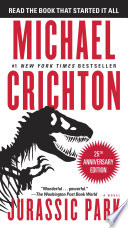
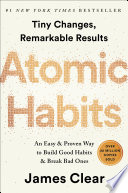
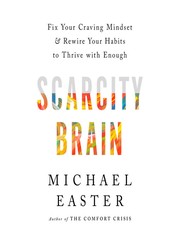
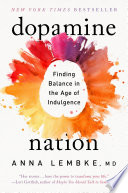
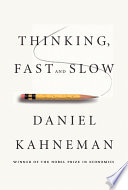
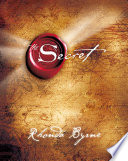

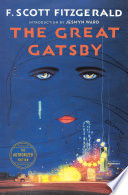
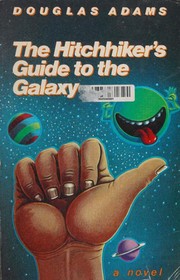
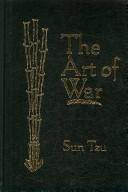
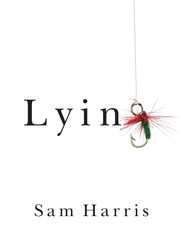
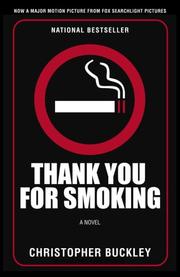


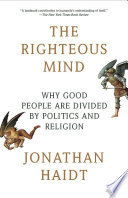
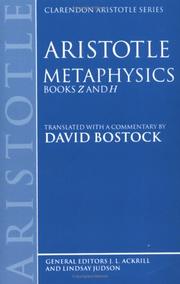
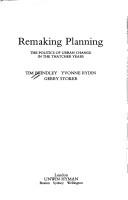

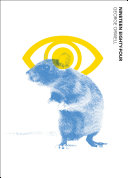
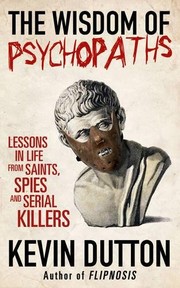
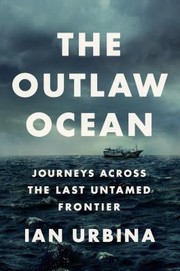
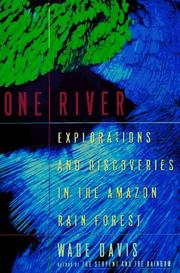
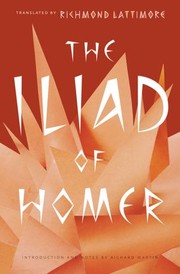
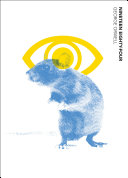


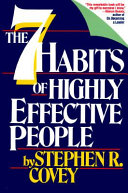
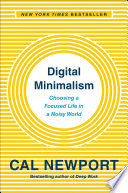
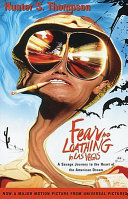
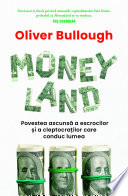
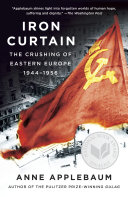
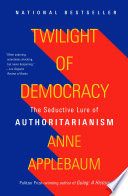
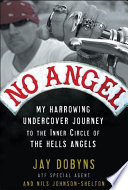
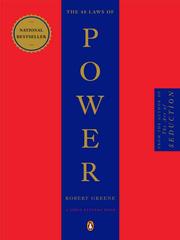
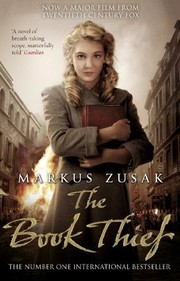

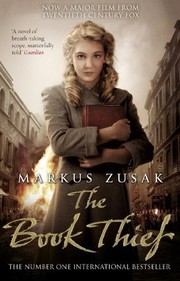
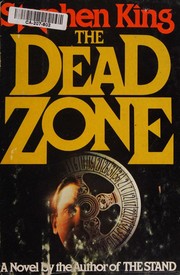

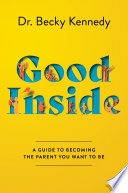
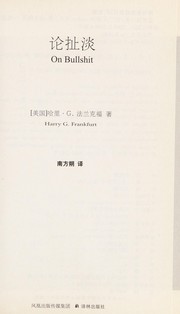
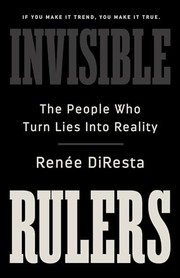
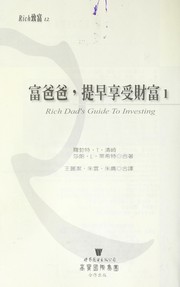

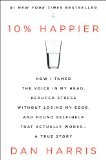

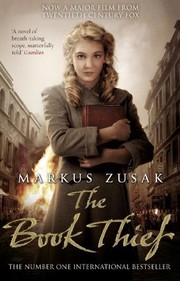
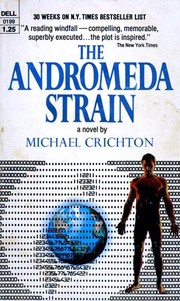
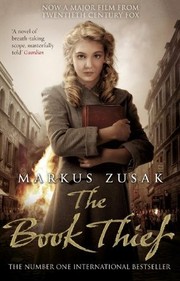
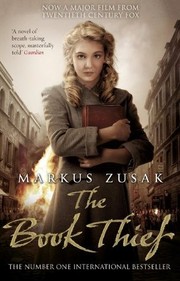
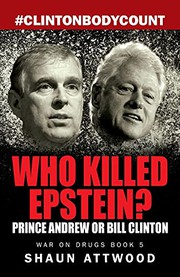
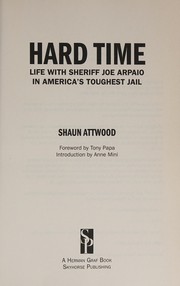
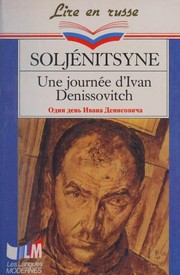
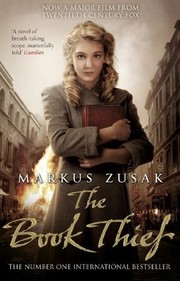



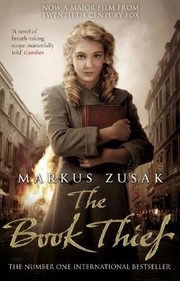


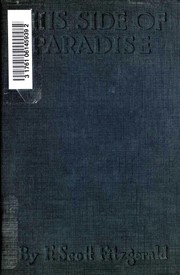
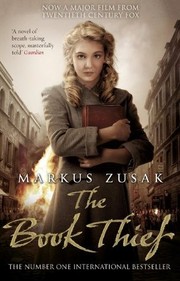
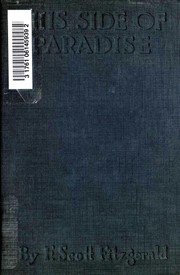
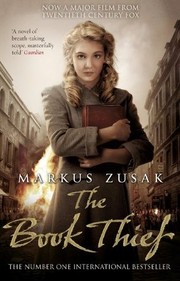


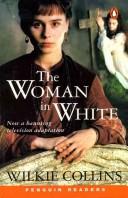






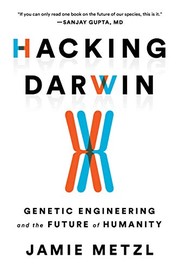
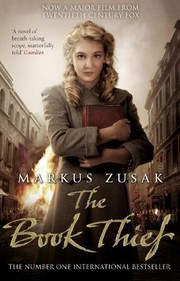
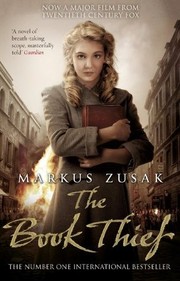


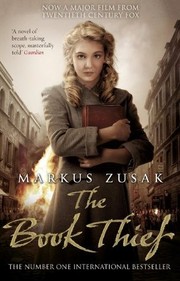
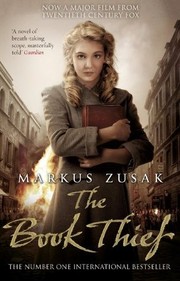
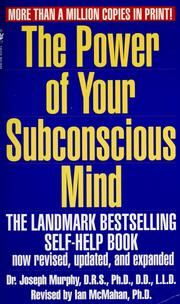
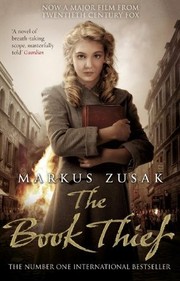

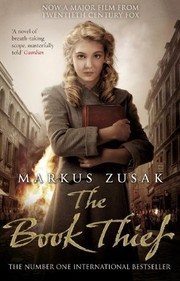
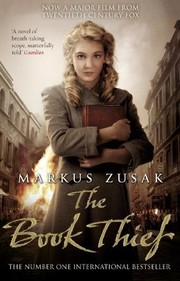
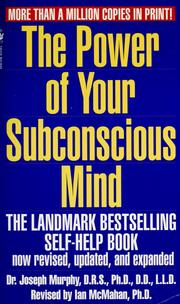
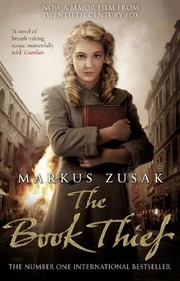
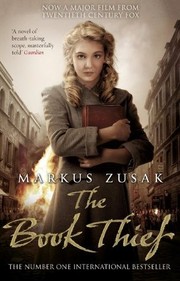

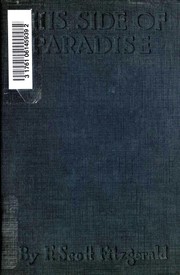

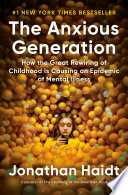
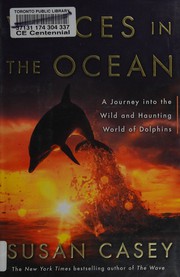
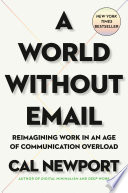
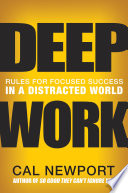

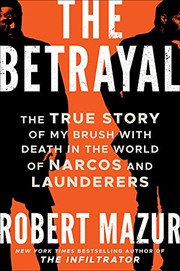
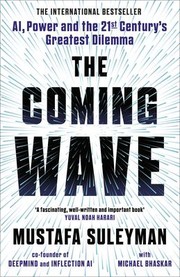
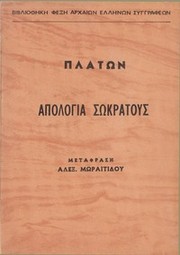
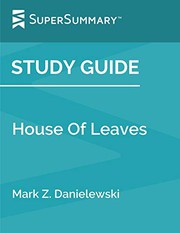

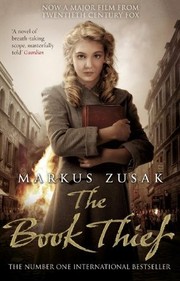
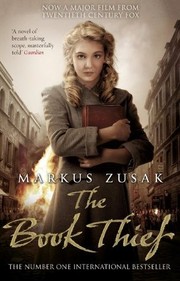
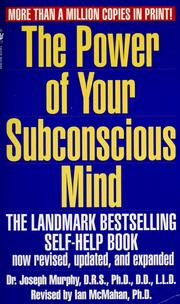
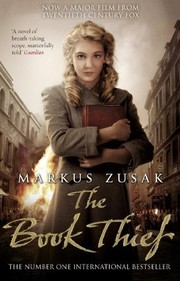
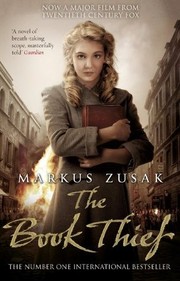

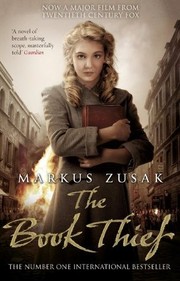


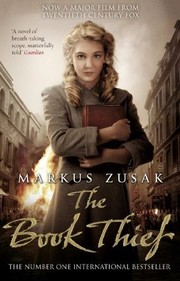
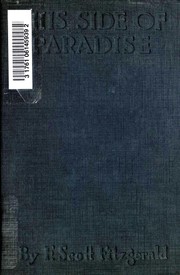
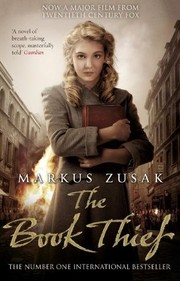
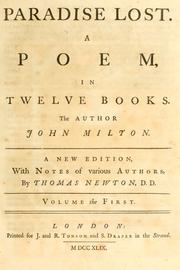
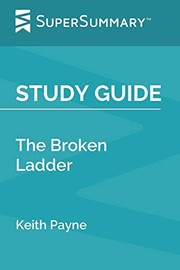
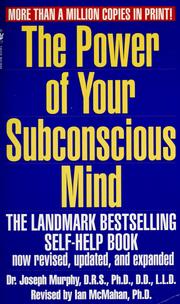

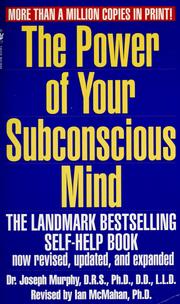

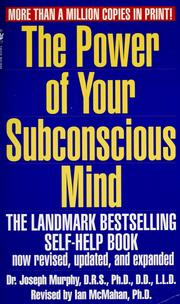

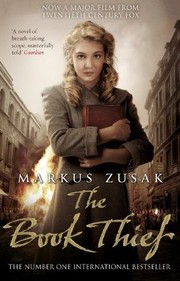
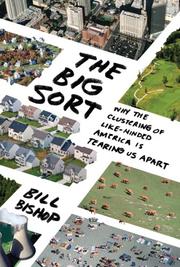
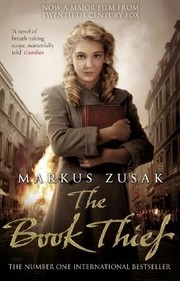
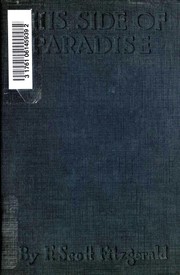
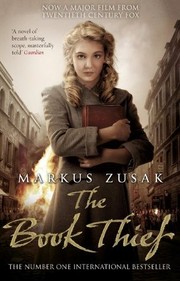
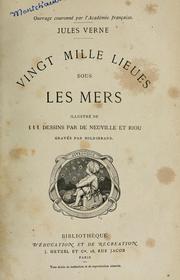



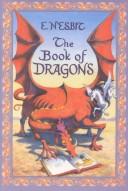
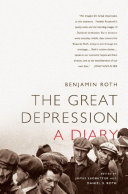
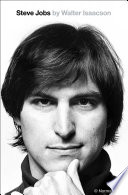
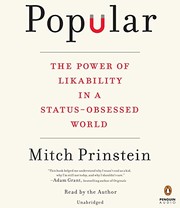
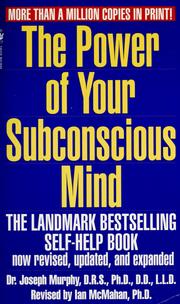
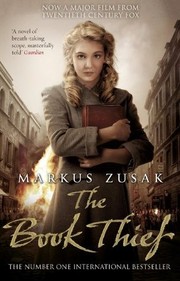
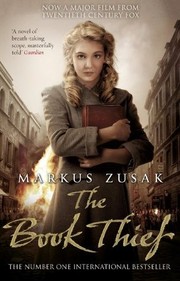
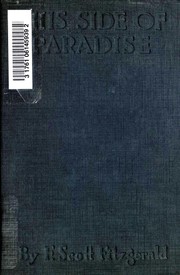
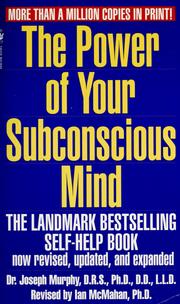
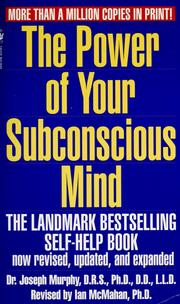

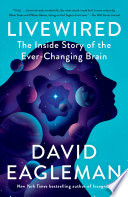

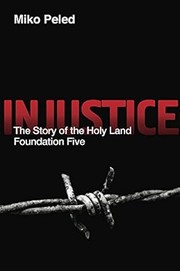
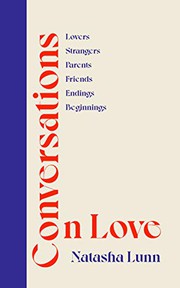
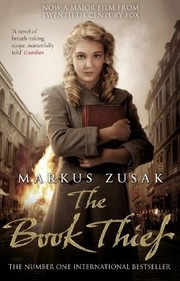
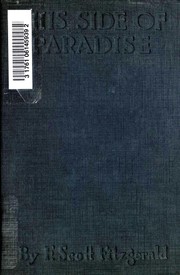
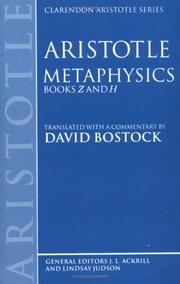

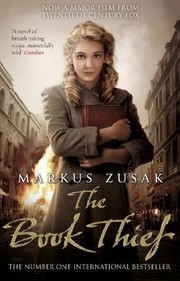
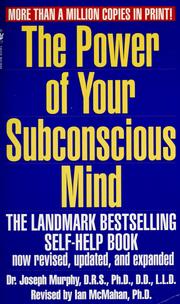
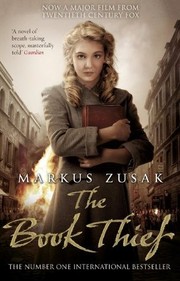
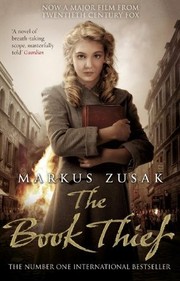
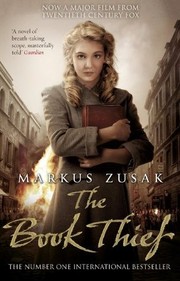
![Casino Royale [James Bond (Original Series) #1] Cover](https://mentionedinpodcasts.com/media/books/1349c58e-13e3-5963-daea-71c3c34bef93.jpg)
